Thunbergia - Plant Encyclopedia Results
Top Tropicals Plant Encyclopedia
| Number of plants found: 16 | Next | 
|
Go to page: | 1 | 2 |
Botanical names: Gardenia thunbergia, Gardenia verticillata, Gardenia speciosa
Common names: White Gardenia, Forest Gardenia, Wild Gardenia
Family: Rubiaceae
Origin: South Africa










The flowers are large, showy, creamy white and heavily perfumed, particularly at night. They open from elegantly furled creamy-green buds. The corolla is a tube with 8 large lobes. The fruits are hard and woody, and heavily fibrous inside, and can remain on the bush for years. Each fruit is egg-shaped, grayish green, when mature roughly dotted with whitish encrustations. Easy to grow, although it is slow-growing. It does best in slightly acid, light, well-drained soil with plenty of organic matter added and regular deep watering. Mulch thickly and regularly. It may need to be pruned to keep it shapely, or in scale with its container. Pruning should be done after flowering or just before the new growth appears. Although it is moderately drought tolerant, drought stress can cause buds to fall before opening. Gardenia thunbergia tolerates a winter minimum 25-30F although young plants will require protection from frost. It looks good as a specimen plant on a lawn, or as part of an informal hedge or shrubbery, or planted beside a pond or a stream. It also makes a good pot plant in a large container, its pale gray bark and angular shape making it an interesting form plant, while the flowers perfume the air. This gardenia is used as a root stock for grafted hybrid varieties thanks to its hardiness and tolerance to wide range of soil and climate conditions. It is also suitable for bonsai. Read more about gardenias.
Botanical name: Thunbergia alata
Common name: Black - eyed Susan
Family: Acanthaceae
Origin: tropical eastern Africa










Thunbergia alata (Black-eyed Susans) is a vine or creeper, native to tropical eastern Africa. It is grown in USDA Zone 9-11 and can survive temperatures in the 30s F for a short time with proper protection. This vine is fast-growing and can reach up to 8-10 ft in a single season. It produces an abundance of colorful blooms throughout the summer. Attractive to butterflies and hummingbirds, the flowers are unique in their range of colors, consisting of pink, white, off-white, yellow, orange, red, and crimson. There is always a black center that gives the plant its name - Black Eye Susan.
To ensure proper growth of Thunbergia alata, it is best to plant in full sun or semi-shade. Regular watering and ensuring the soil is kept moist is important for success. In cold regions, it is wise to grow this vine in a pot, as it is susceptible to frost. When kept in a container, it should be brought indoors during winter to provide protection from freezing temperatures.
In general, Thunbergia alata is an ideal choice for landscapes or container gardens. Not only does it provide striking colors and interesting shapes, but it also attracts butterflies, hummingbirds, and other beneficial wildlife. Despite its tropical origins, with proper care and protection, this plant can be grown successfully in colder climates.
Recommended Fertilizer: SUNSHINE Megaflor - Bloom Nutrition Booster
Botanical name: Thunbergia battiscombei
Common names: Bengal Clock Vine, Blue Trumpet Vine, Blue Sky vine, Scrambling sky flower, Blue Glory
Family: Acanthaceae
Origin: Tropical Africa





This compact vine has a twining habit producing 2-3" dark blue funnel shaped flowers with golden throat, displayed throughout it's dense deep green foliage. It is the least invasive of all thunbergia vines, grows rather slowly and keeps very compact shape. This species is probably the best for container culture or a small trellis. It tolerates shade, too. It is hardy to light freeze which also makes this species very unique, especially for subtropical gardeners.
Botanical name: Thunbergia coccinea
Common name: Scarlet Thunbergia
Family: Acanthaceae
Origin: India, Burma, Malaya






This luscious vine or creeper is native to India, Burma and Malaya and when in its full glory, is a sight to behold. Scarlet Thunbergia (Thunbergia coccinea) will do best when grown in full sun or semi-shade and when given regular water. As the foliage falls around it, breathtakingly intense red and crimson vinous flowers emerge above tall stems. These attractive blooms are certain to attract hummingbirds and butterflies, promising to make your garden a truly magical spectacle.
Grown in USDA Zones 9-11, Scarlet Thunbergia is suited to warm climates and is an ideal plant for hanging baskets. When grown in a pot, these vibrant creepers can also brave even colder weather, though they may be dormant during winter. When planted in colder regions, they should be provided with bright light, sheltered from strong winds and watered regularly. To ensure best results, ensure your plant enjoys either full sun or filtered light and remains in moist soil without becoming soggy. Feed with a balanced liquid fertilizer every two weeks once the Scarlet Thunbergia is in bloom.
Gorgeous Scarlet Thunbergia is sure to be a source of joy to your garden, both when in bloom and in between. Enjoy these vivid colors and unexpected beauty in your own slice of paradise.
Botanical name: Thunbergia erecta
Common names: King's Mantle, Bush Clock Vine
Family: Acanthaceae
Origin: Tropical Africa
Hardiness: 30°F








Thunbergia erecta (King's Mantle) grows between 5-10 ft tall and has a spreading habit. This makes it suitable to create a low growing hedge. Thunbergia erecta prefers a sunny site but will tolerate partial shade. It likes a moderately moist soil and will attract butterflies and hummingbirds for its profusion of stunning blue, lavender, and purple flowers. It also has a white or off-white cultivar with smaller leaves . This large shrub is remarkably hardy and can survive temperatures as low as 30F for short periods of time. The plant is recommended for USDA Zones 9-11 and if you live in a colder region can be grown in pots.
For growing healthy Thunbergia erecta provide it with right care. When planted outdoors, keep the soil consistently moist, but not soggy, and use mulch around the base to retain moisture. If growing in a pot, frequent watering is necessary. Avoid overfertilizing as this can lead to foliage growth with fewer flowers. Pruning and shaping can be done at any time, however, be mindful of your pruning as this can affect flowering. In colder climates, winter protection may be necessary.
Recommended Fertilizer: SUNSHINE Megaflor - Bloom Nutrition Booster
Recommended Fertilizer: SUNSHINE Megaflor - Bloom Nutrition Booster
Botanical names: Thunbergia fragrans, Thunbergia laevis
Common names: White Clock Vine, White Gem Thunbergia
Family: Acanthaceae
Origin: India, Ceylon
Hardiness: 35°F









Thunbergia fragrans, commonly known as the White Clock Vine or Sweet Clock Vine, is a fast-growing perennial climber native to India and Southeast Asia. It produces twining stems with triangular to heart-shaped leaves and delicate white funnel-shaped flowers with a yellow throat, usually blooming throughout the warm season. This species is often used as a quick cover for fences, trellises, and arbors, where it adds a light and airy appearance to the garden.
Thunbergia fragrans thrives in full sun to partial shade and prefers well-drained soil with regular moisture. It is suited for USDA Zones 9-11 and is not frost tolerant. The vine is best grown in warm climates or containers that can be moved indoors during colder months. Protect from frost at all times, as prolonged exposure to temperatures below 40F may damage the plant.
Botanical name: Thunbergia grandiflora
Common names: Blue Trumpet Vine, Blue Sky vine, Scrambling sky flower
Family: Acanthaceae
Origin: India







The most striking blue flowered vine in the world, with a robust and twining habit producing long hanging clusters of 3" sky blue funnel shaped flowers from fall through spring, displayed throughout it's dense deep green foliage. Can be trellised or arbored to create a spectacular sight! Hardy to freezing. Can be used as a background shrub if allowed to sprawl at the rear of a bed. It's also pretty clambering up a mail box or lamp post.
Thunbergia grandiflora is similar to Thunbergia laurifolia
except that leaves are heart-shaped.
Recommended Fertilizer: SUNSHINE Megaflor - Bloom Nutrition Booster
Botanical name: Thunbergia gregorii
Common name: Orange Clock Vine
Family: Acanthaceae





The amount of color that can be put out by this vine is unsurpassed. It is a continuous grower and will creep and crawl over everything in reach. The stems root and creep, though this is not an impossible task to keep after it does need to be watched. It will die to the ground in the mid 20's but can come back from much deeper chill than that. The stems have hairs that cause itching when they are dry. It is best to wear long sleeves when trimming or removing sections of this plant. Water occasionally.
Botanical name: Thunbergia kirkii
Common name: Blue Sky Shrub
Family: Acanthaceae
Origin: East Africa





A small bushy dense shrub with unusual shape of leaves (rombical, toothed), that are dark green to silvery. Flowers are 1-2in wide, dark blue. Somewhat succulent-looking, with hard leaves, this plant still requires regular watering. Does well in container.
Botanical name: Thunbergia laurifolia
Common names: Blue Trumpet Vine, Blue Sky vine, Laurel-leaved thunbergia
Family: Acanthaceae
Origin: India, Malaysia








Ornamental vine with Showy, violet, trumpet shaped flowers up to three inches across. Can be used as a background shrub if allowed to sprawl at the rear of a bed. It's also pretty clambering up a mail box or lamp post.
Thunbergia laurifolia is similar to Thunbergia grandiflora. The difference is the Thunbergia laurifolia has narrower, glabrous leaves while Thunbergia grandiflora has broader, hairy leaves with larger lobes.
Recommended Fertilizer: SUNSHINE Megaflor - Bloom Nutrition Booster
Last one
| Next |  |
Use link to repeat this search:
https://toptropicals.com/cgi-bin/garden_catalog/cat.cgi?find=Thunbergia&search_op=and&keyword_op=and&language=e&number=10
&no_change_lang=1&user=tt&sale=1&first=0
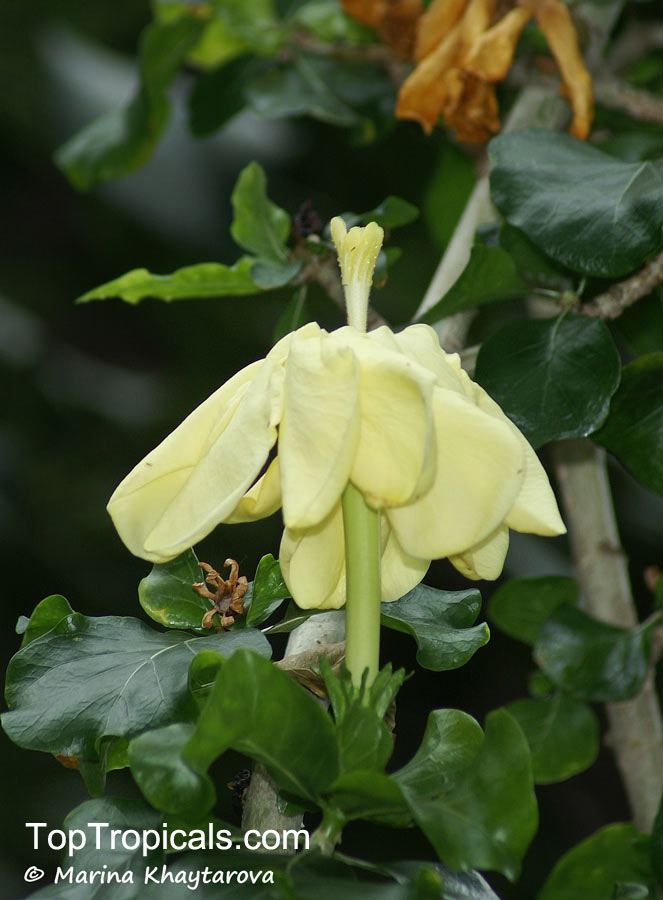
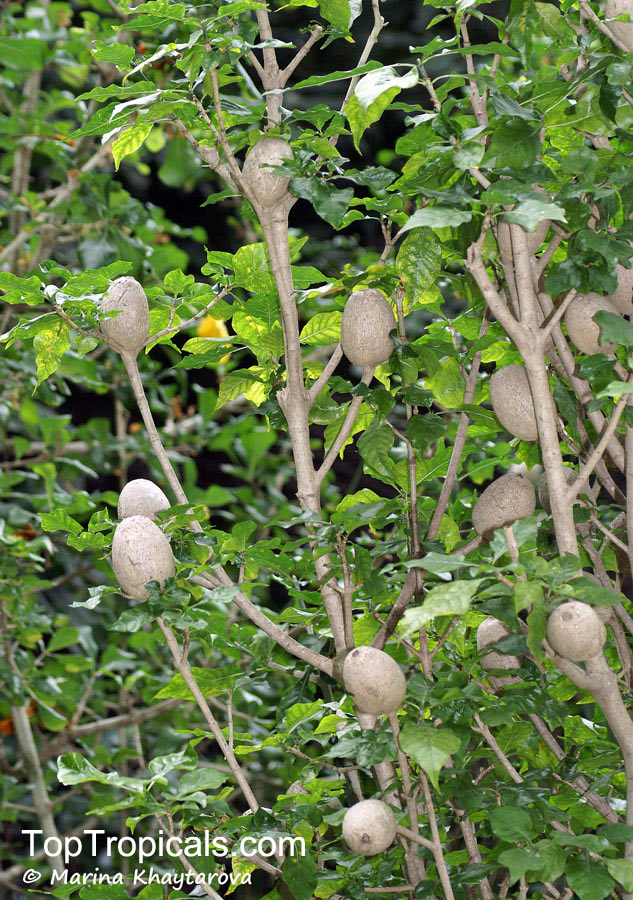
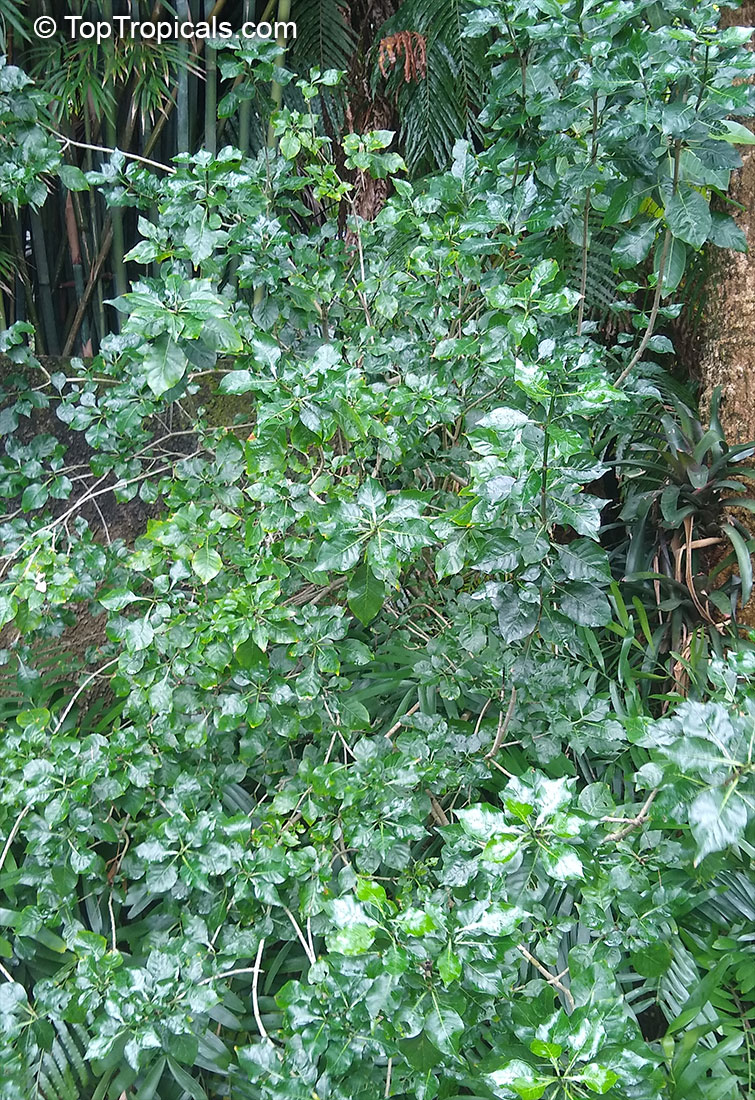
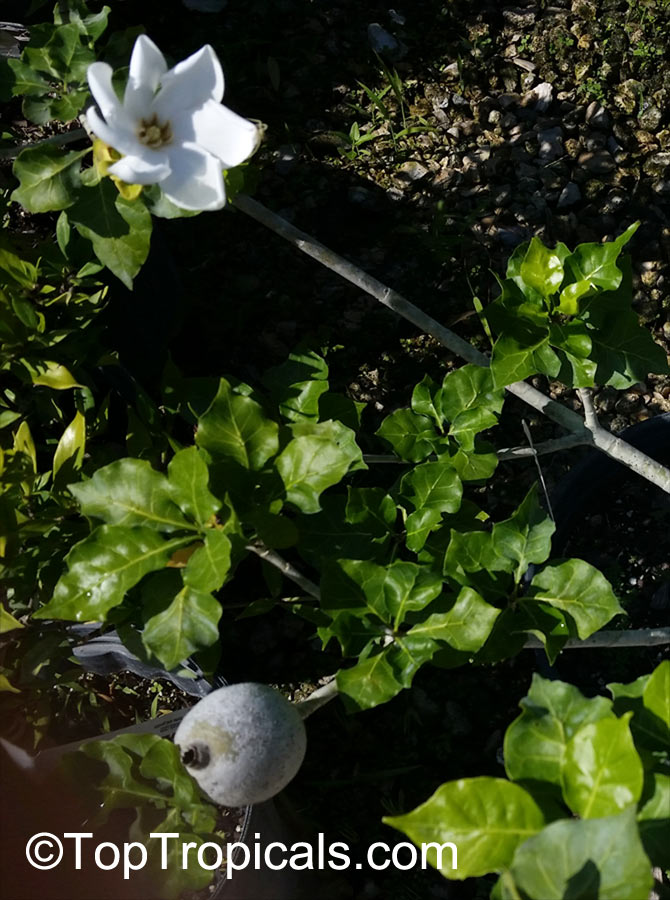
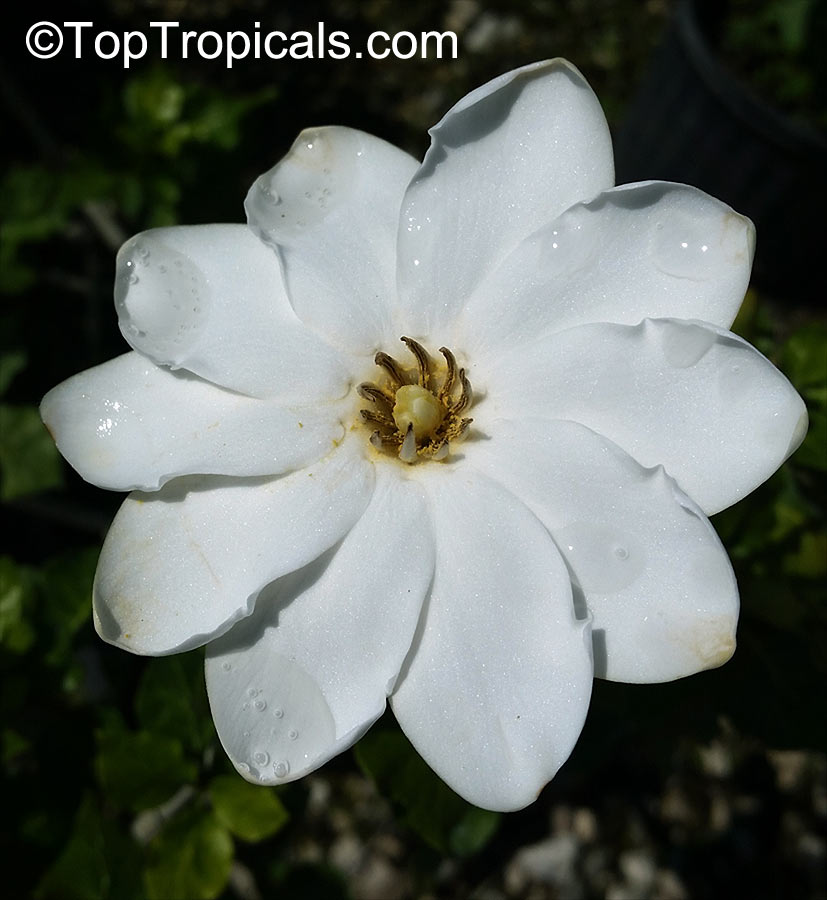
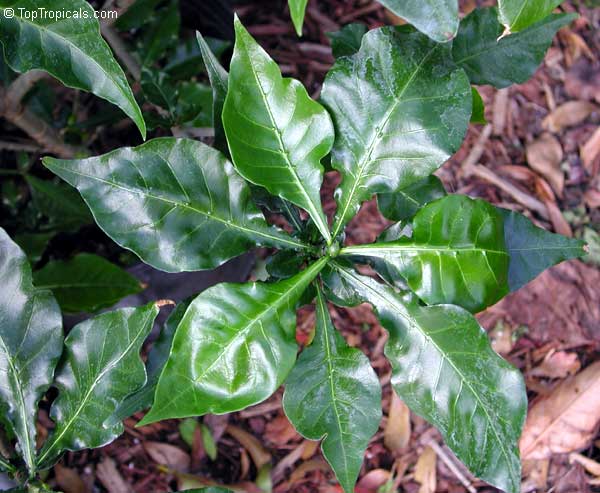
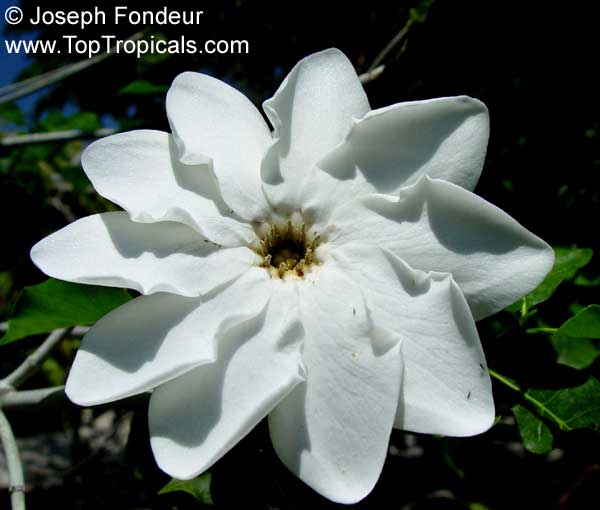
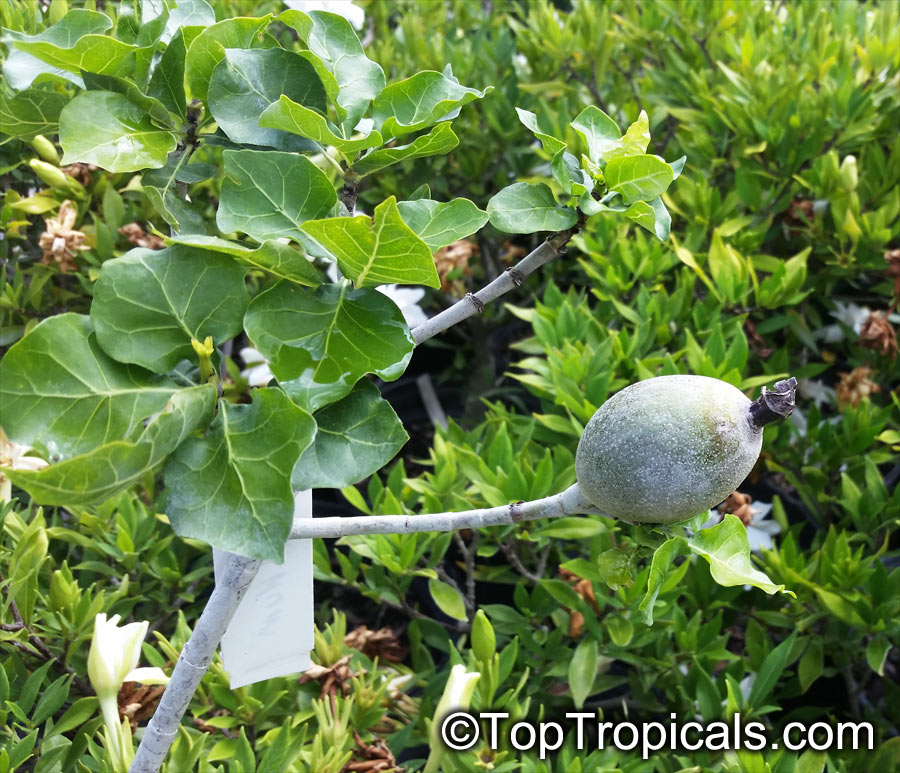
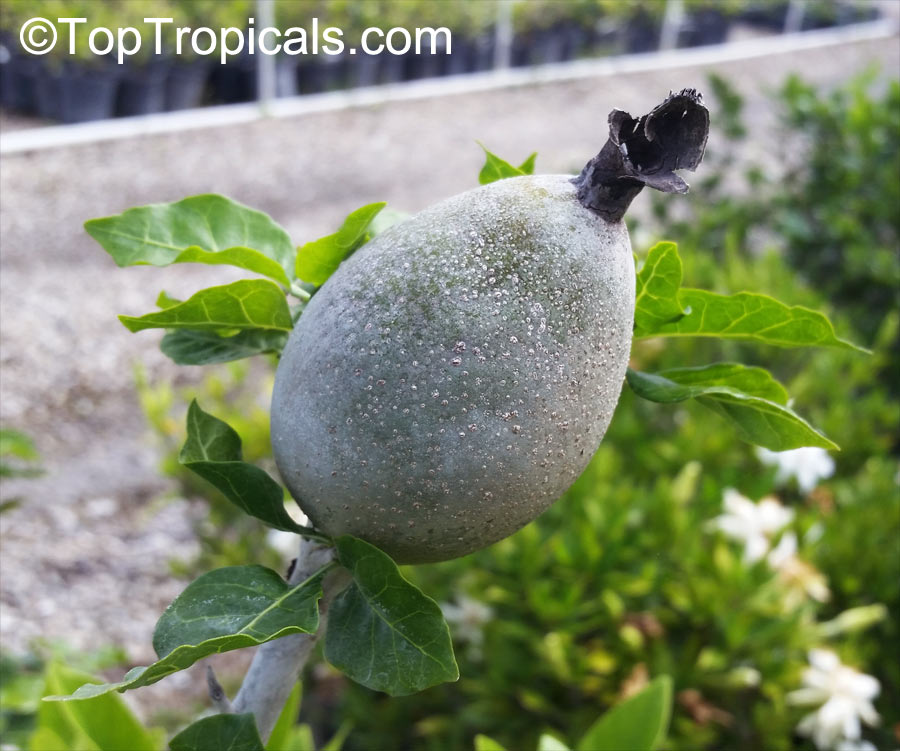
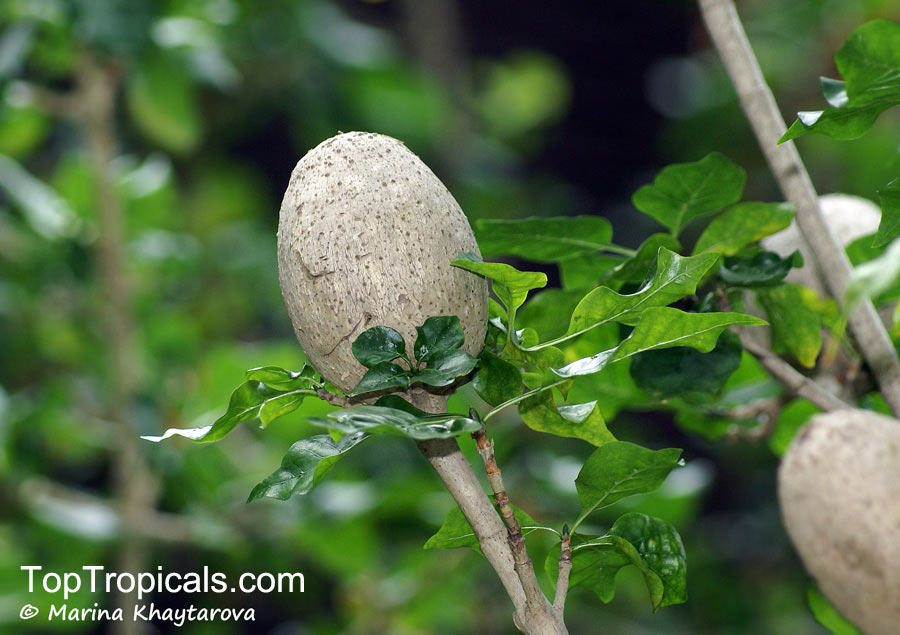
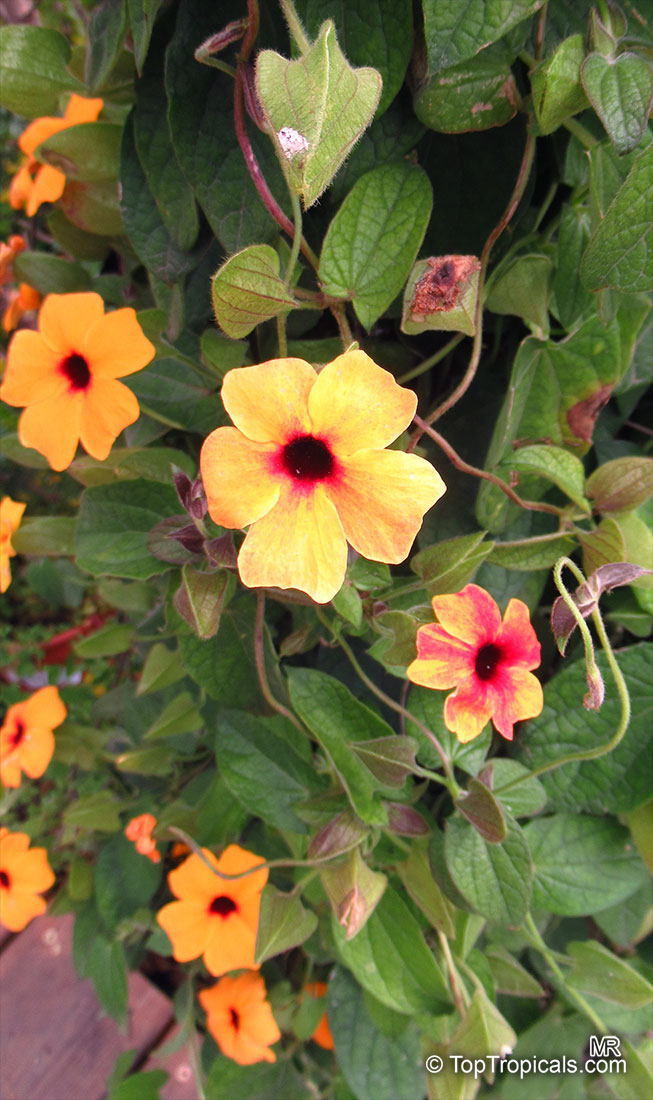
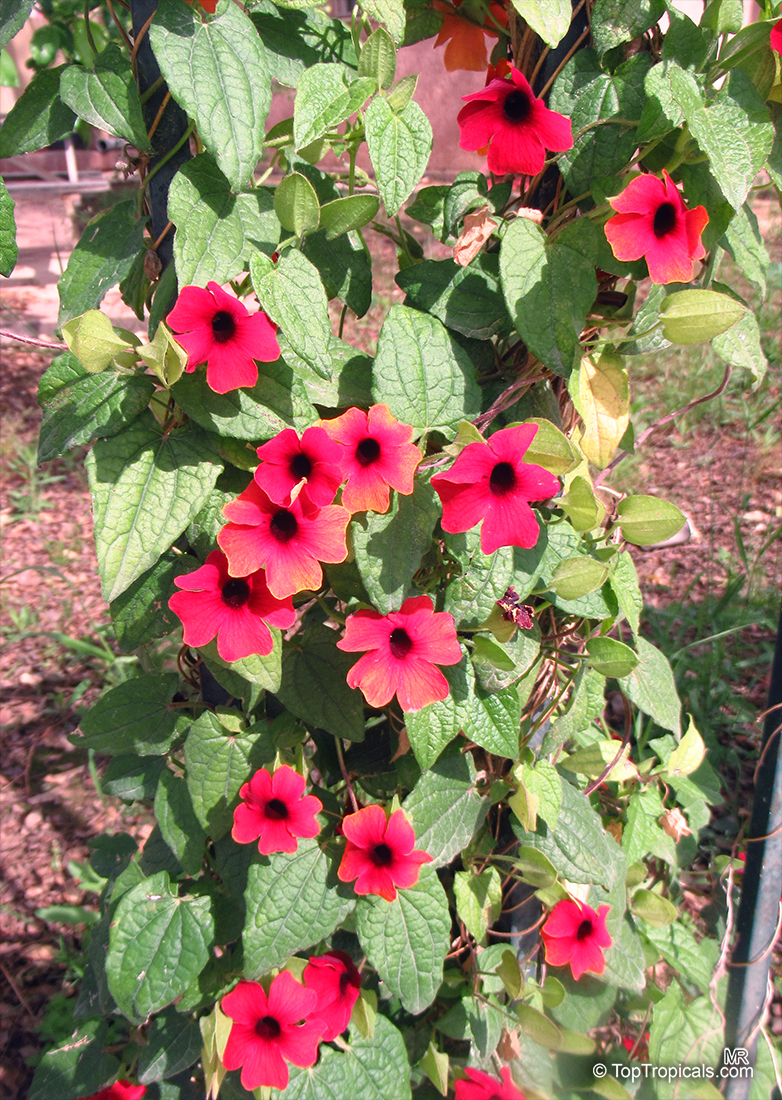
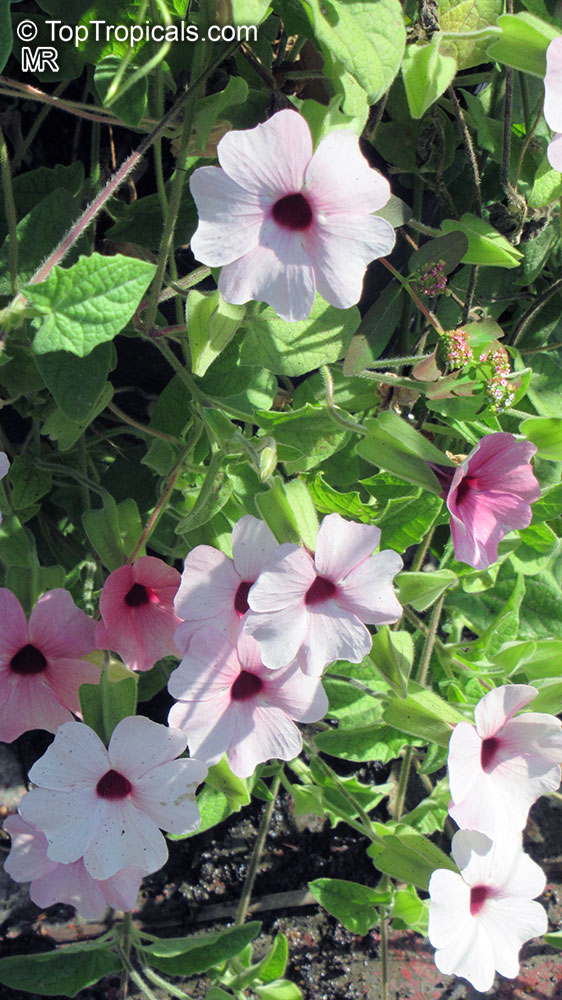
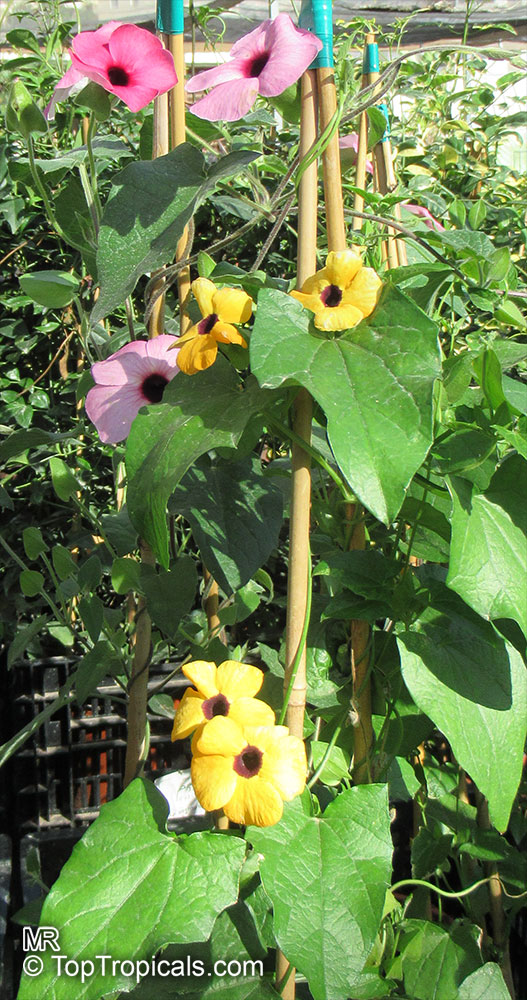
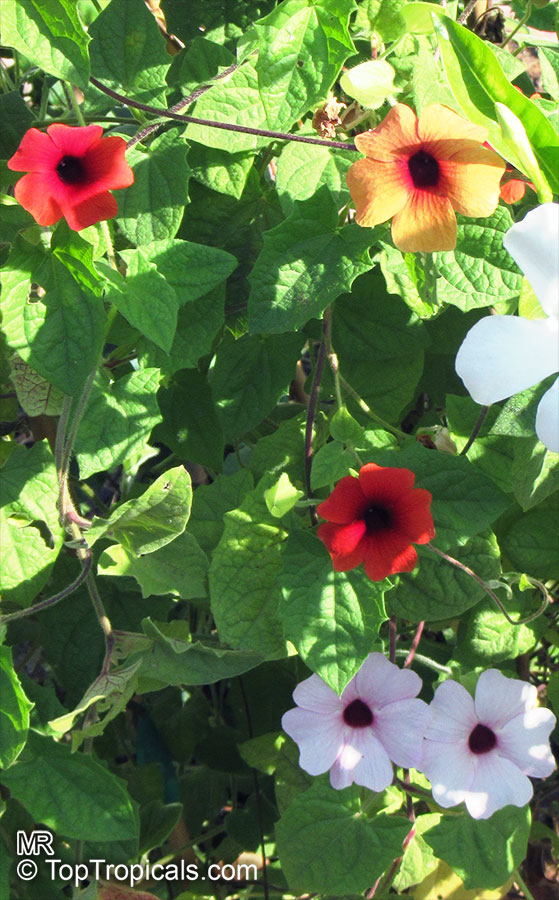





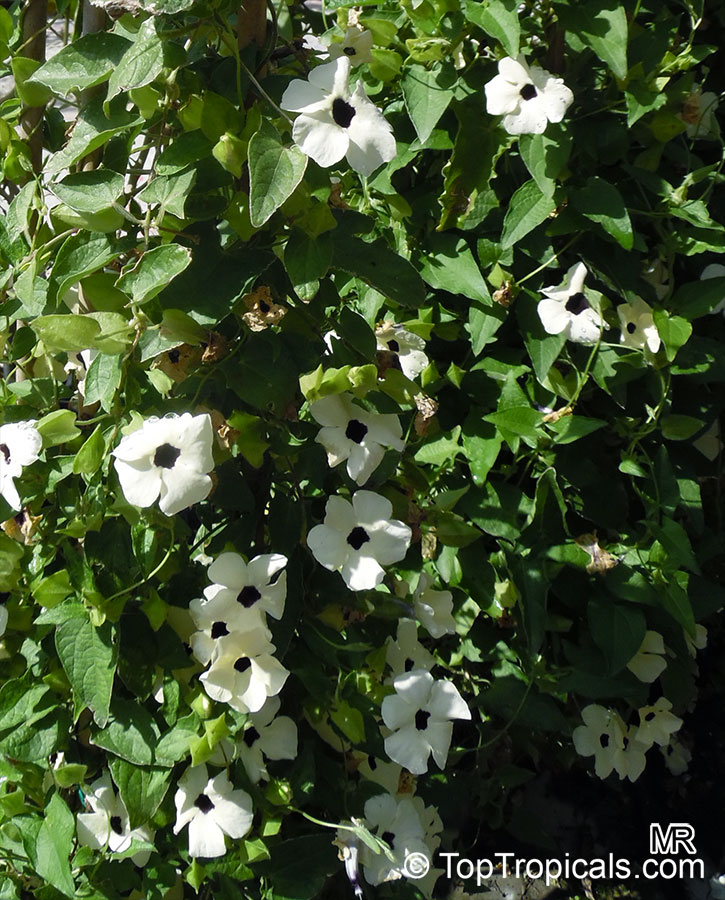
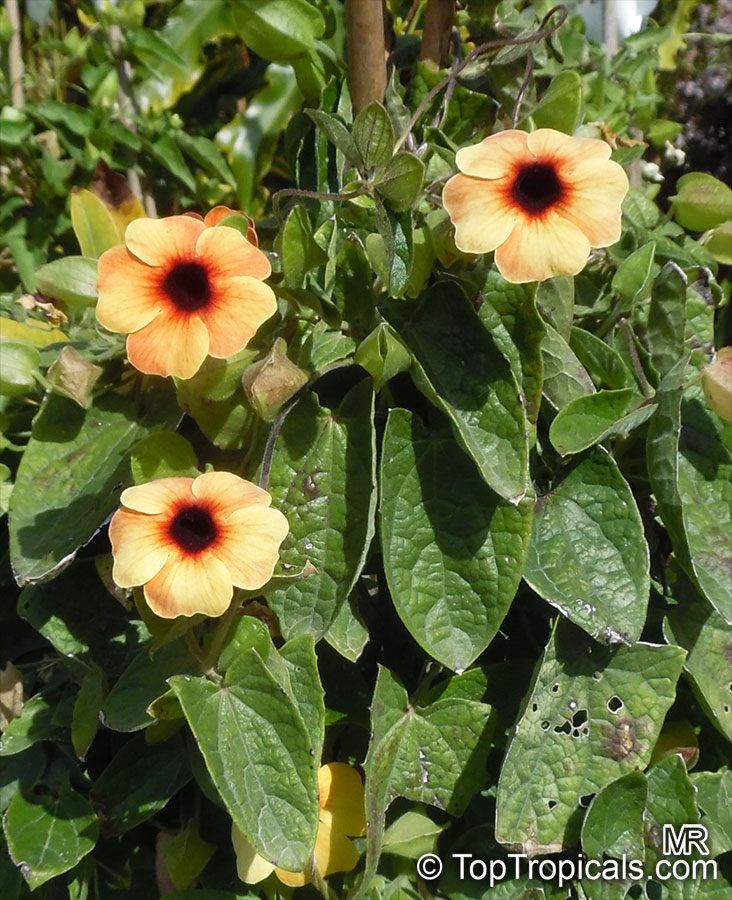
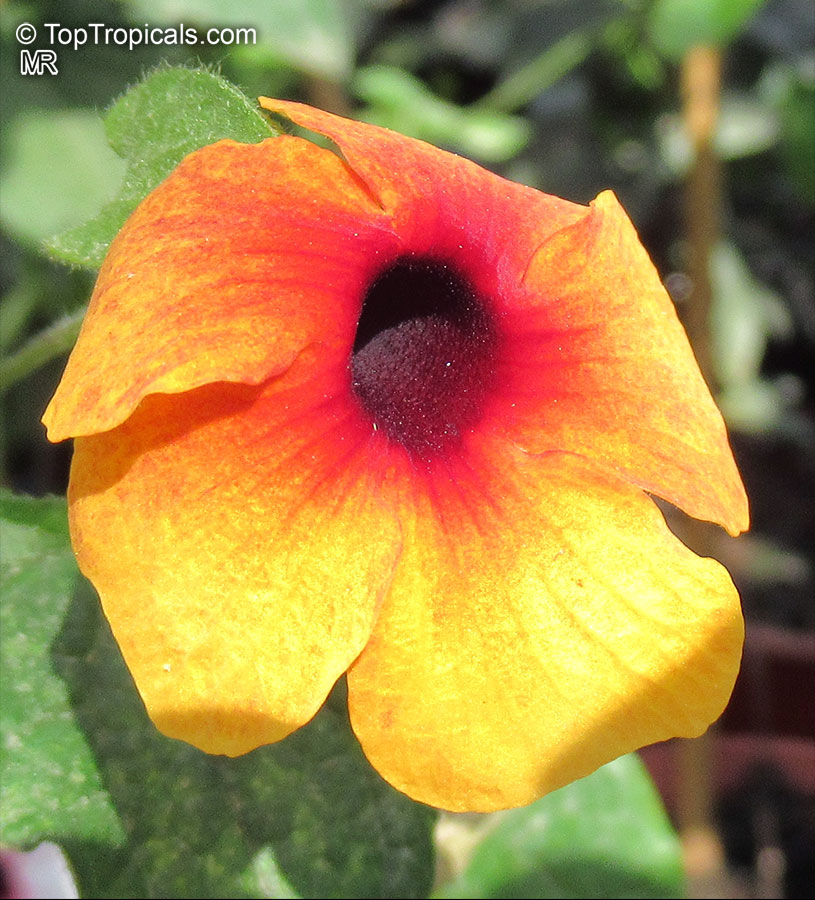
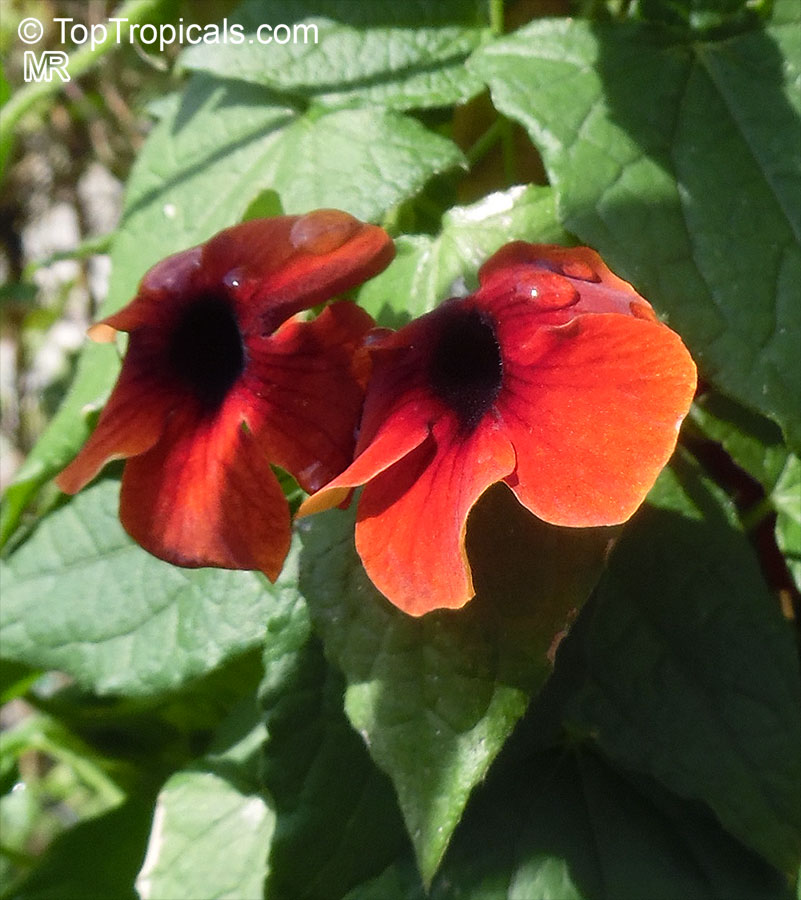
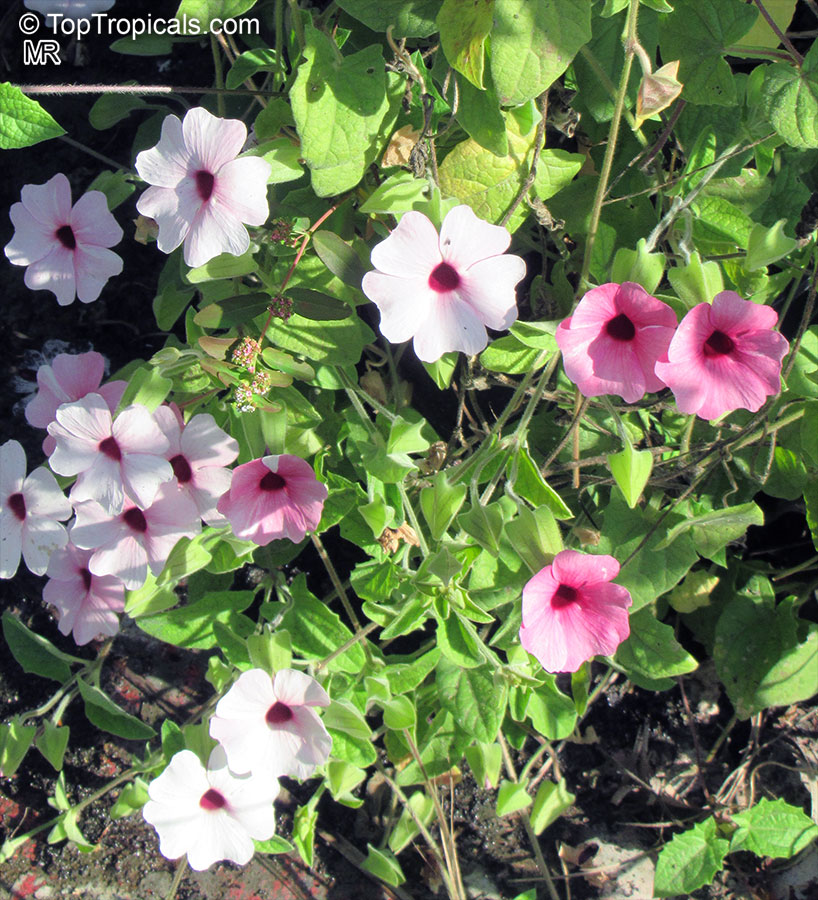

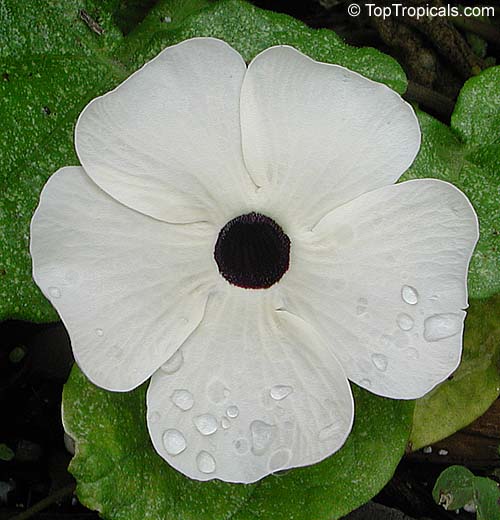
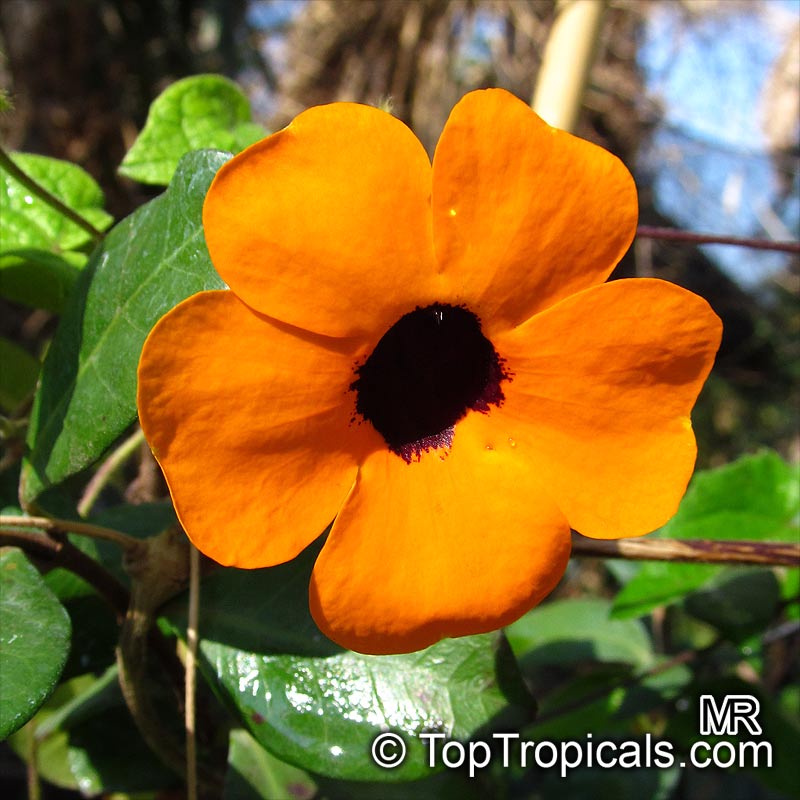
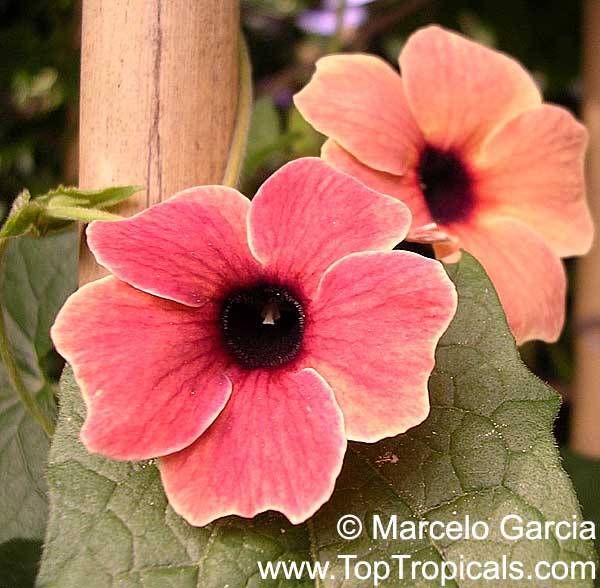
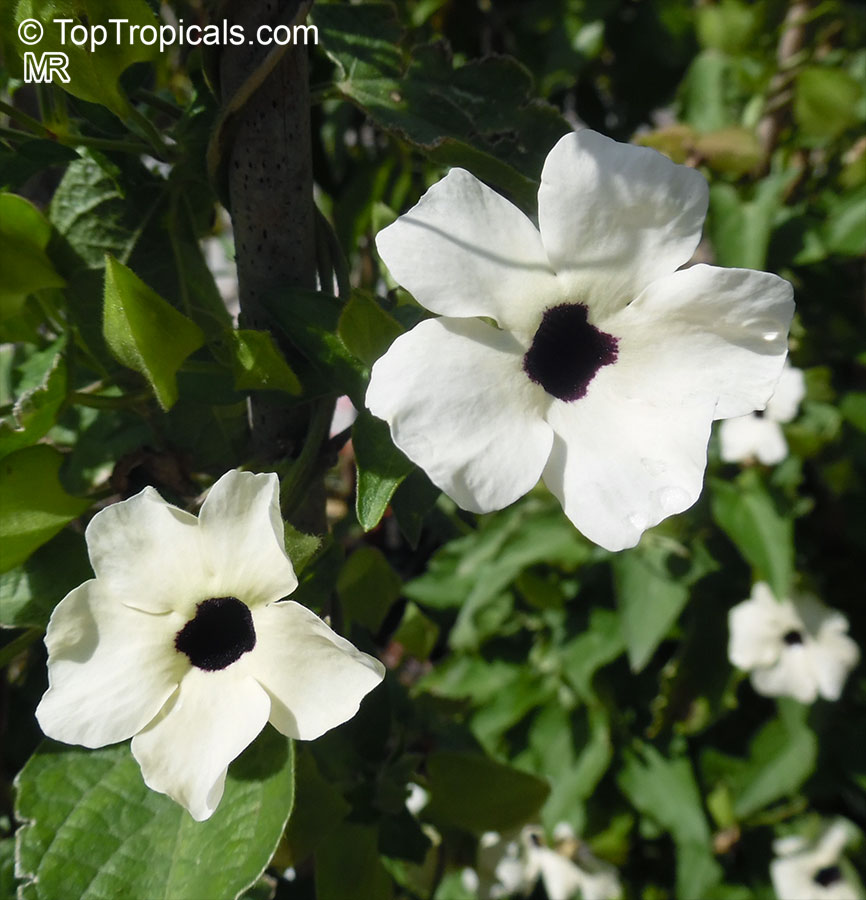
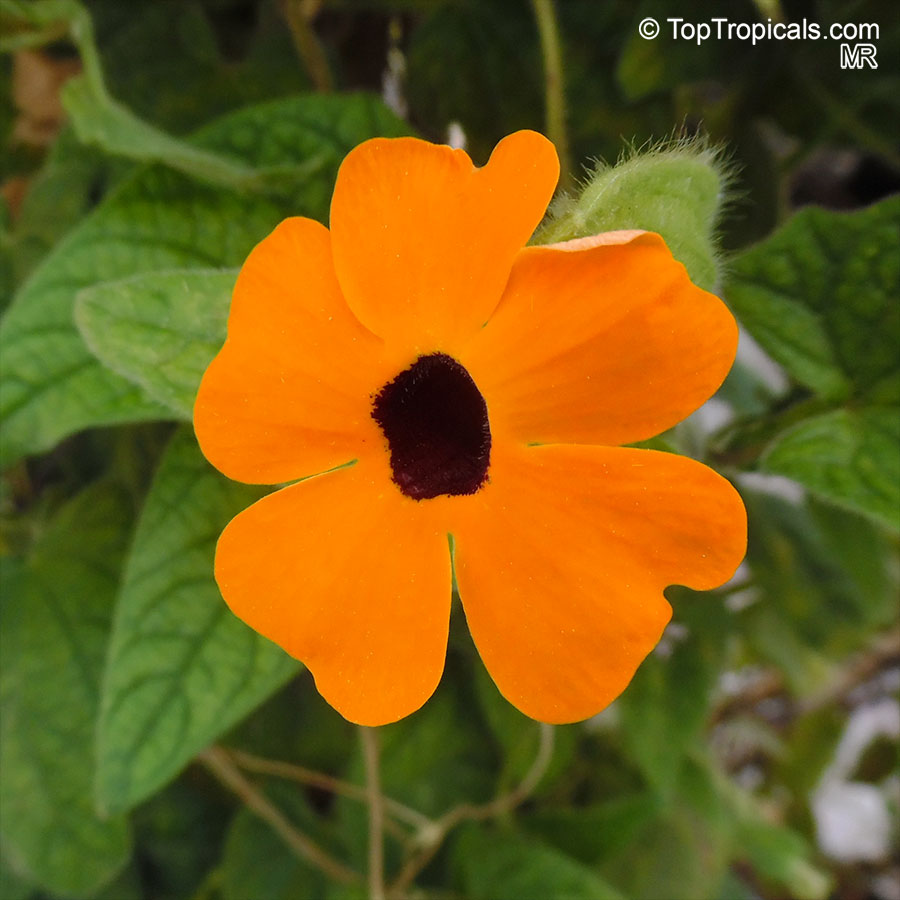
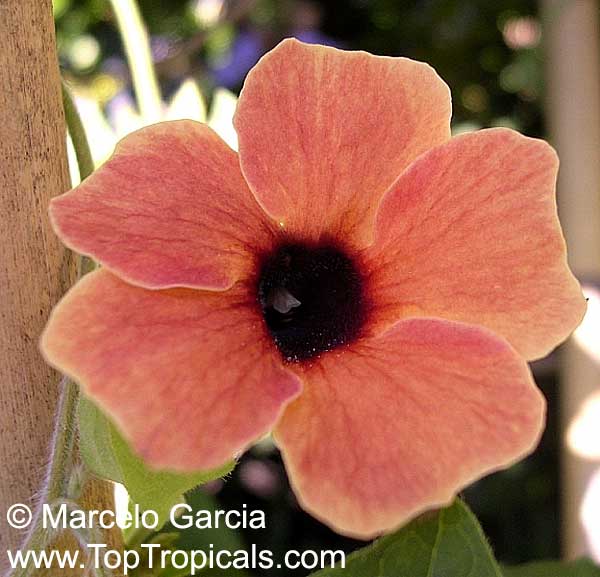
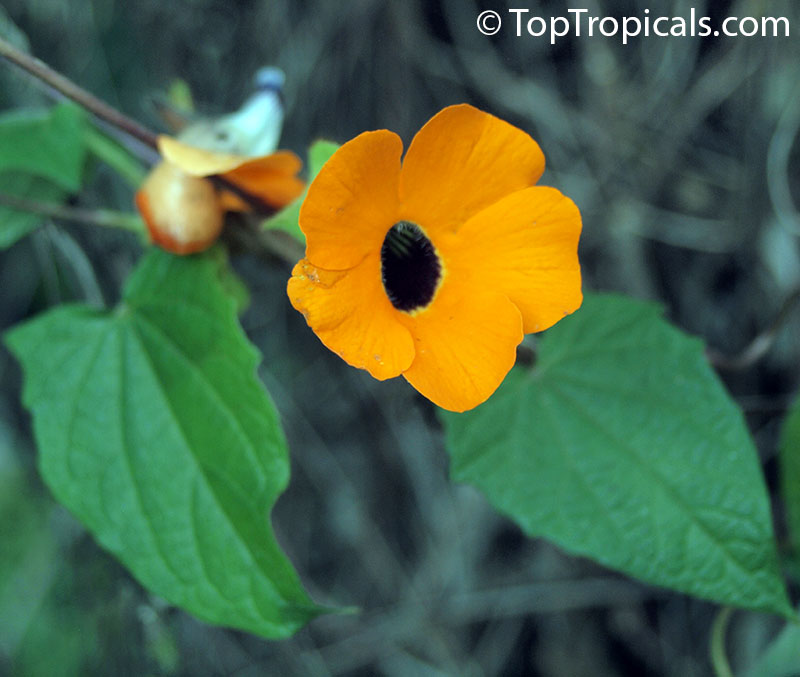
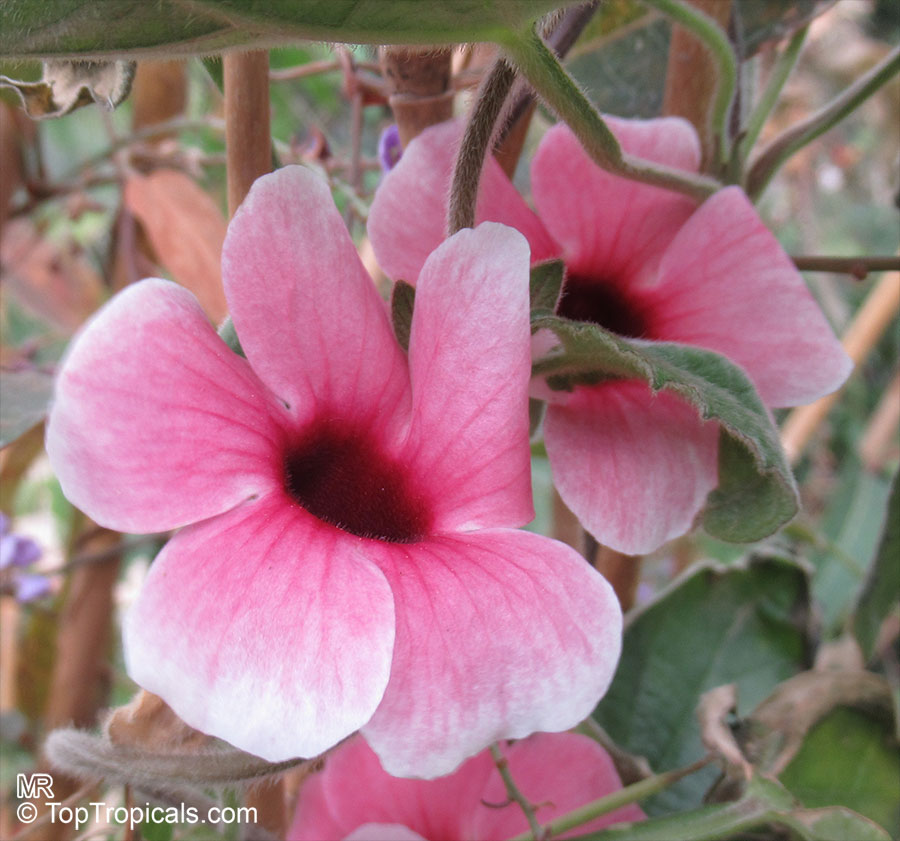
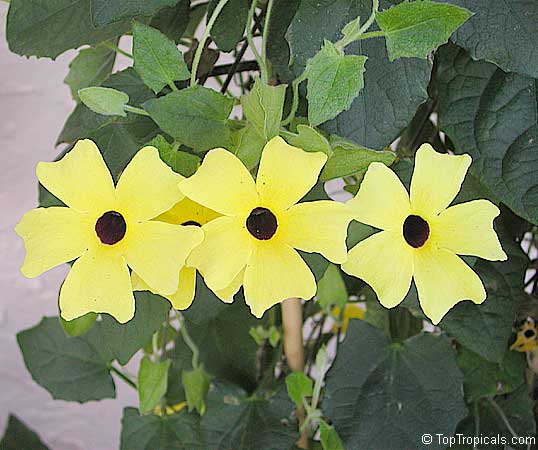
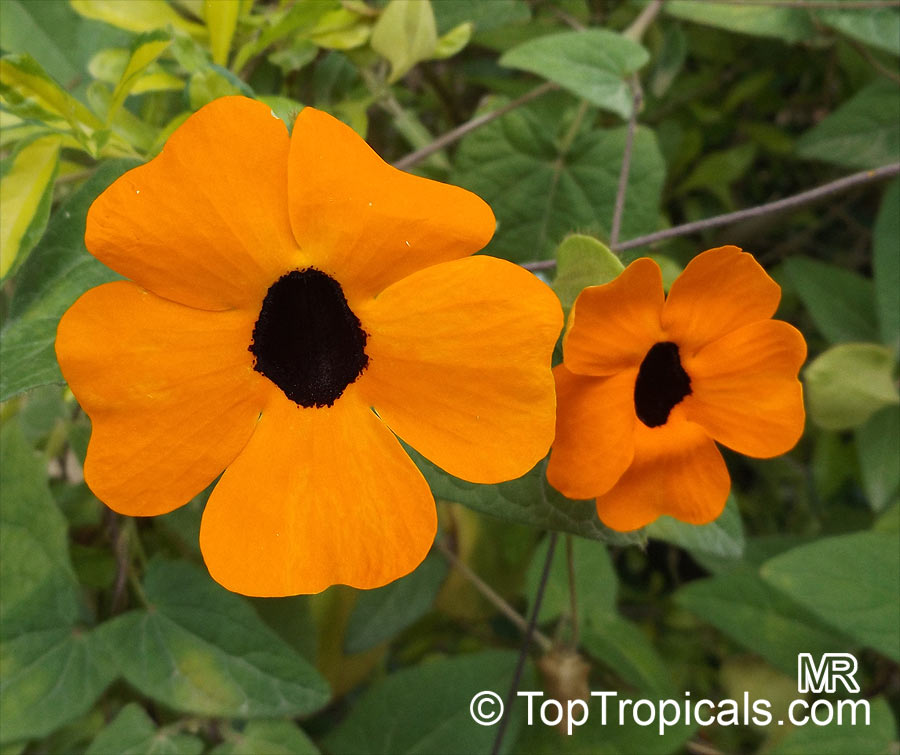
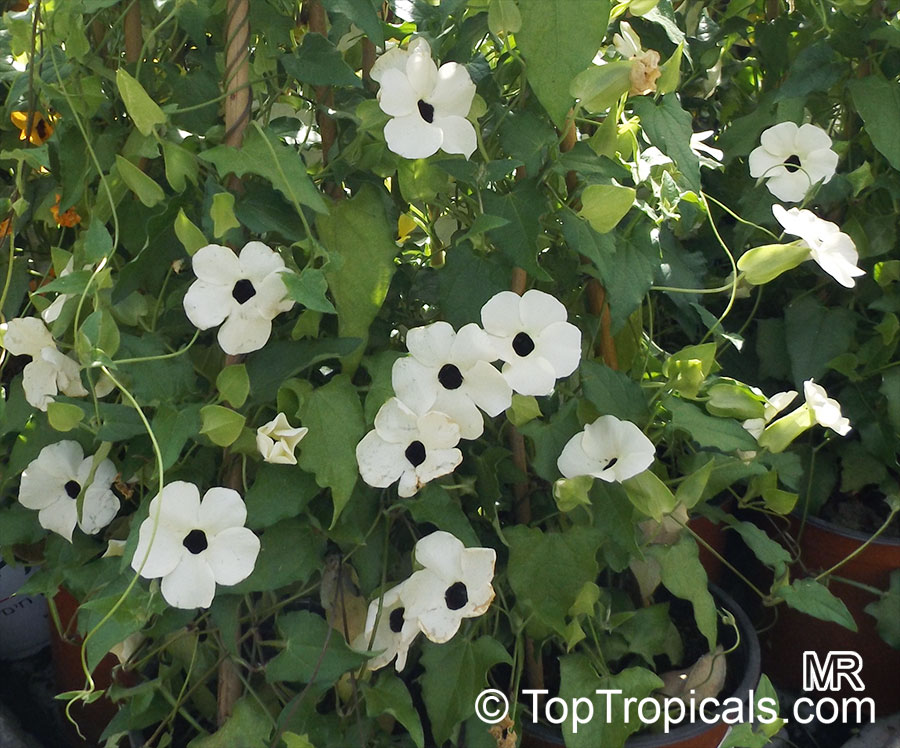
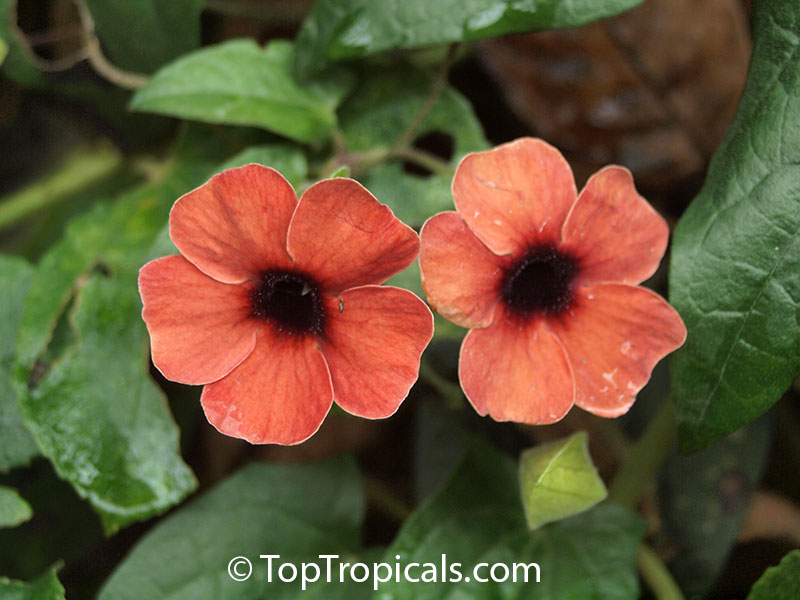
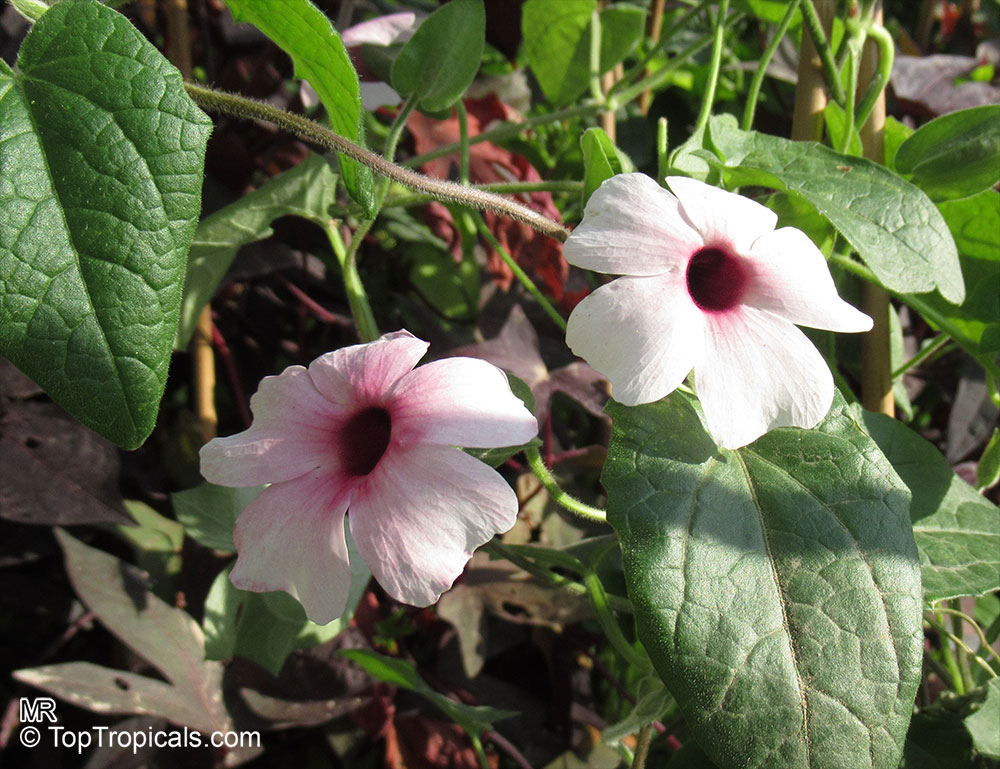

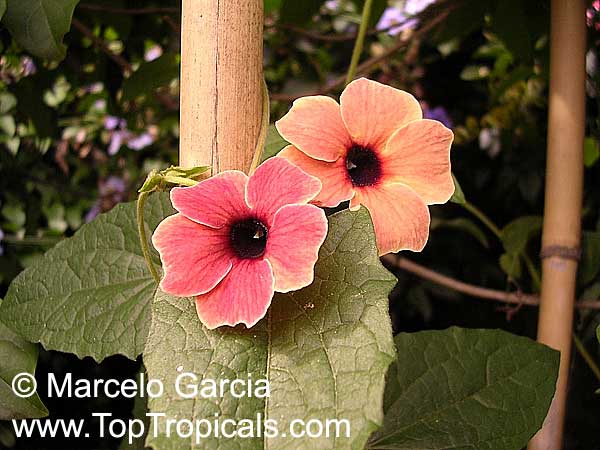
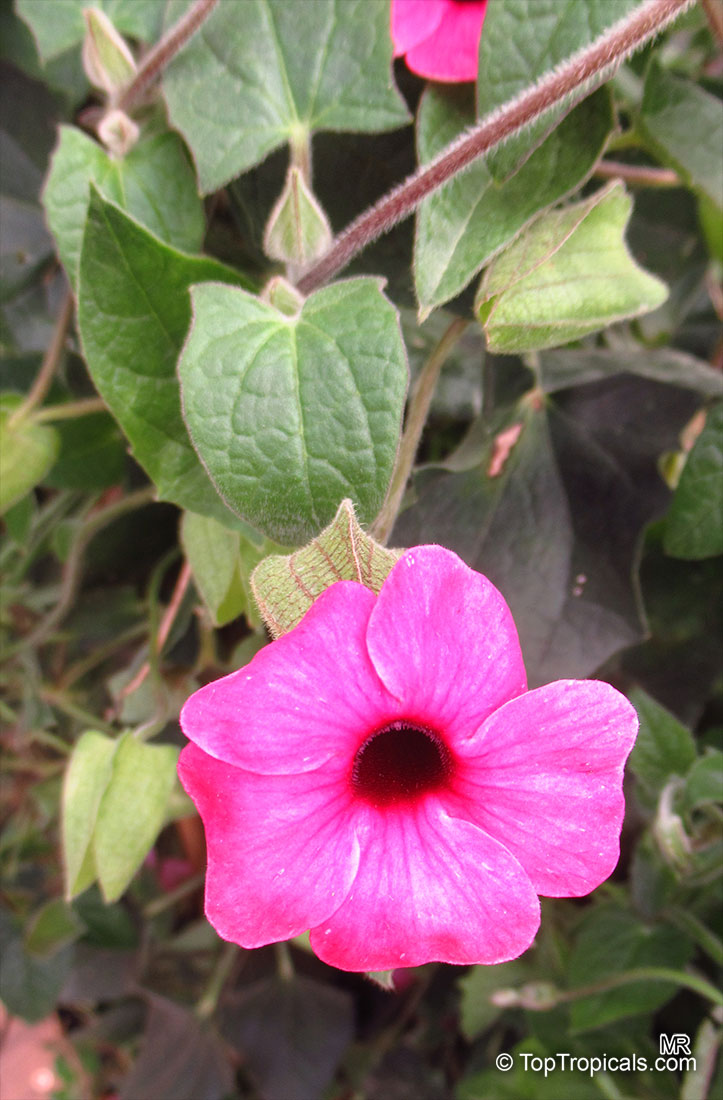
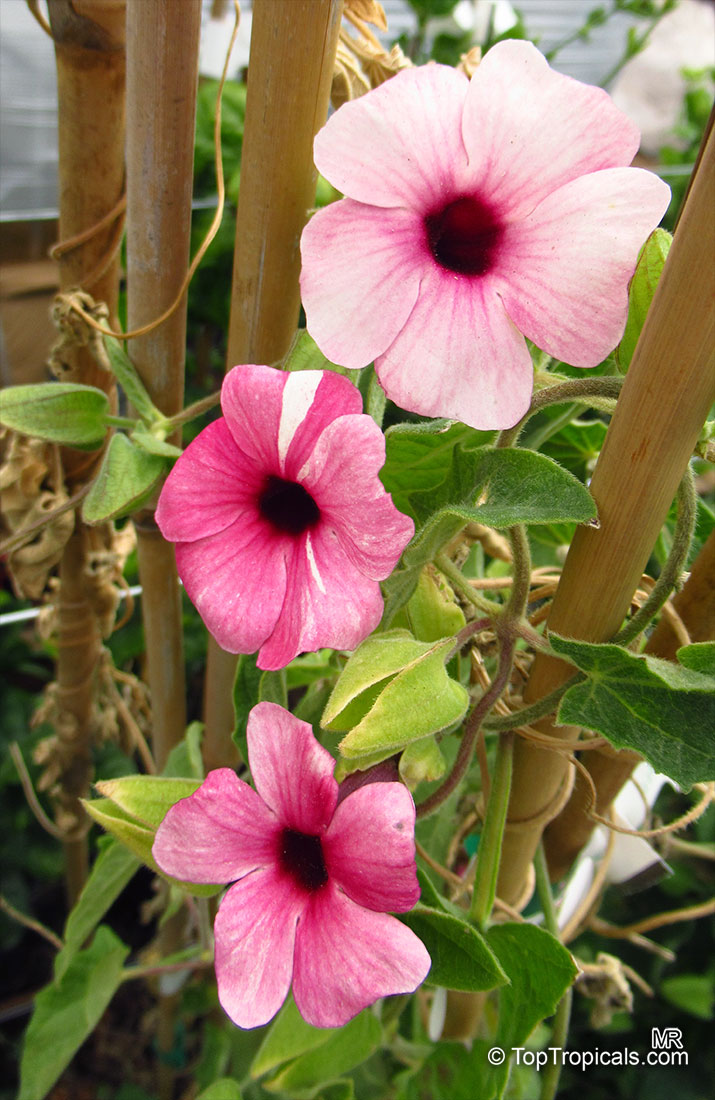
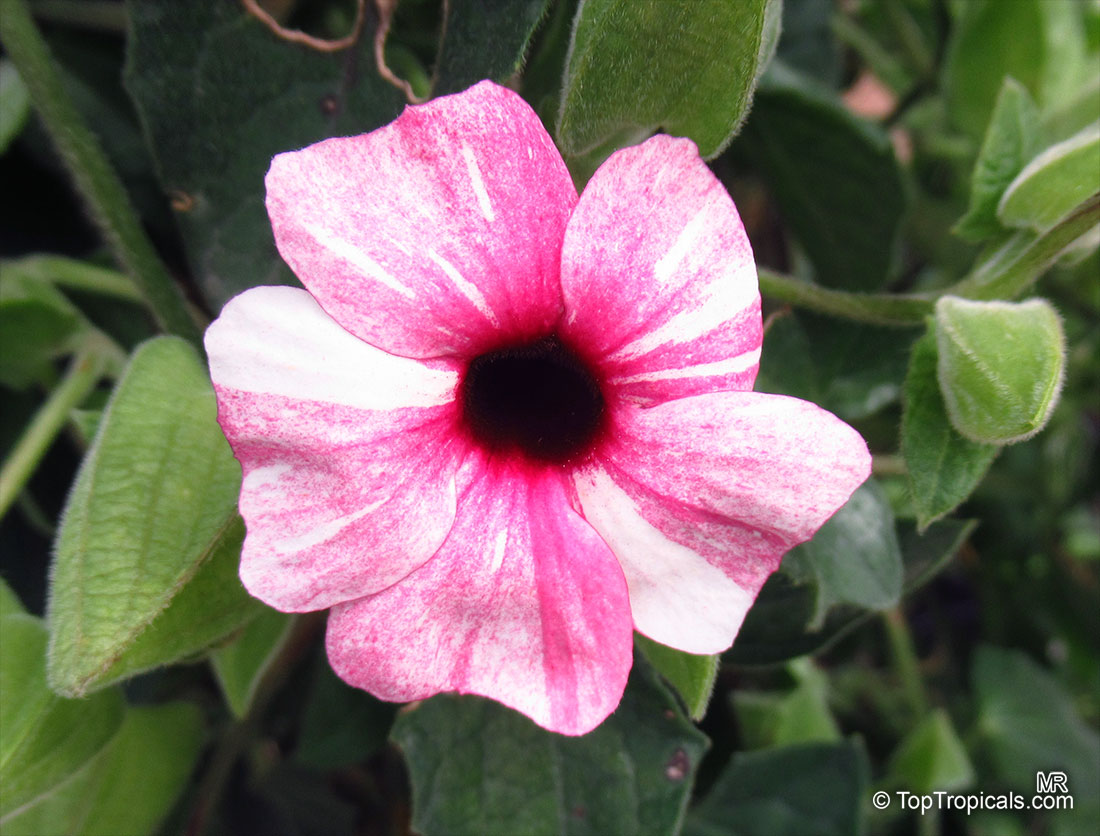
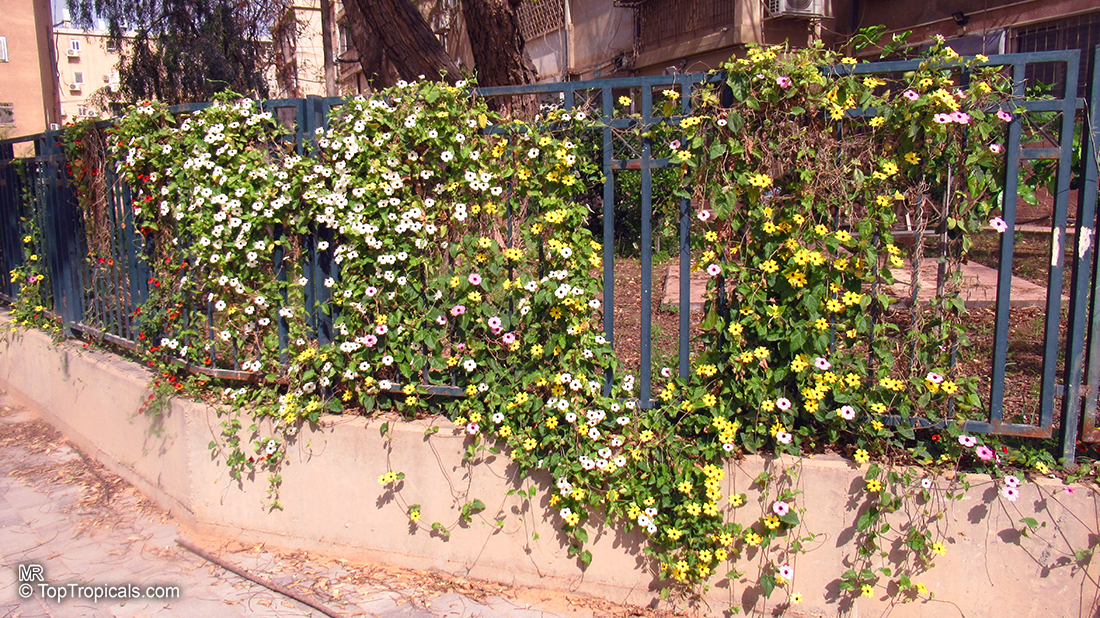
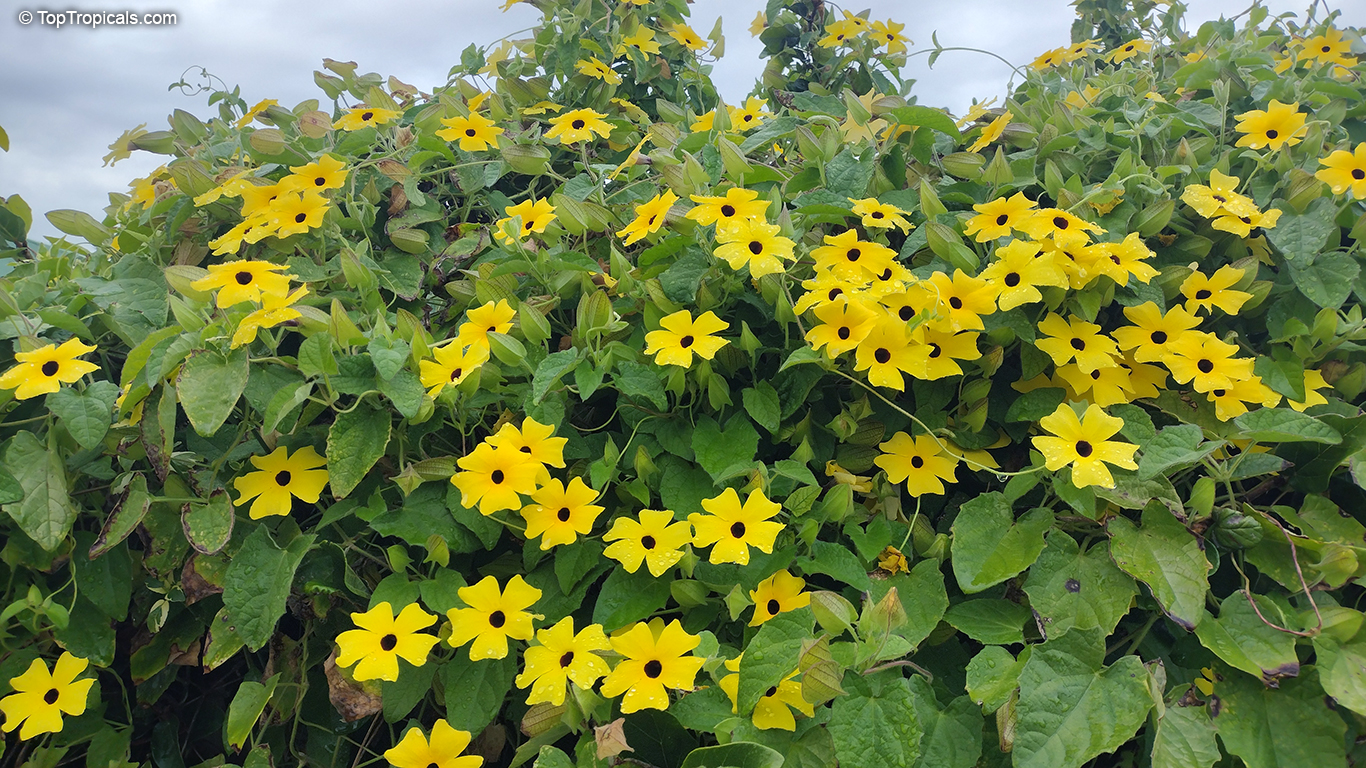
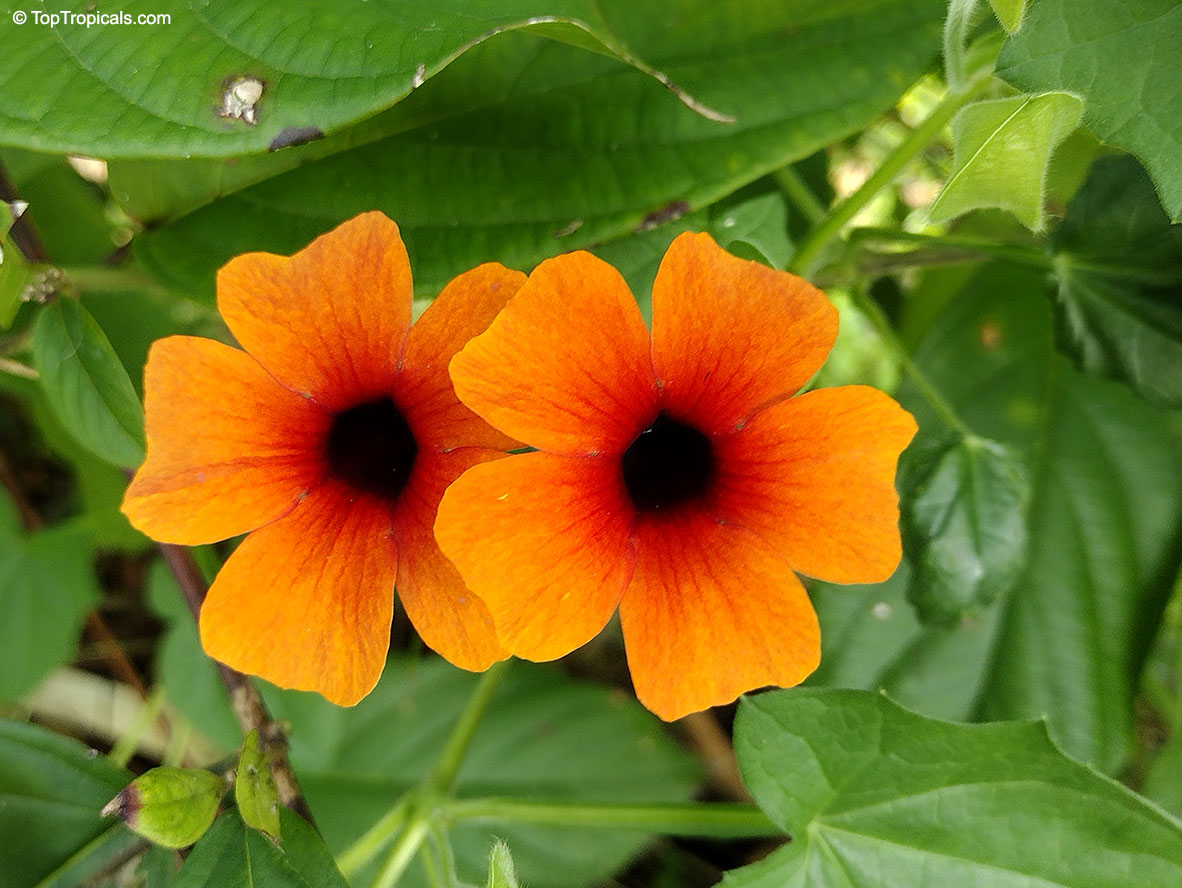
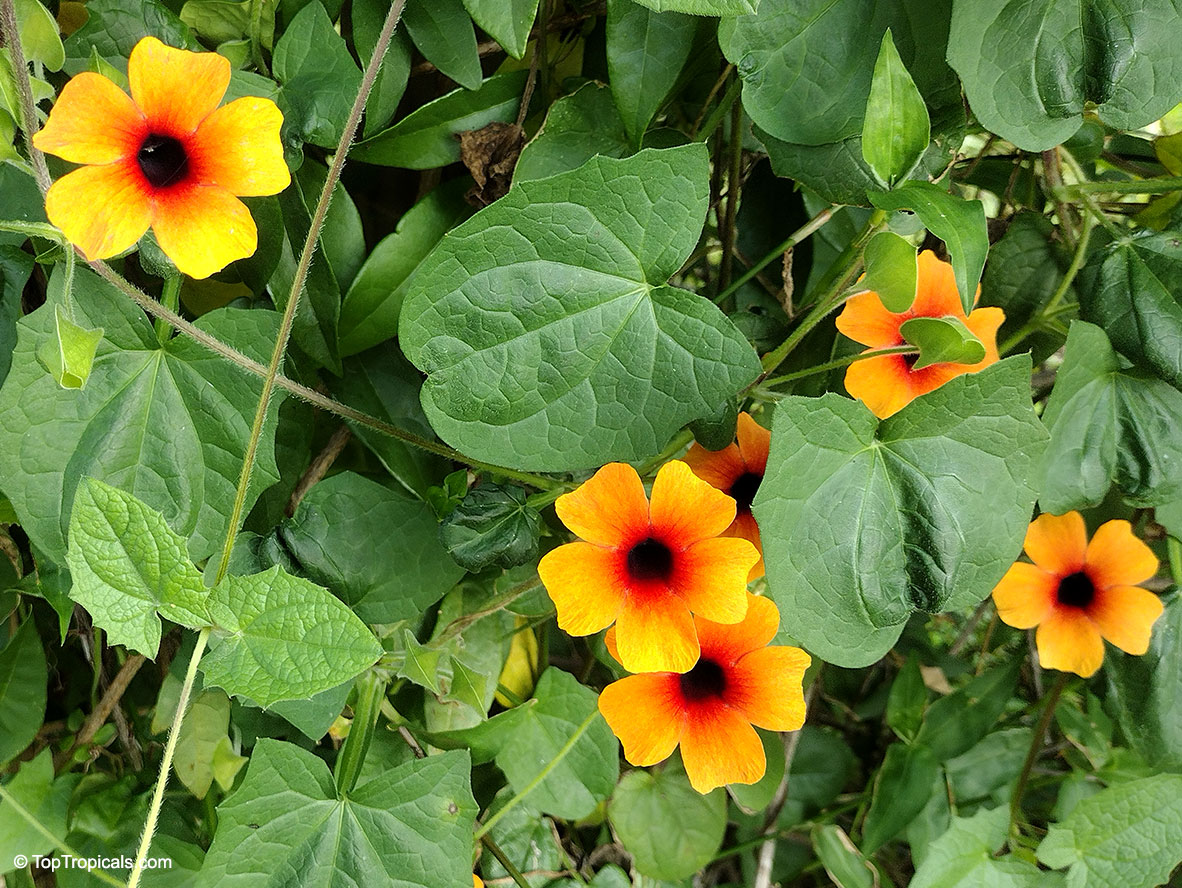
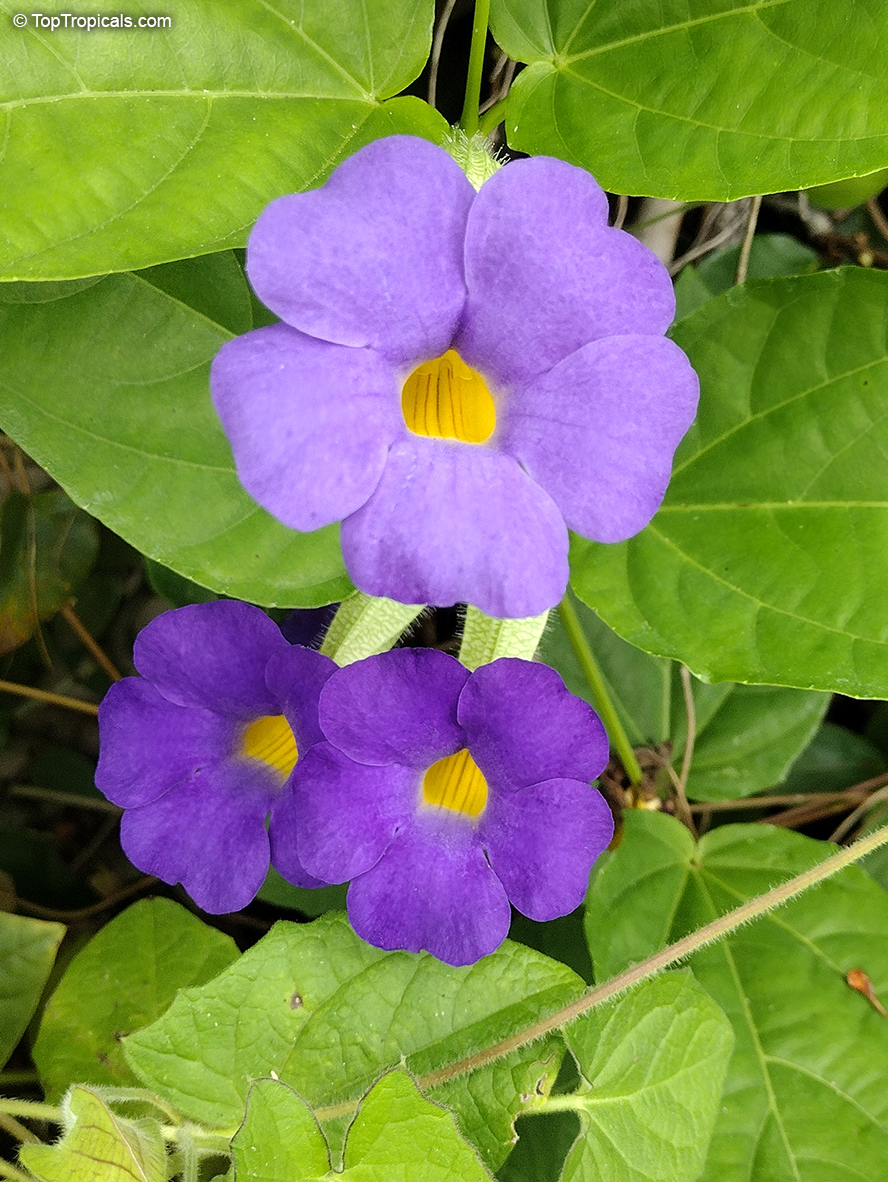
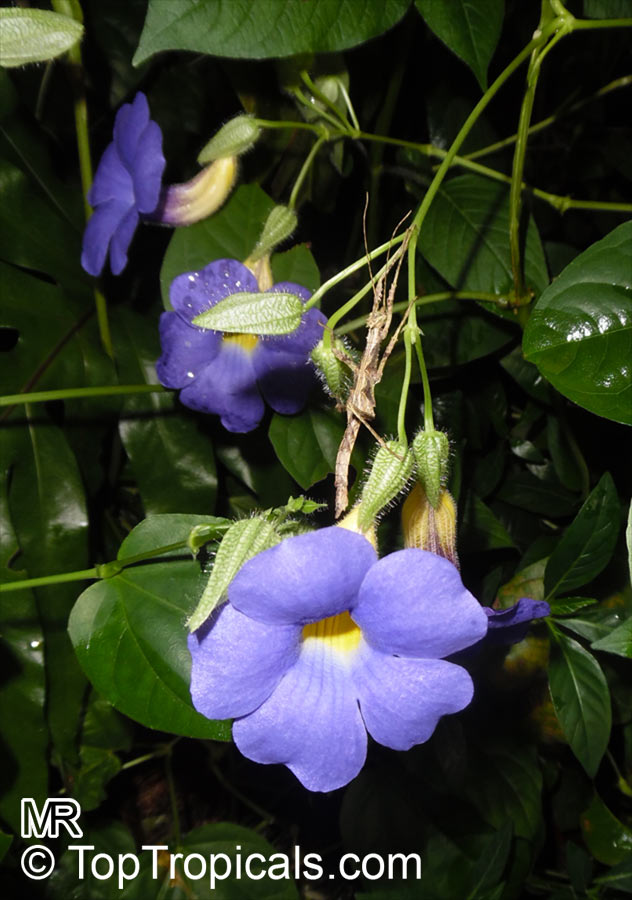
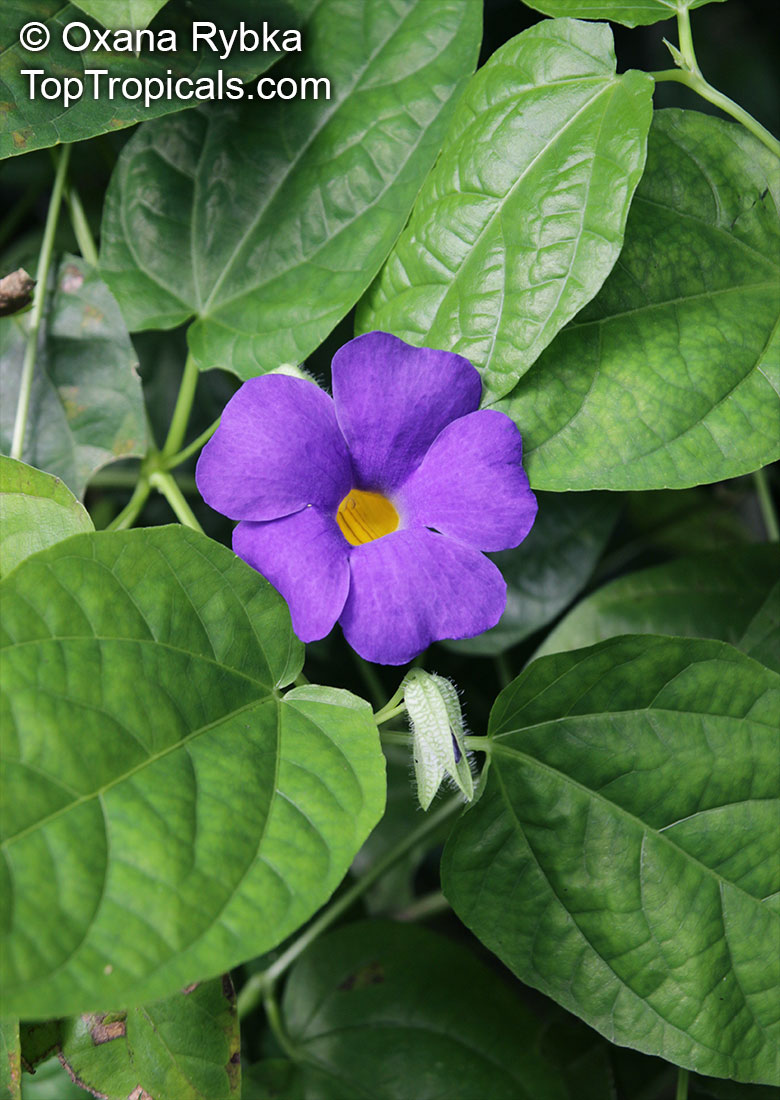

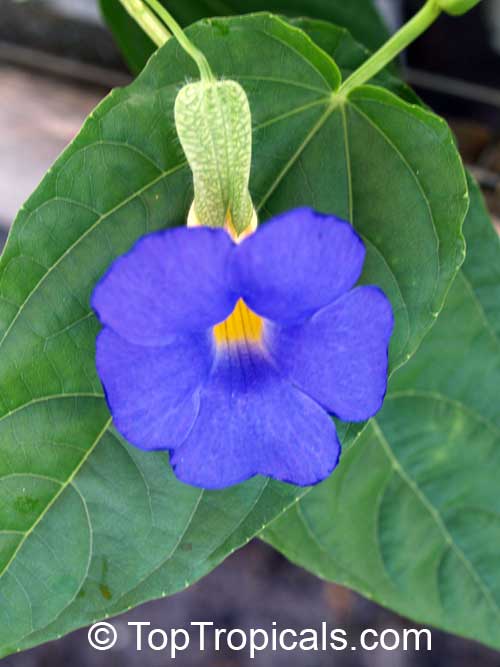
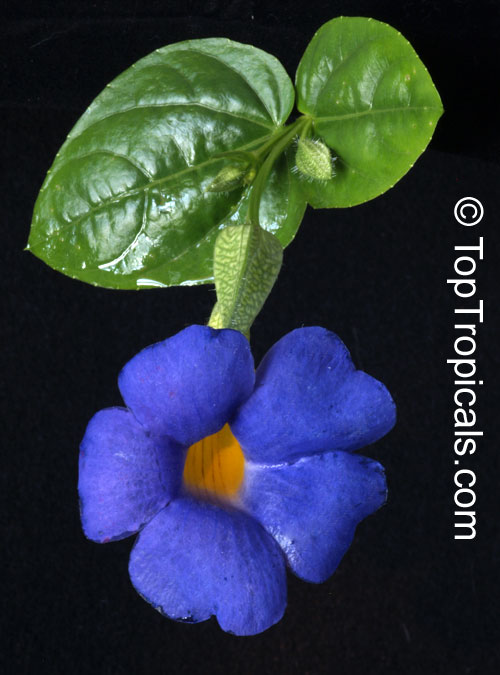
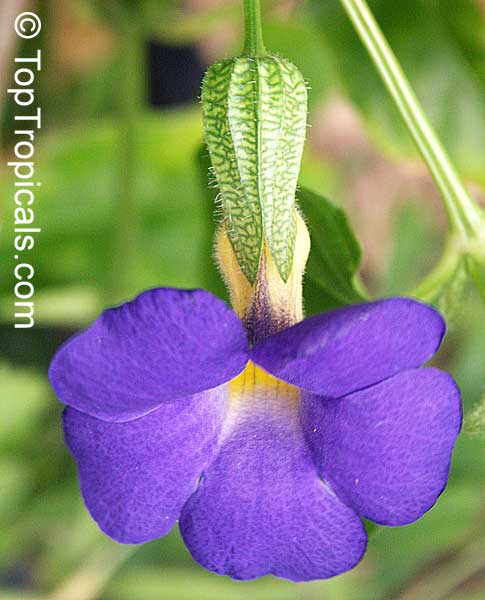

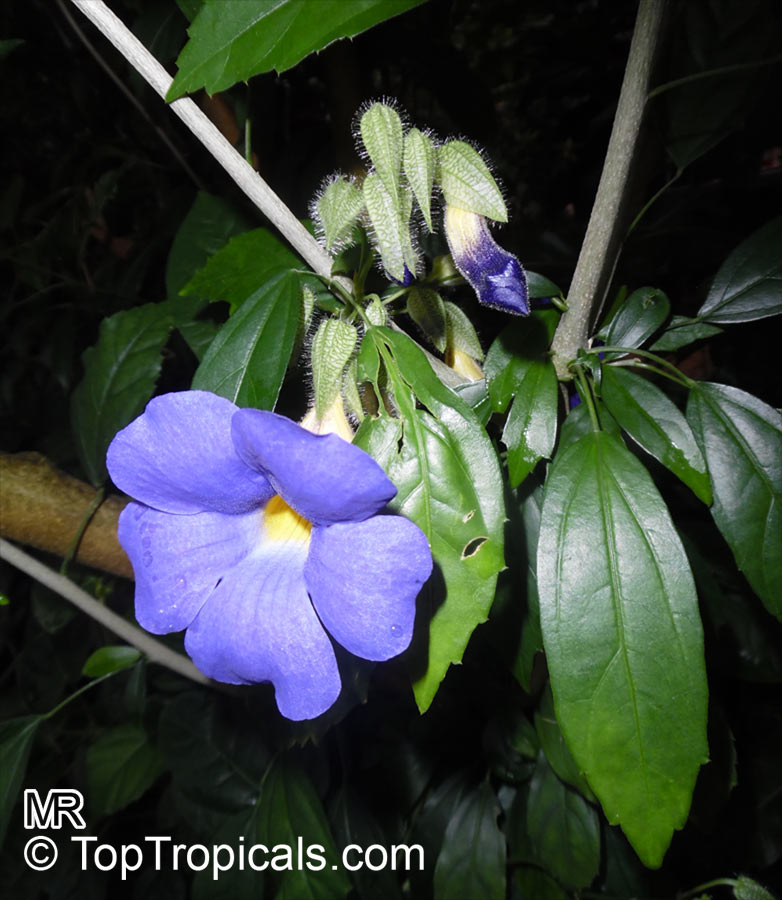
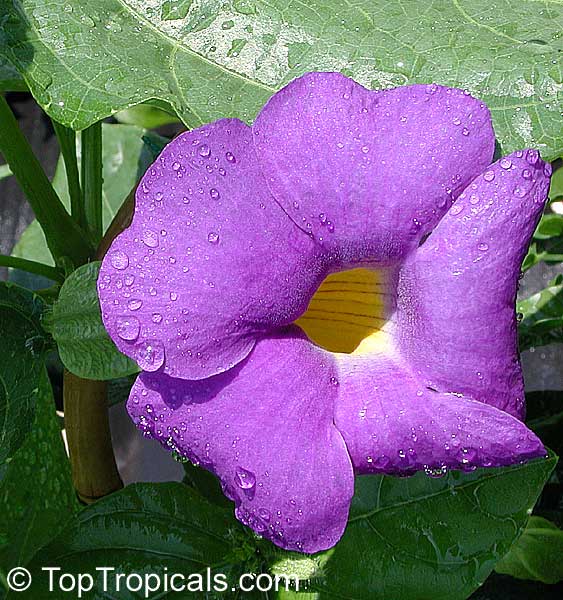

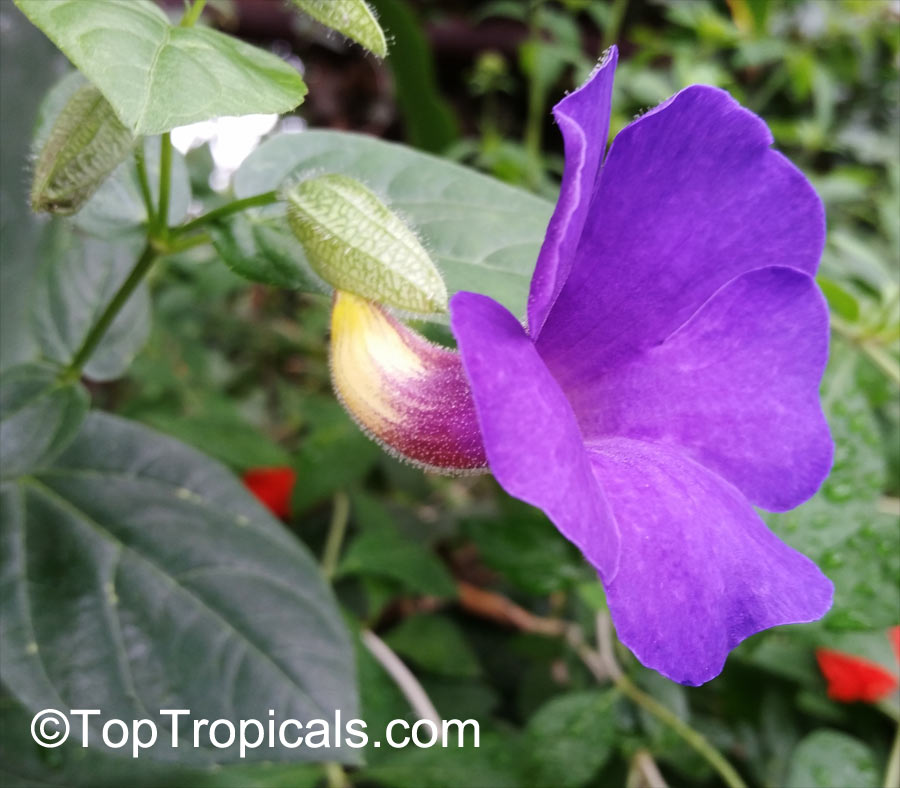
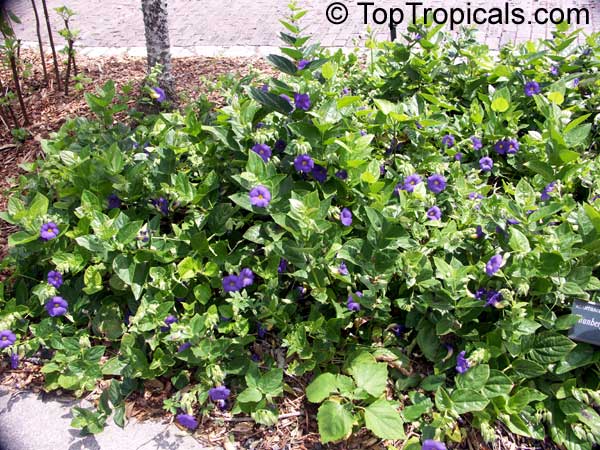
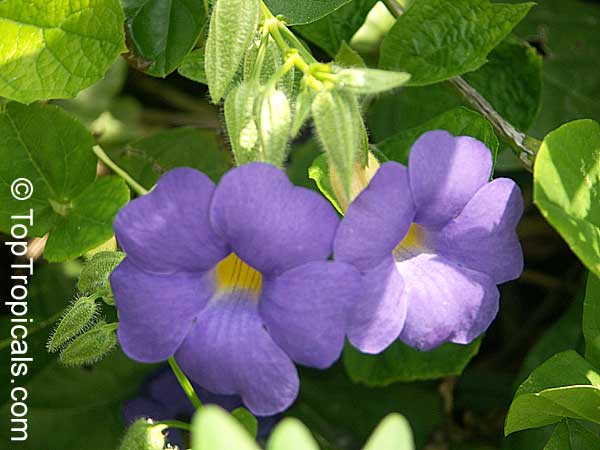
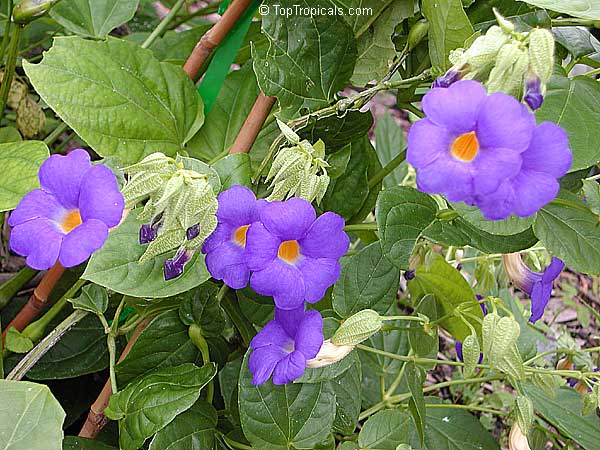
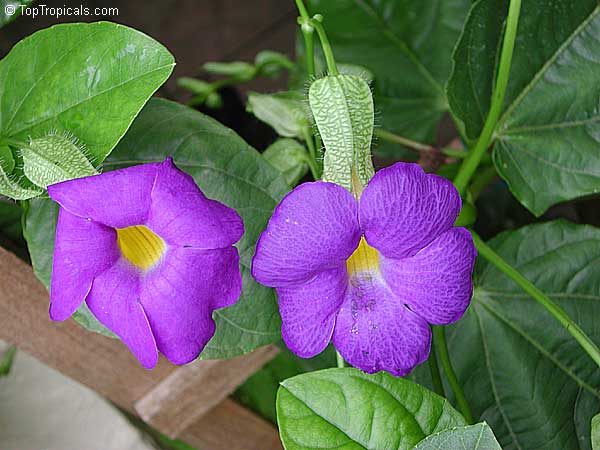
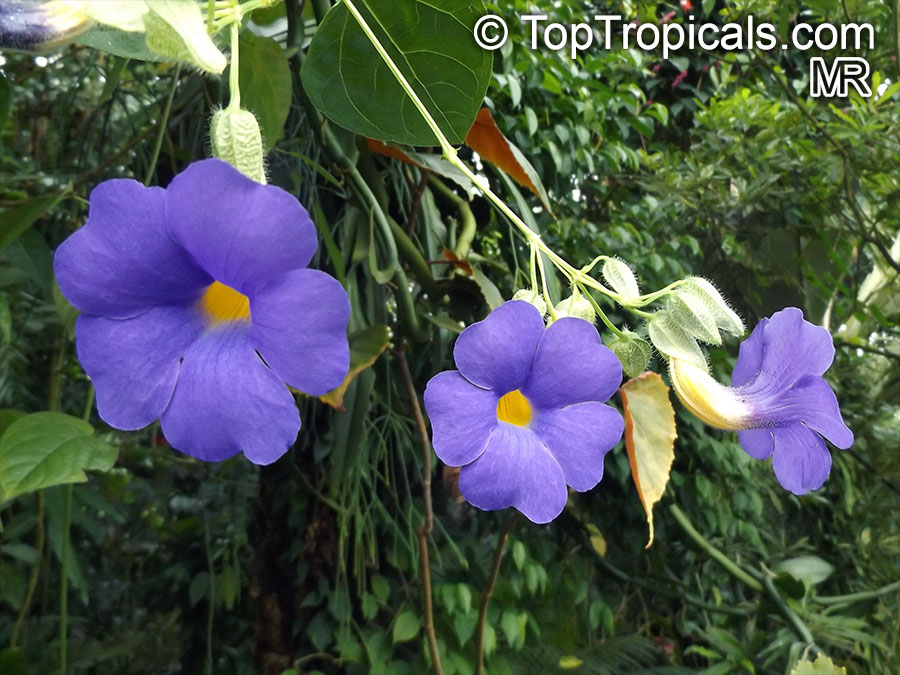
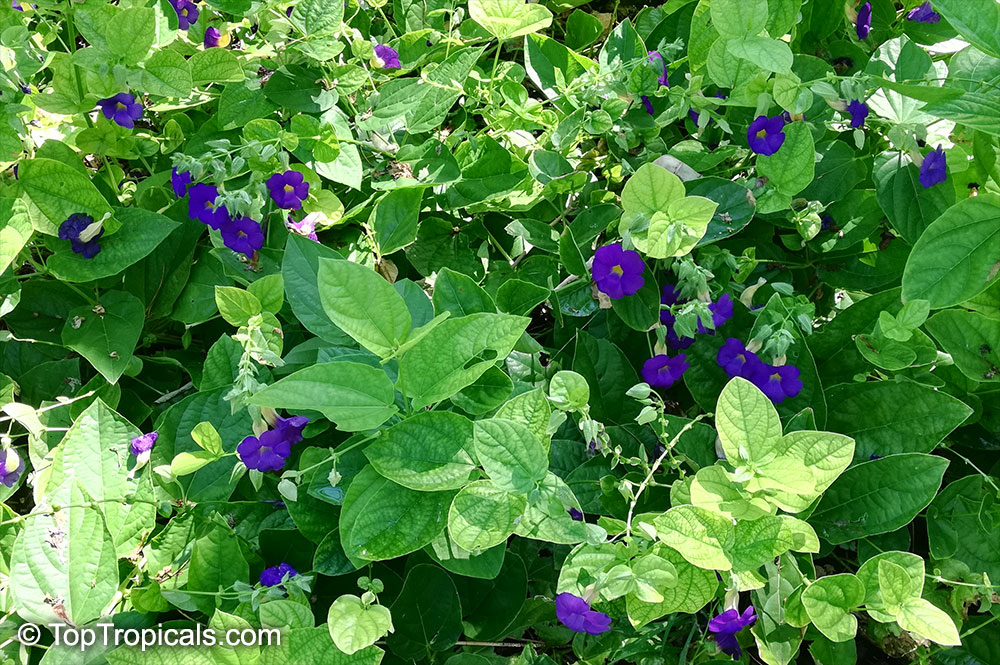
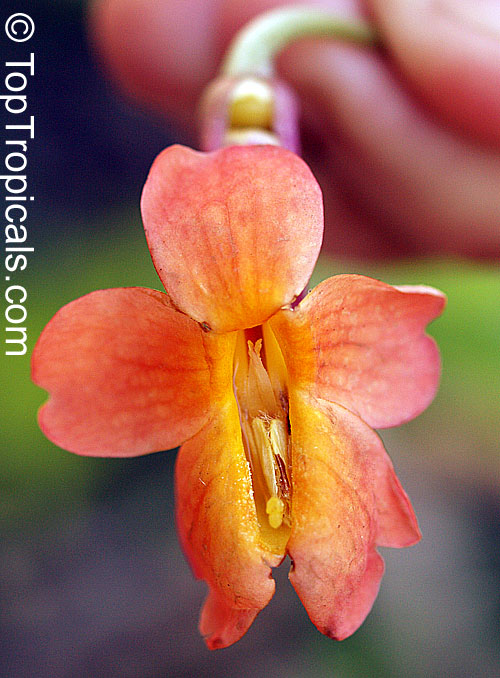
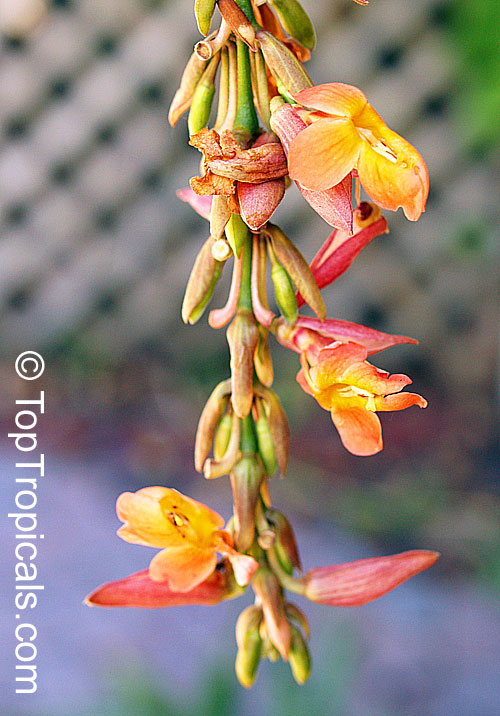
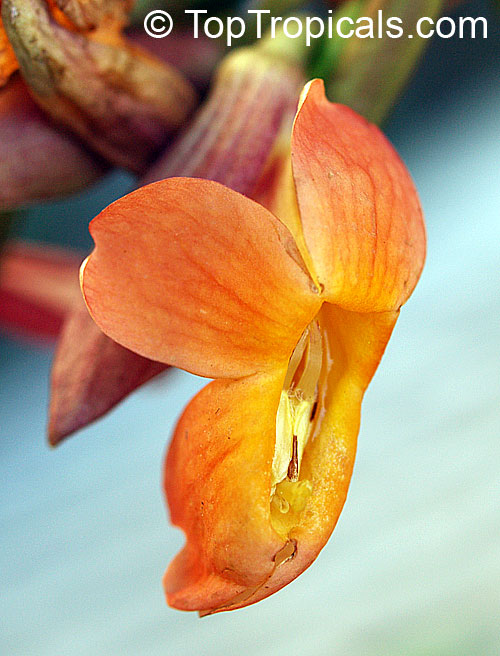
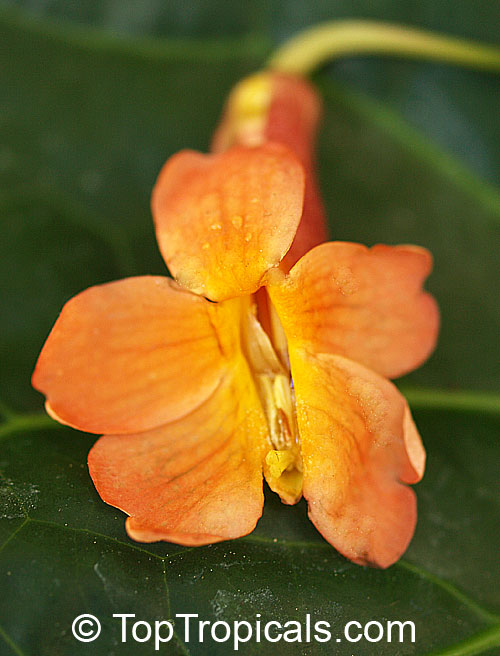
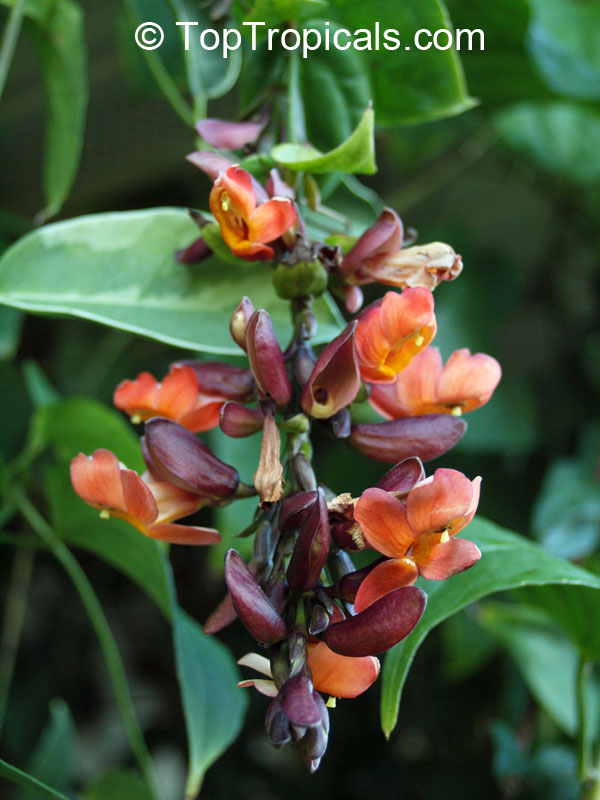
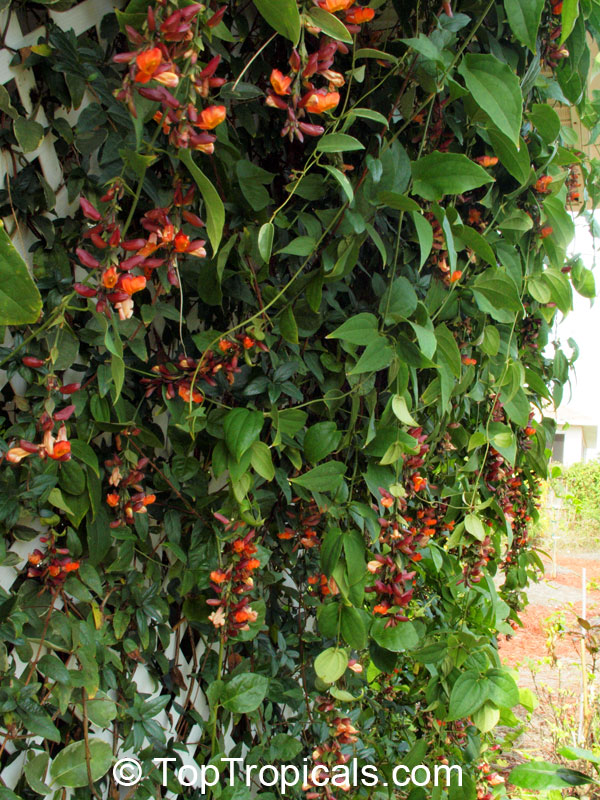
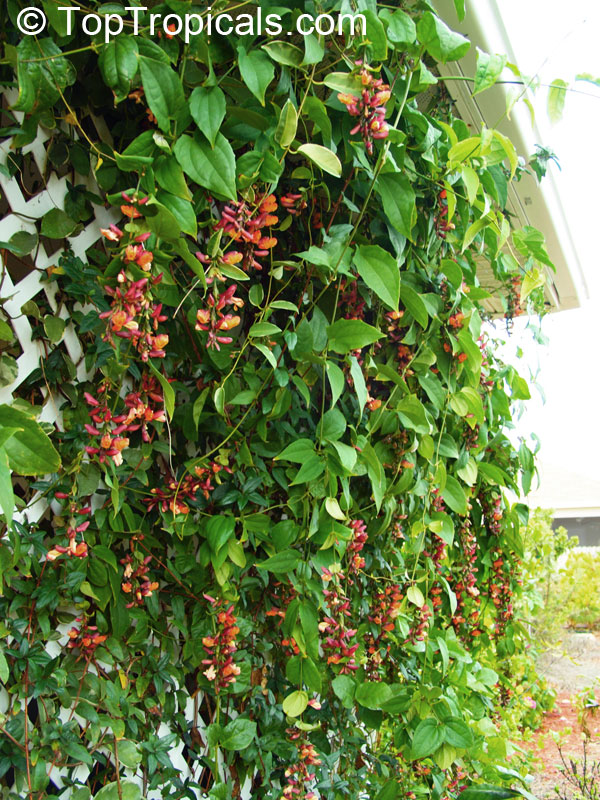
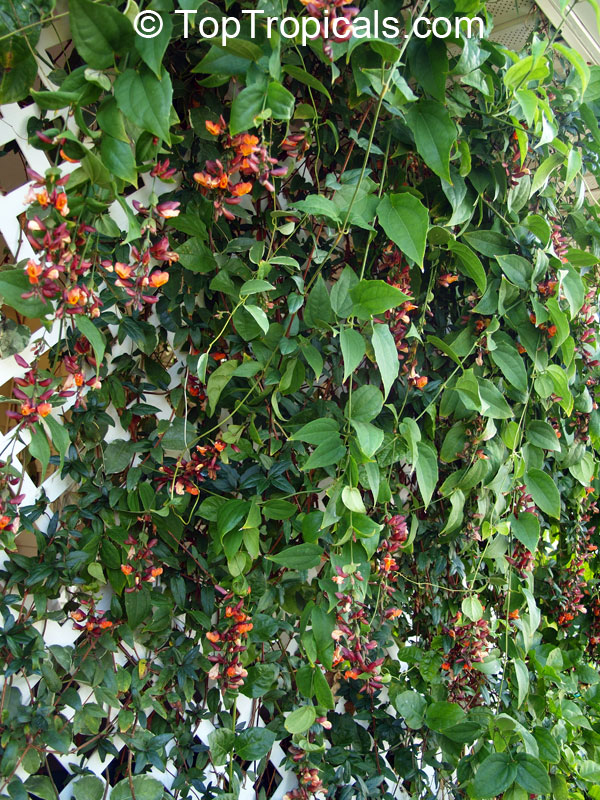
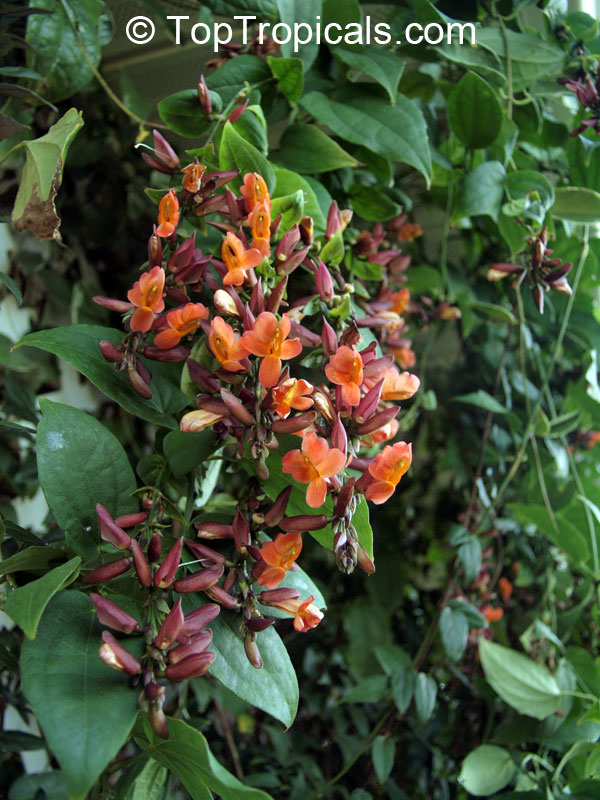
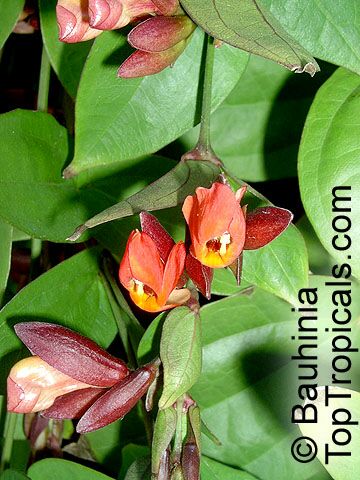
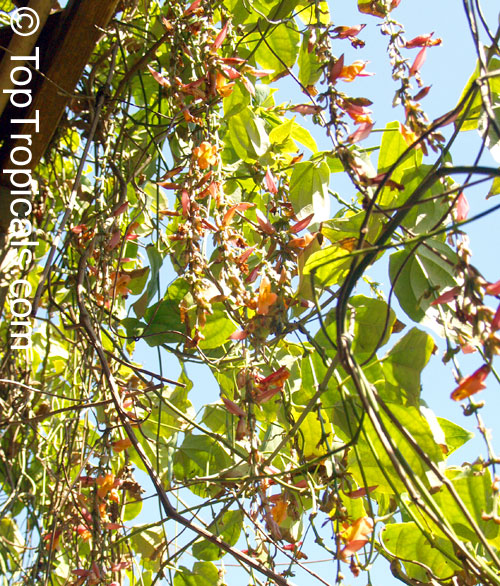
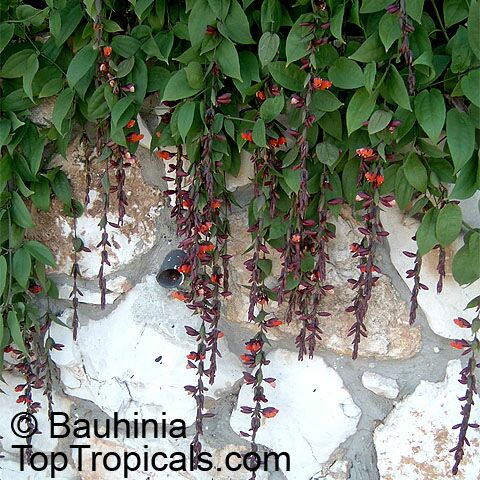
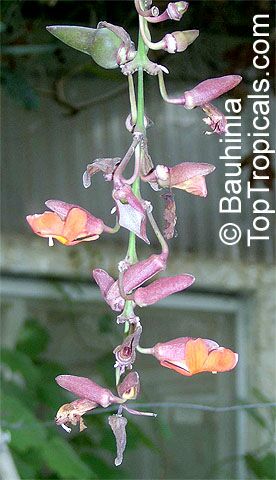
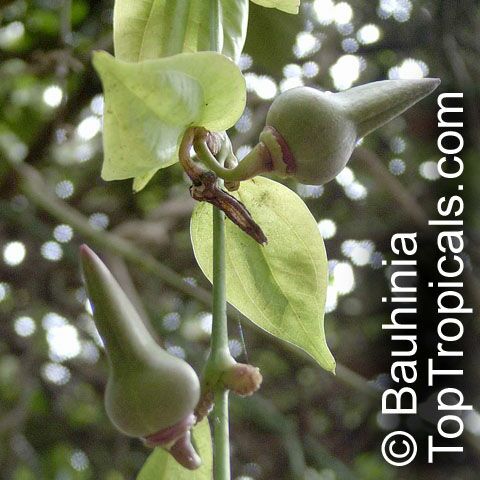
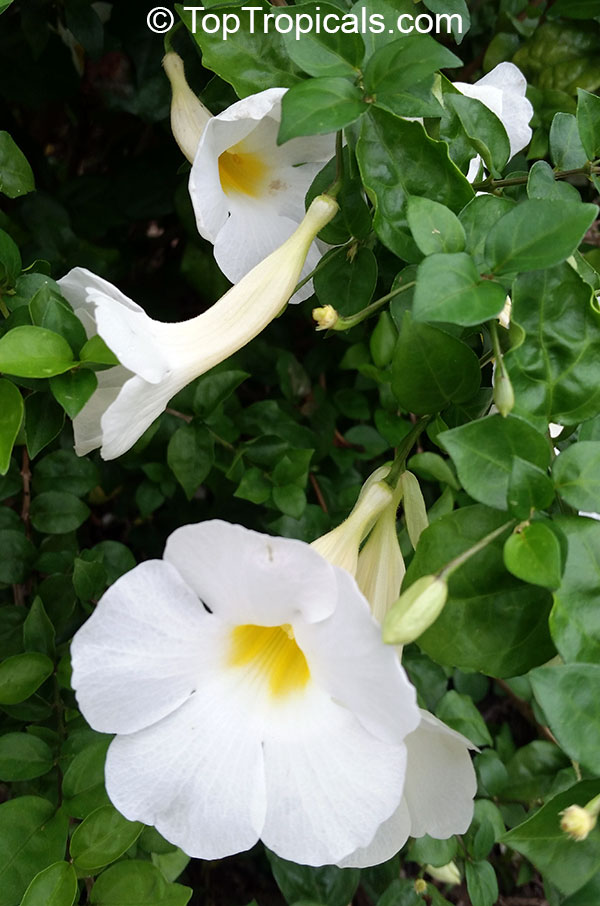
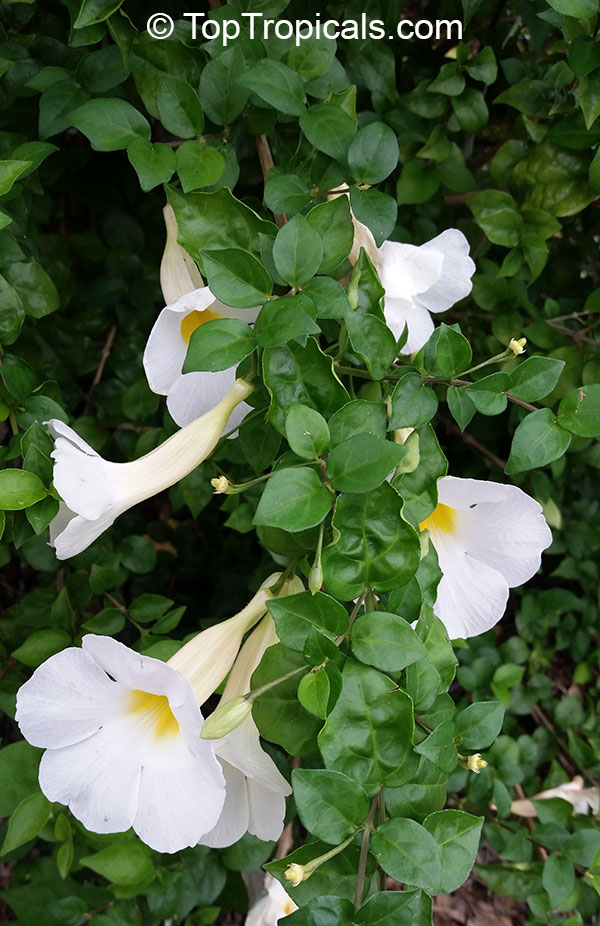
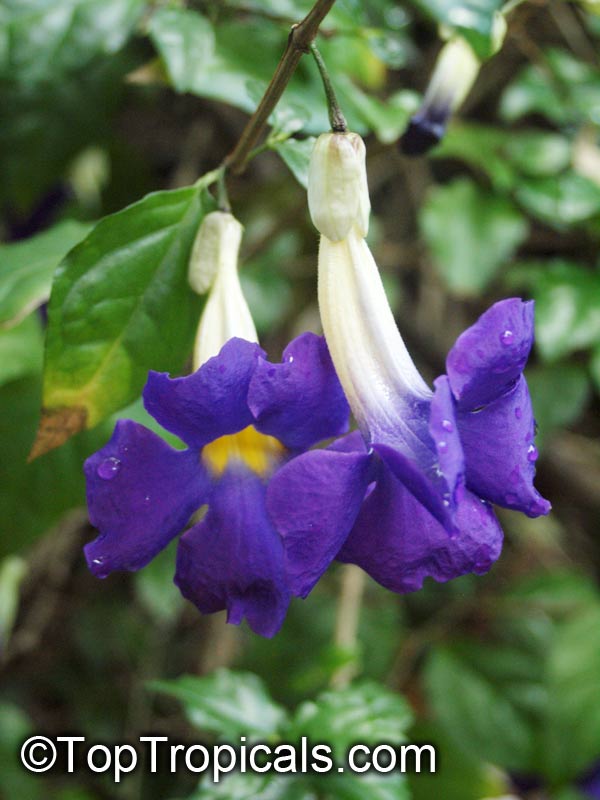
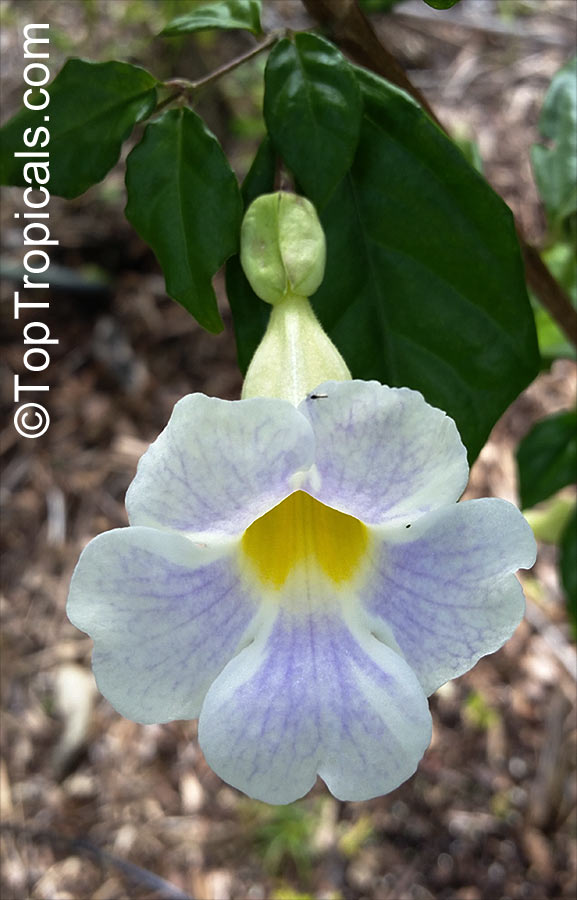
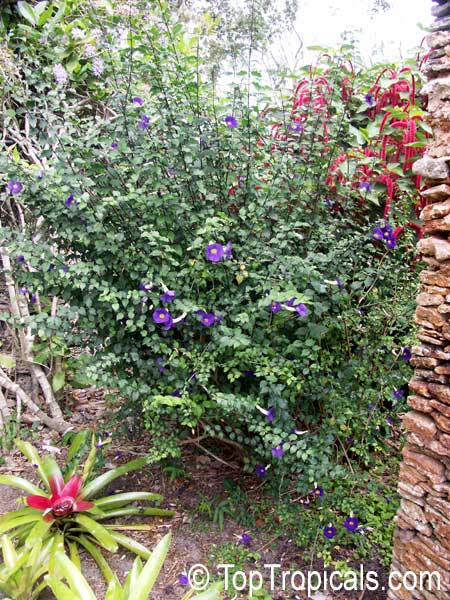
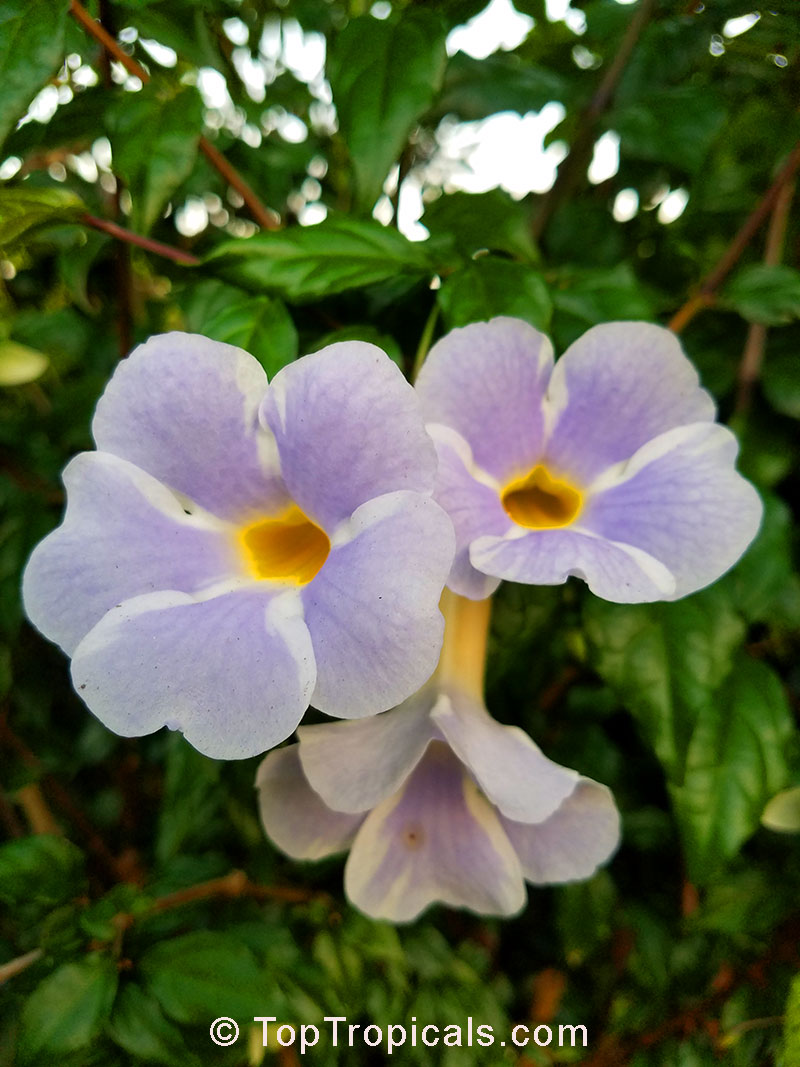
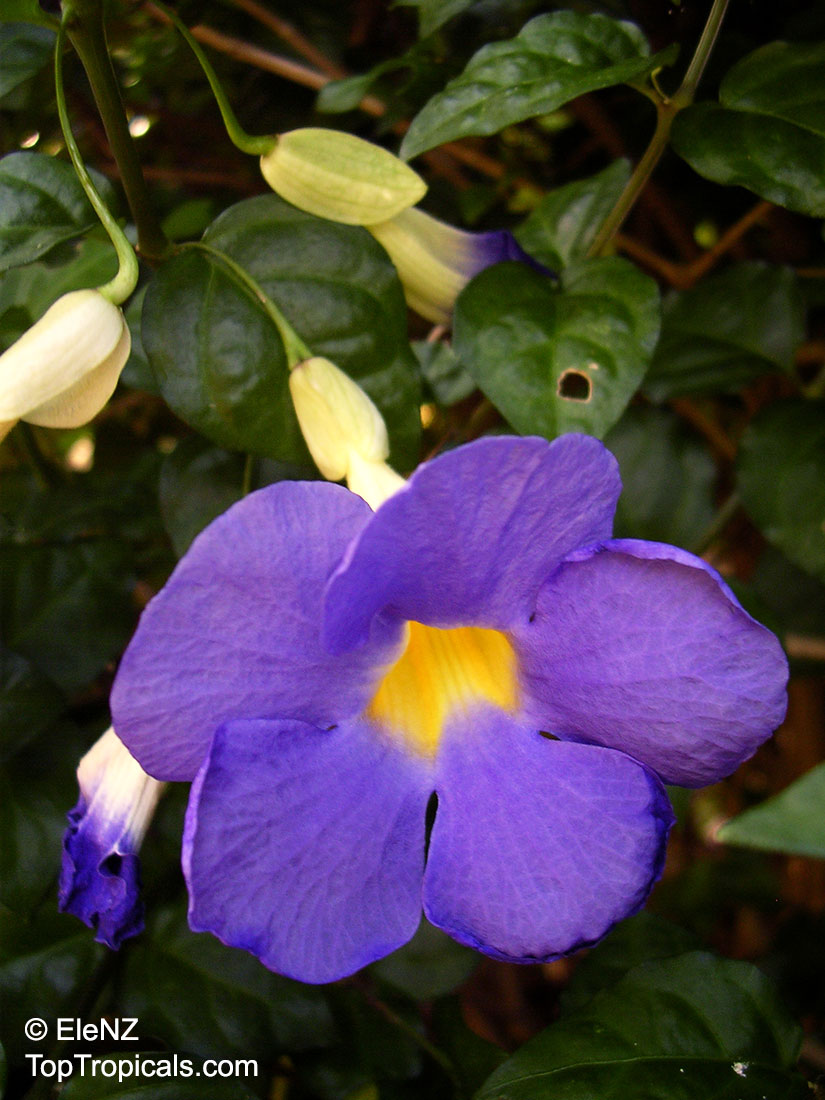
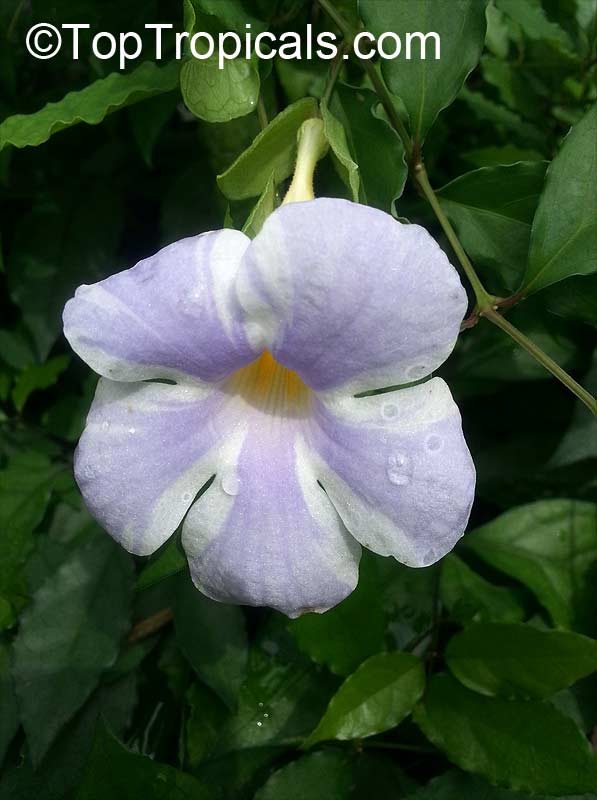
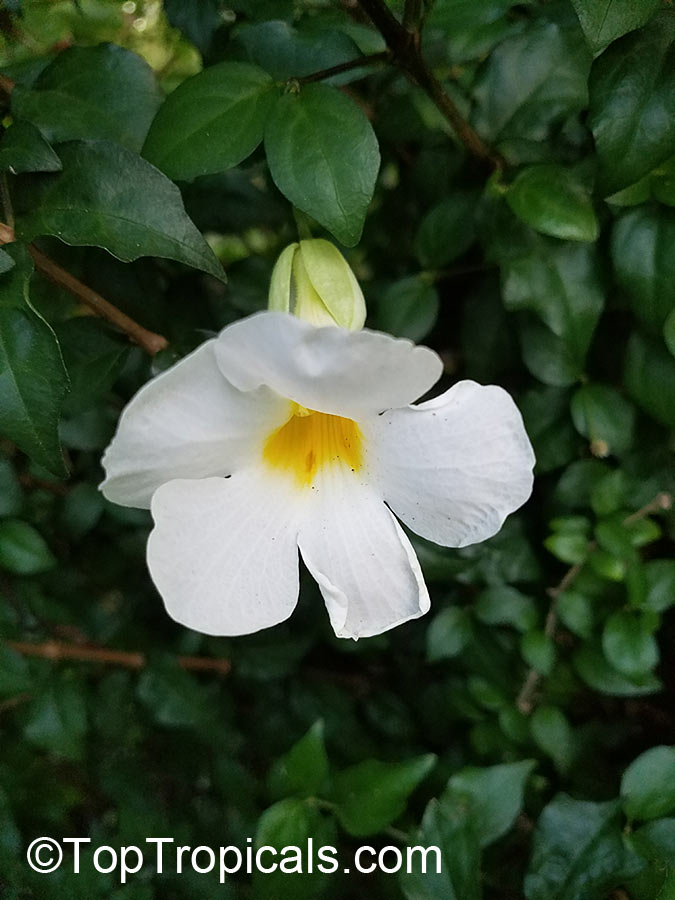
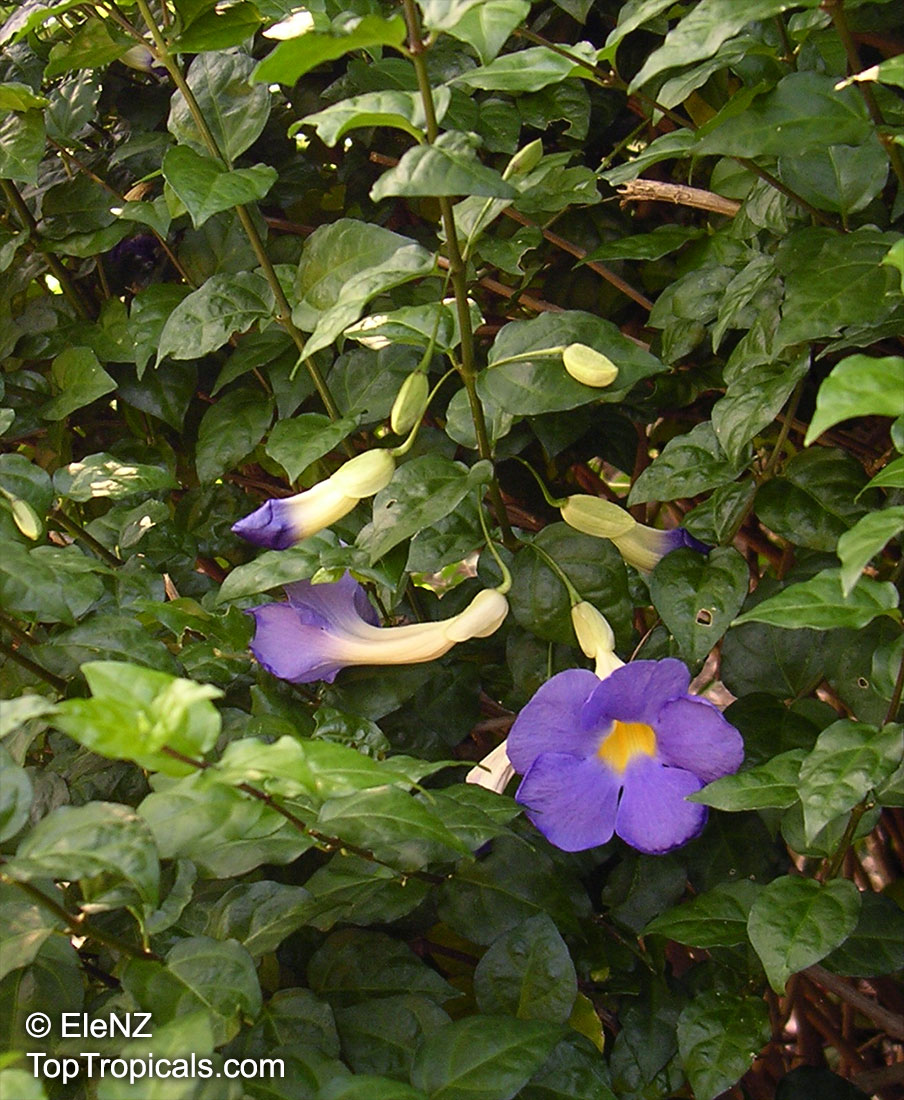
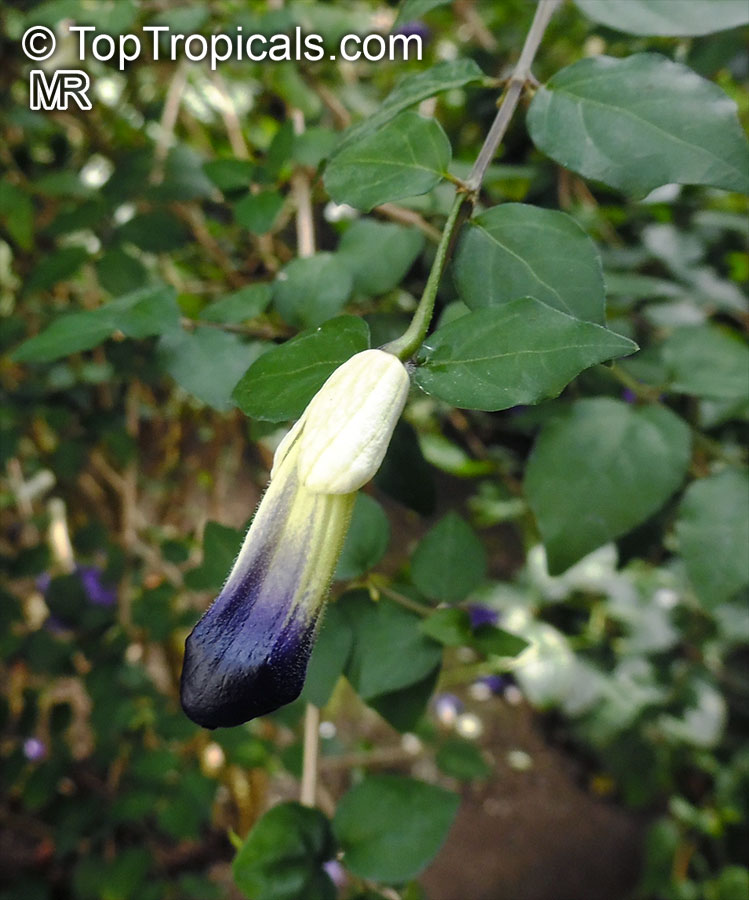
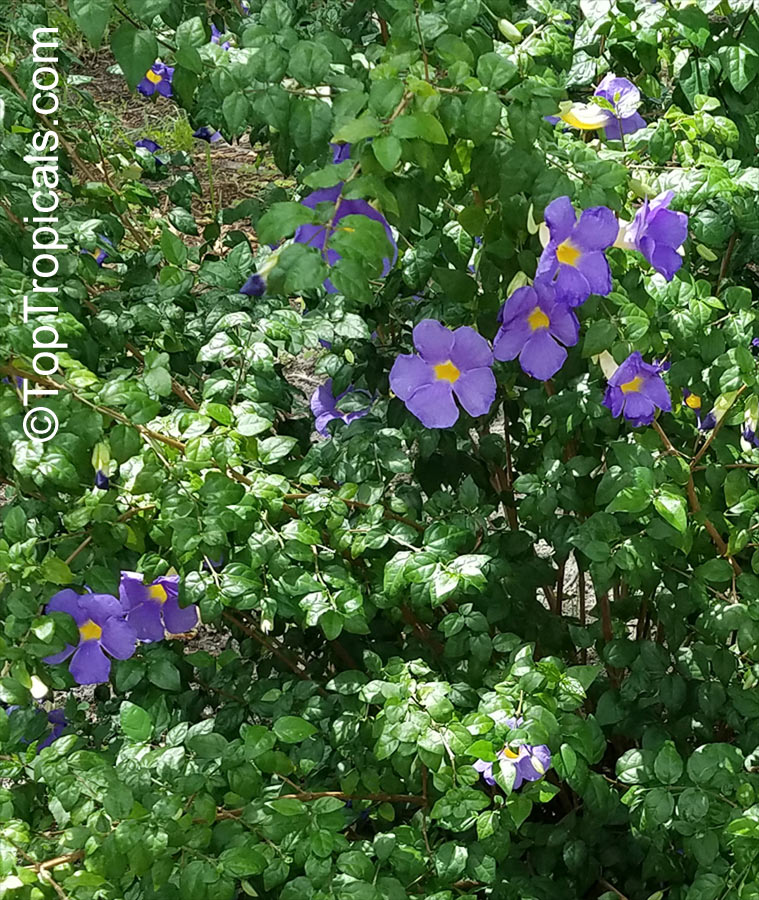
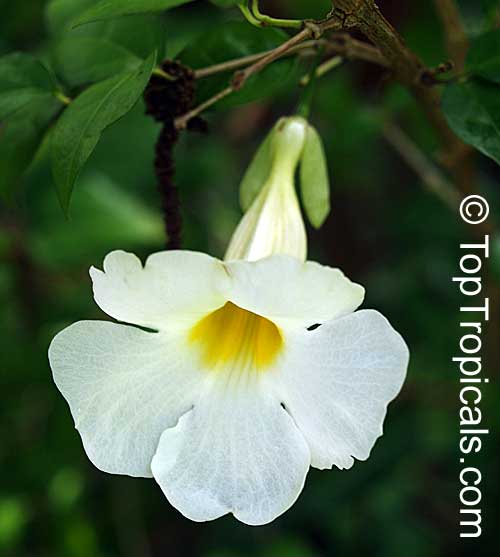
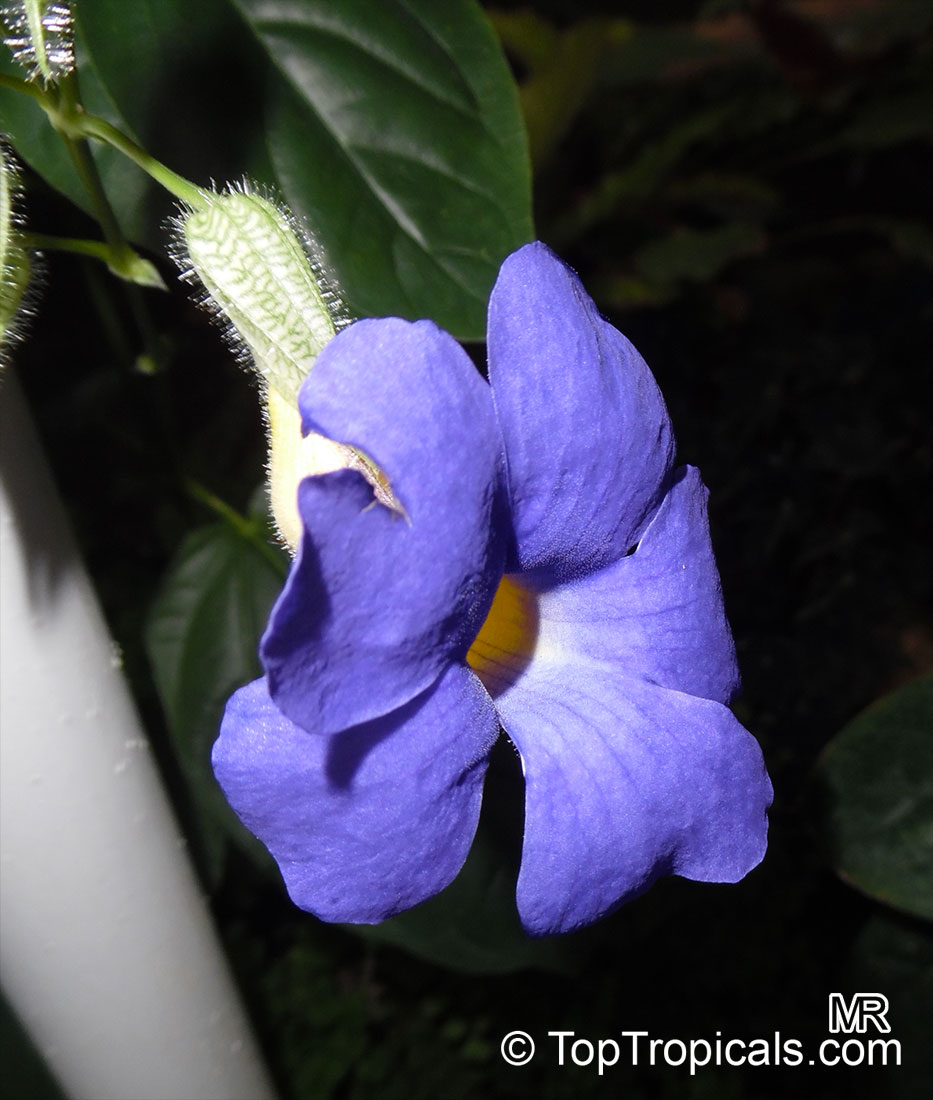
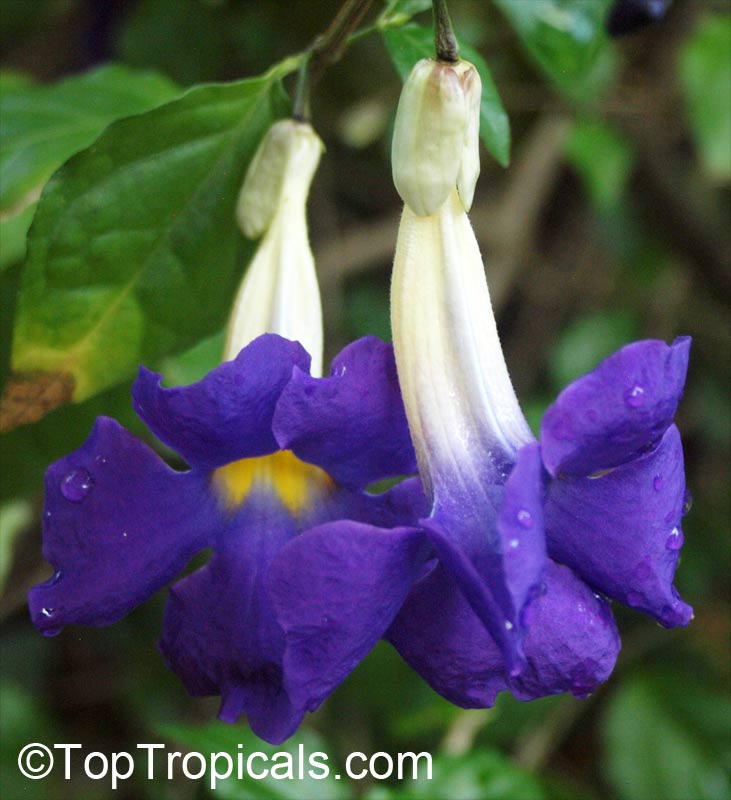
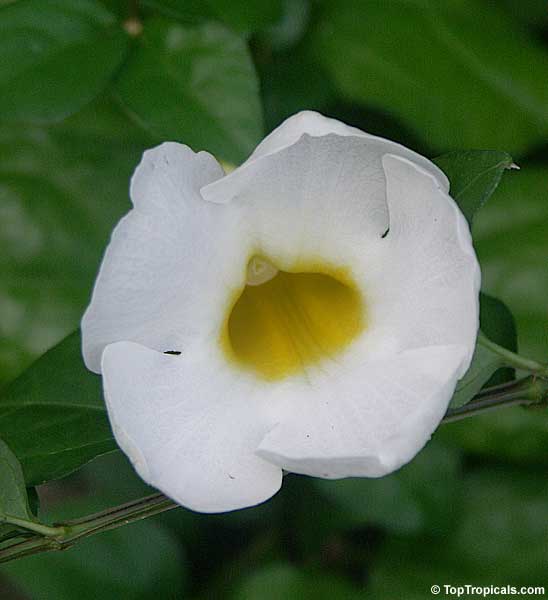
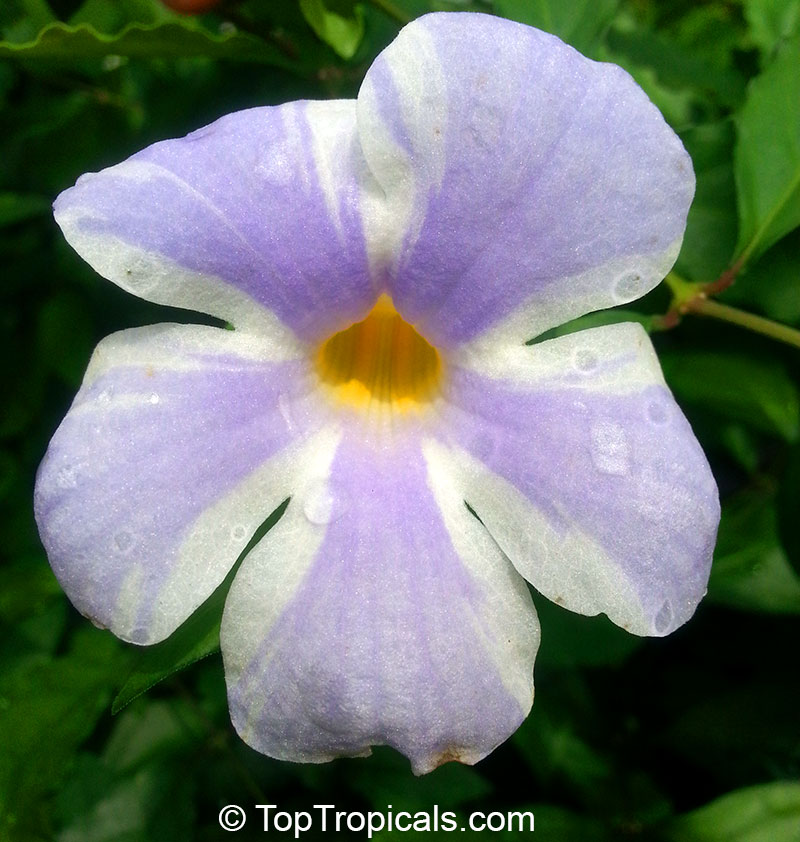
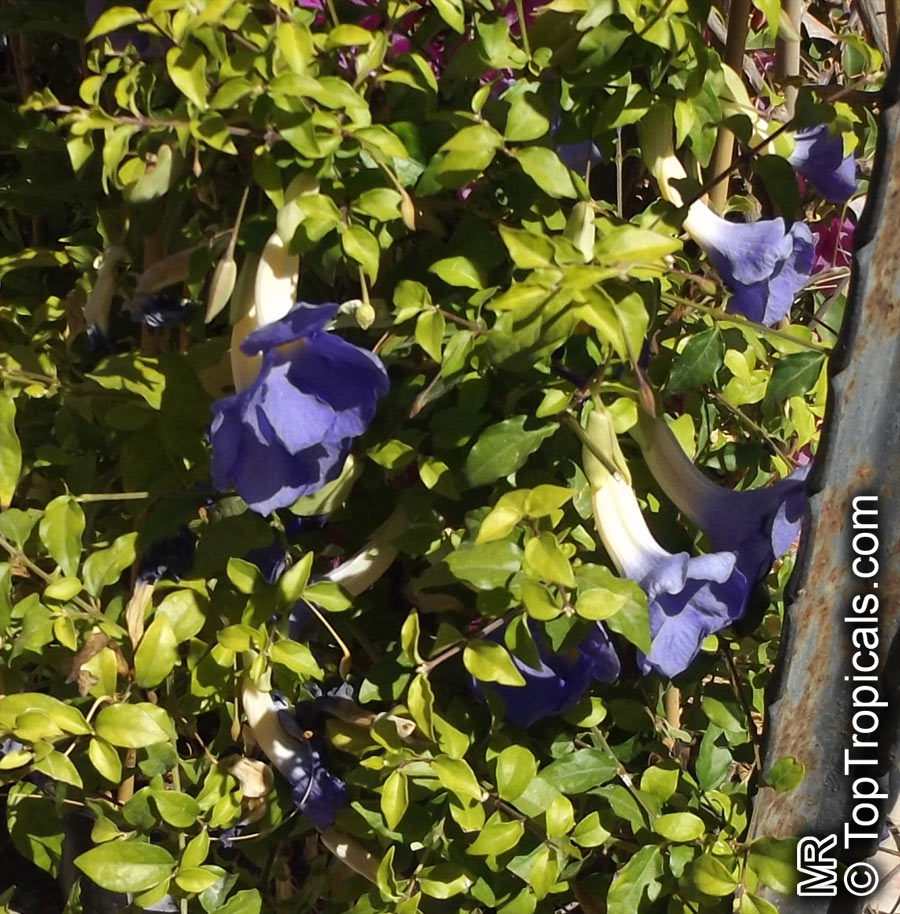
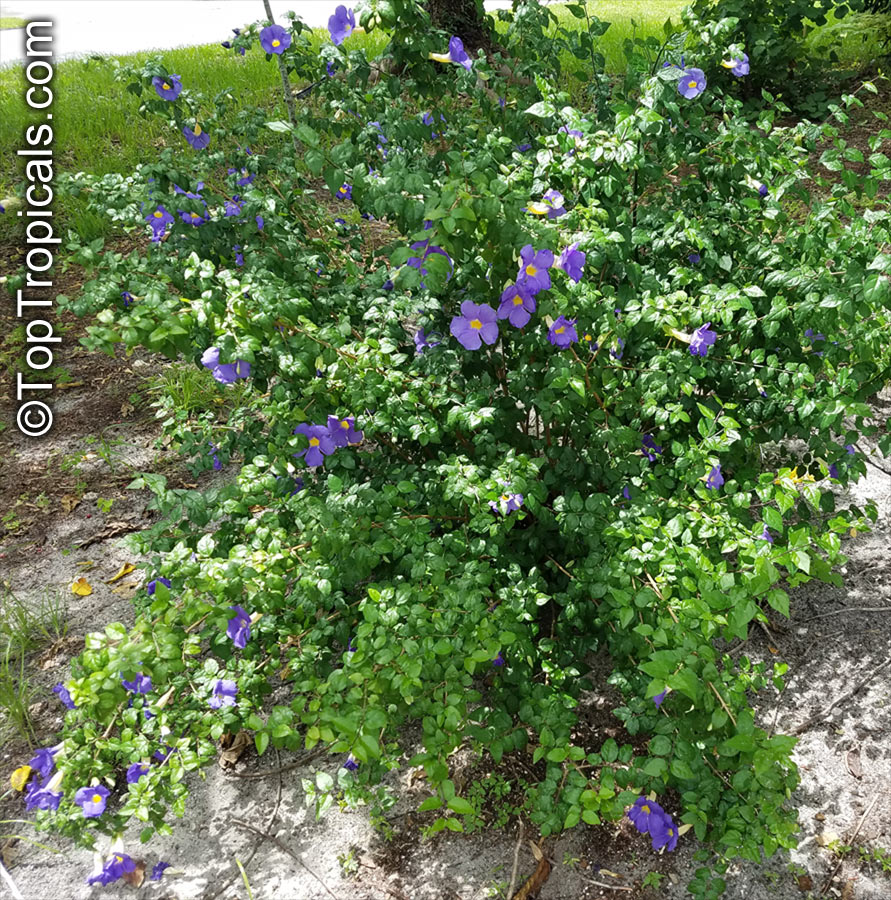
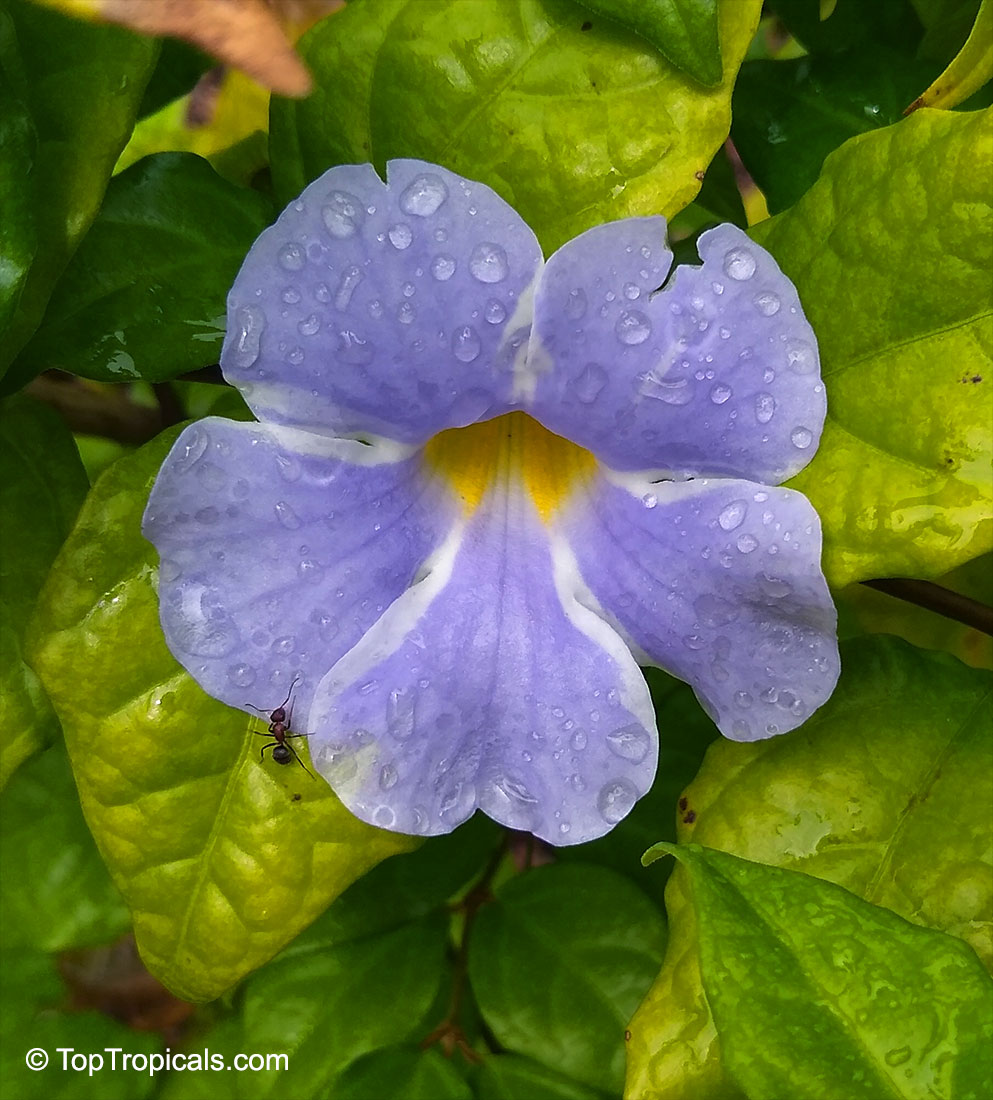
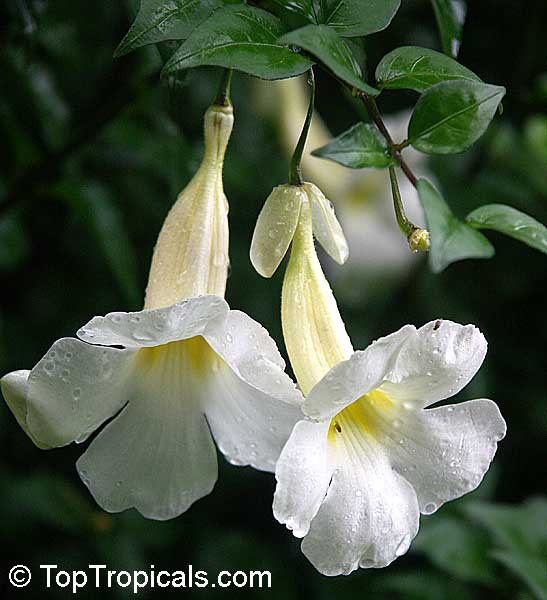
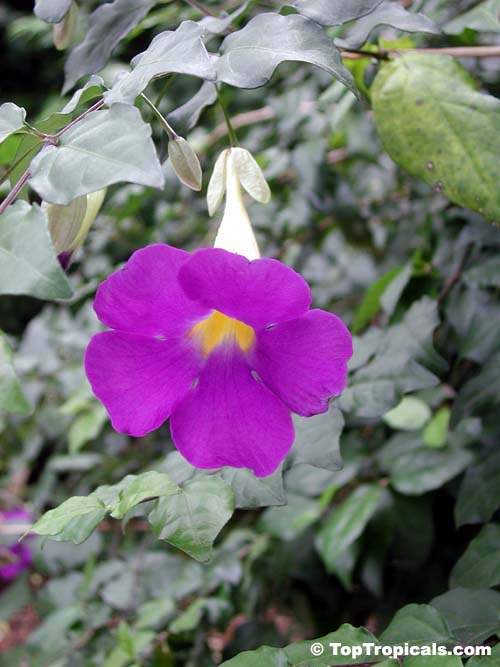
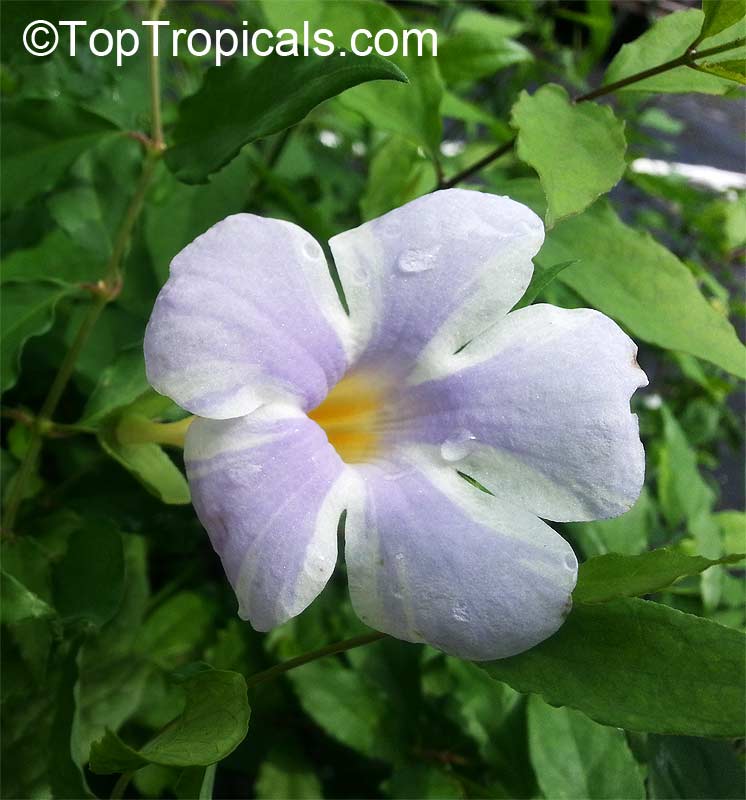
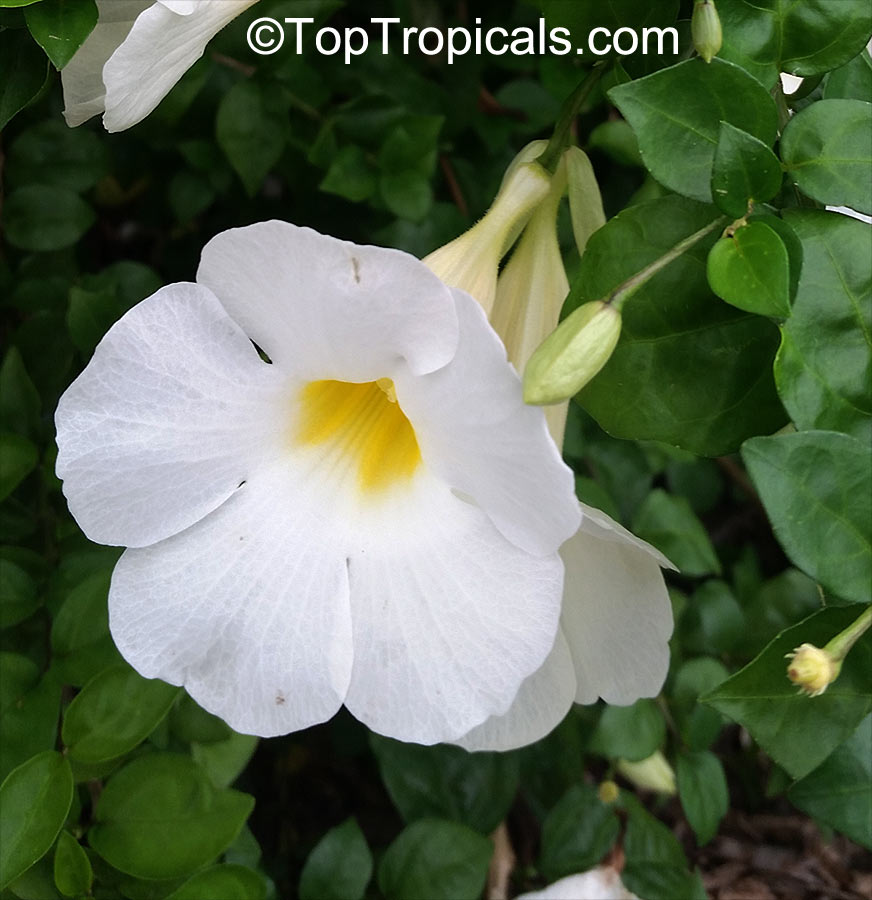
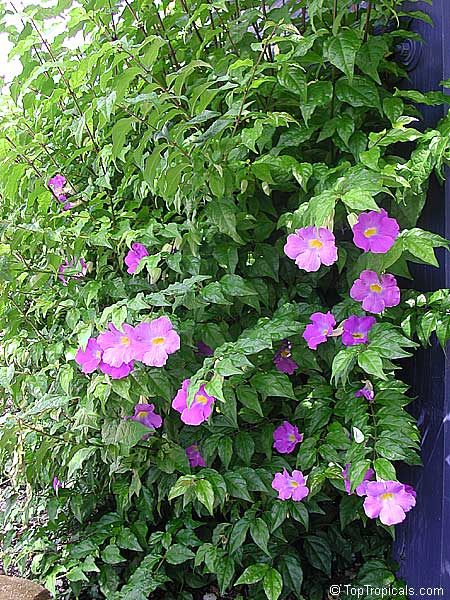
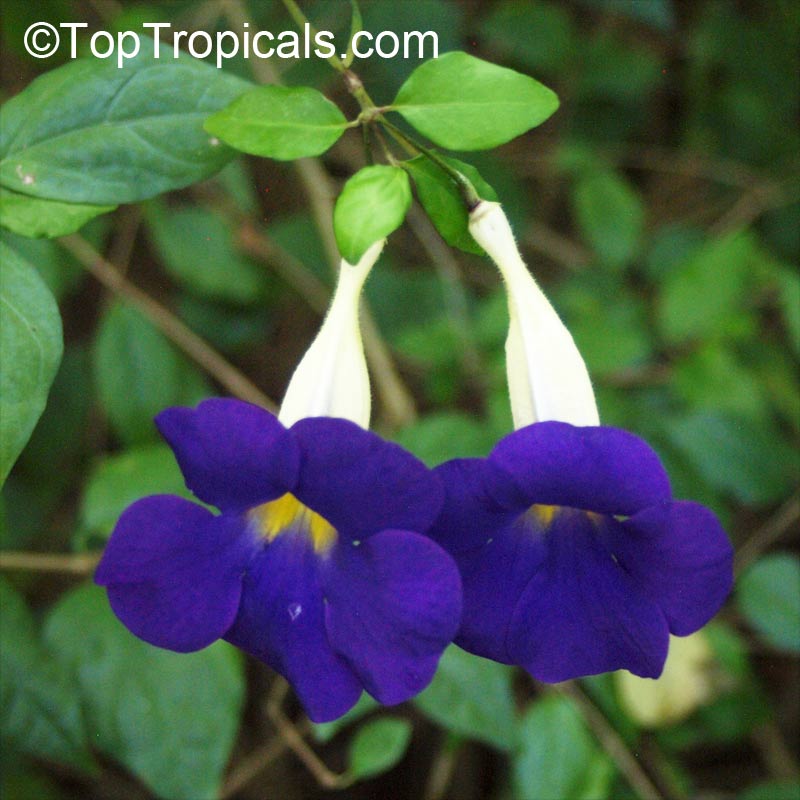
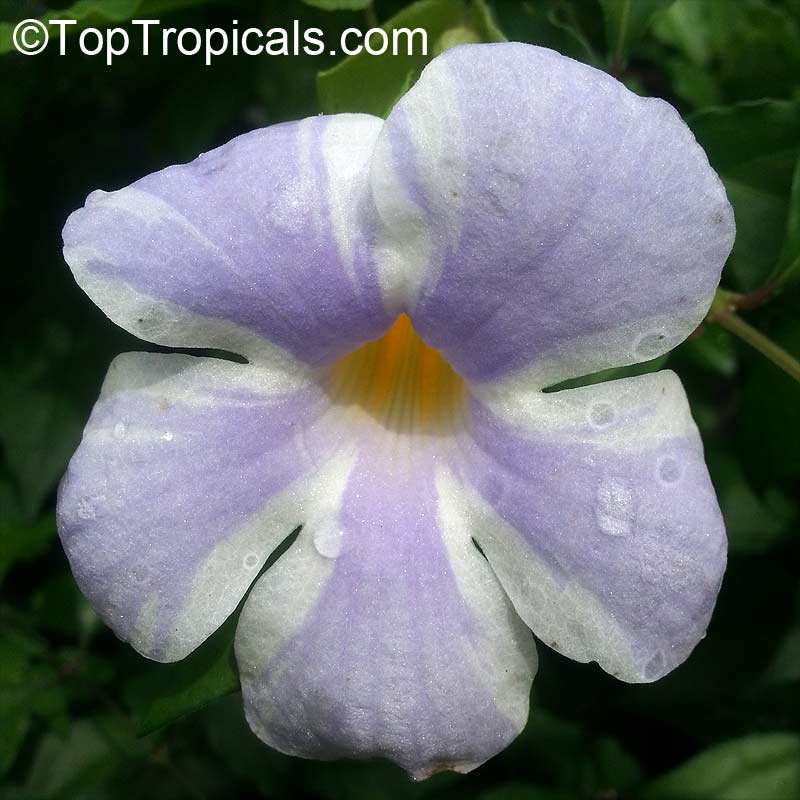
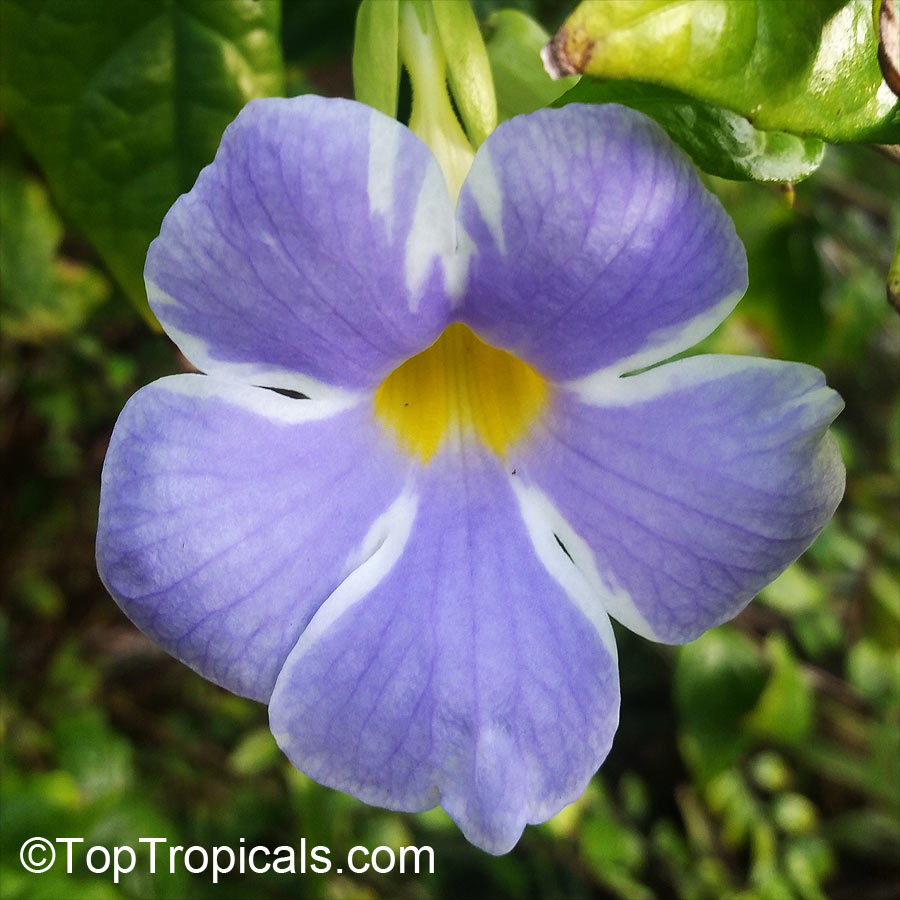
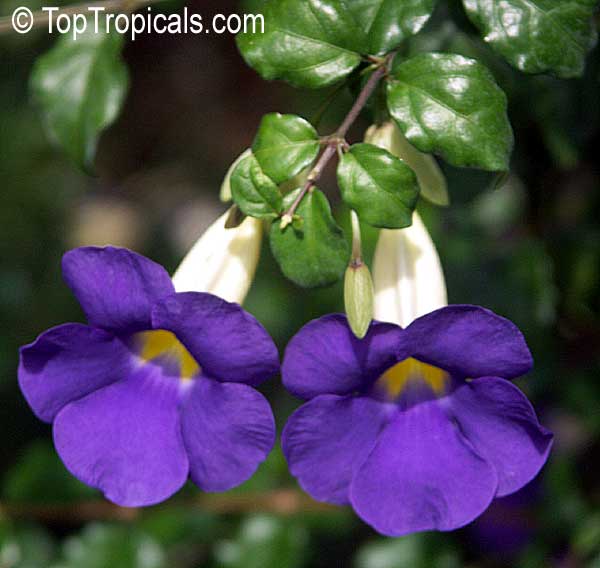
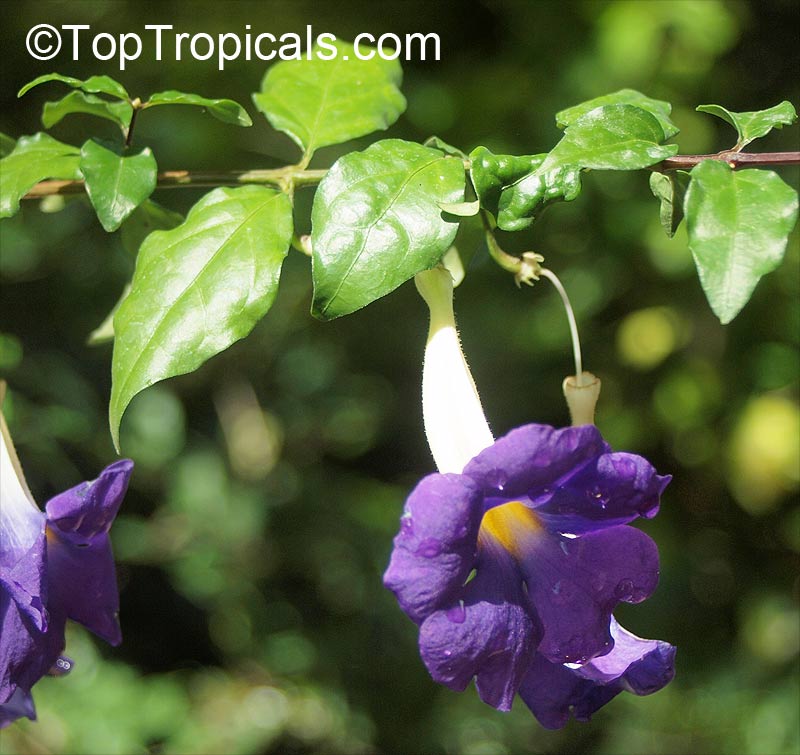
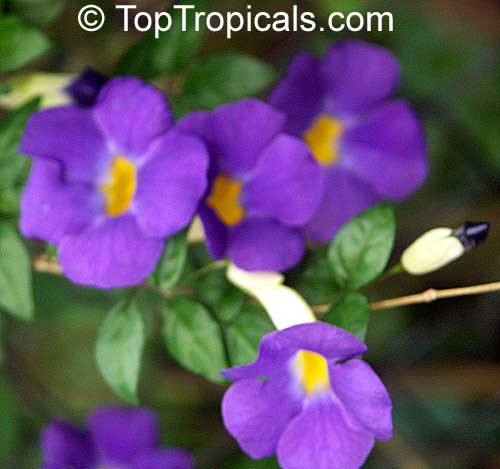
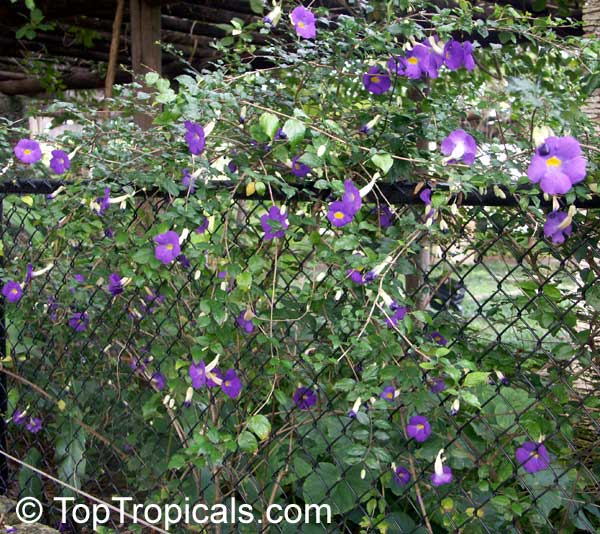
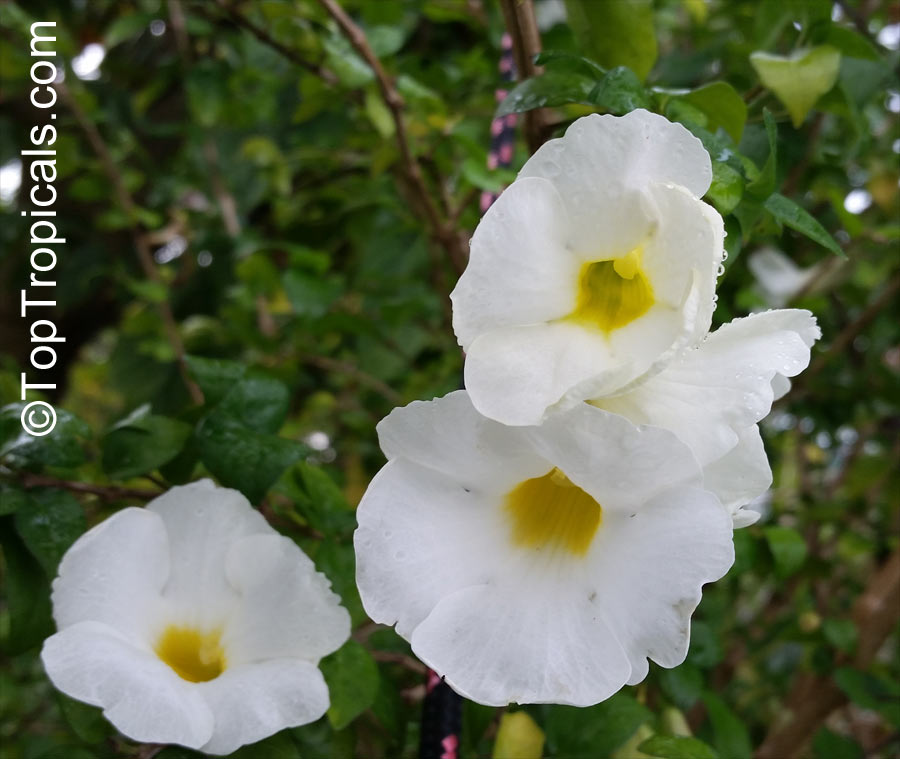
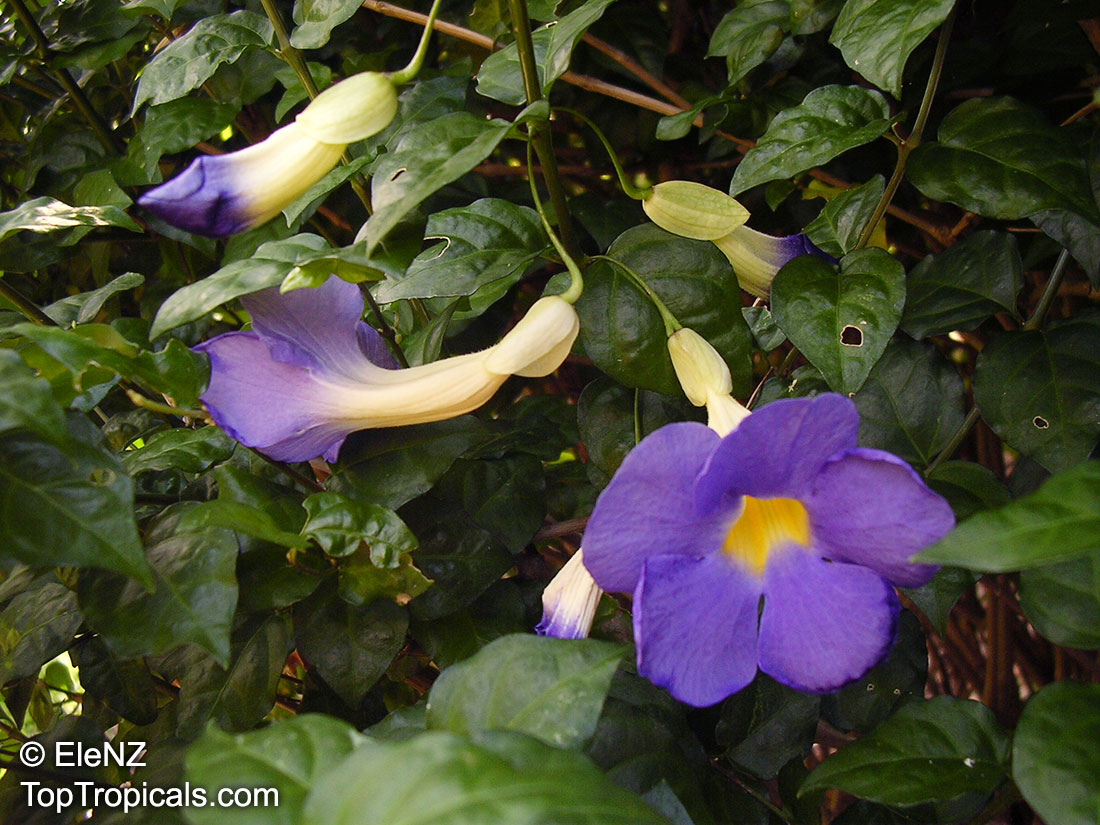
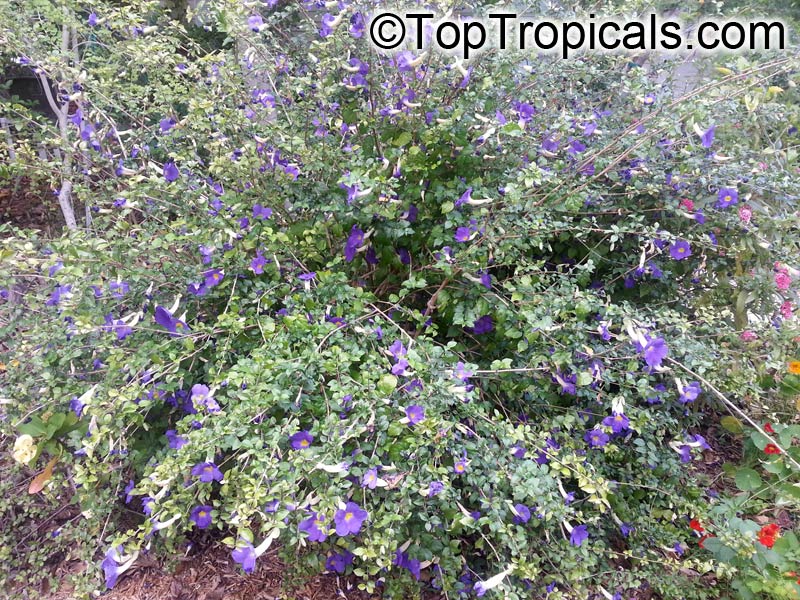
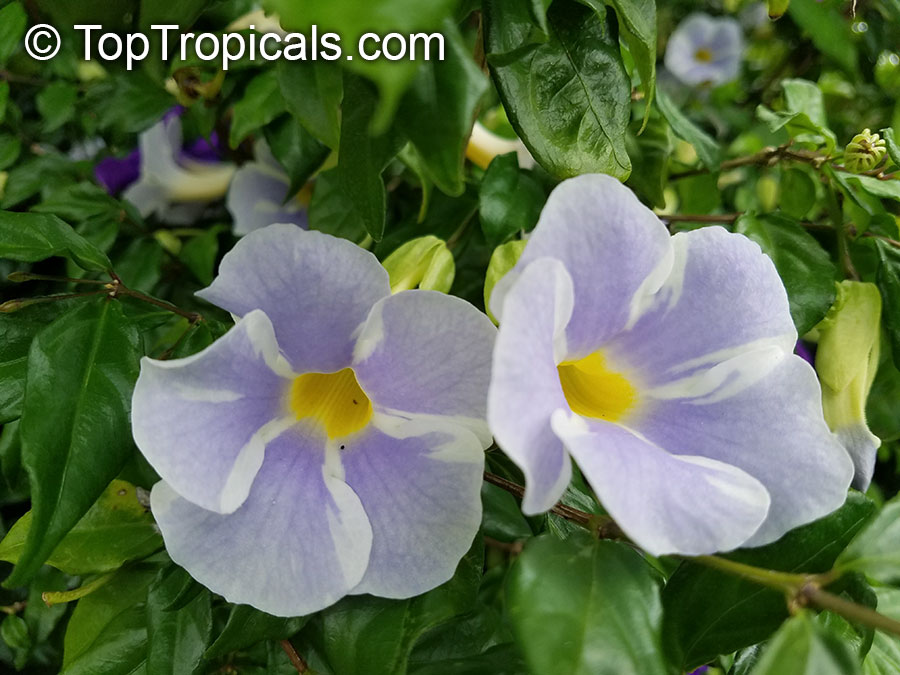
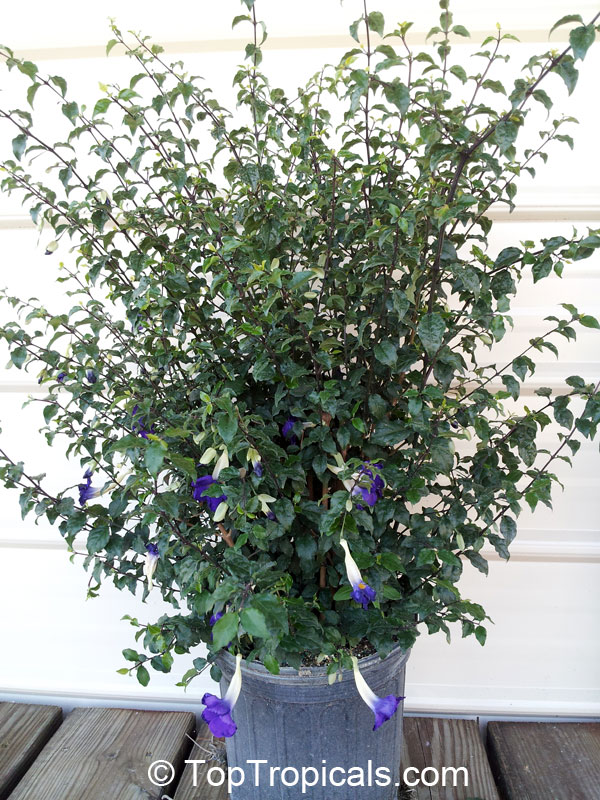
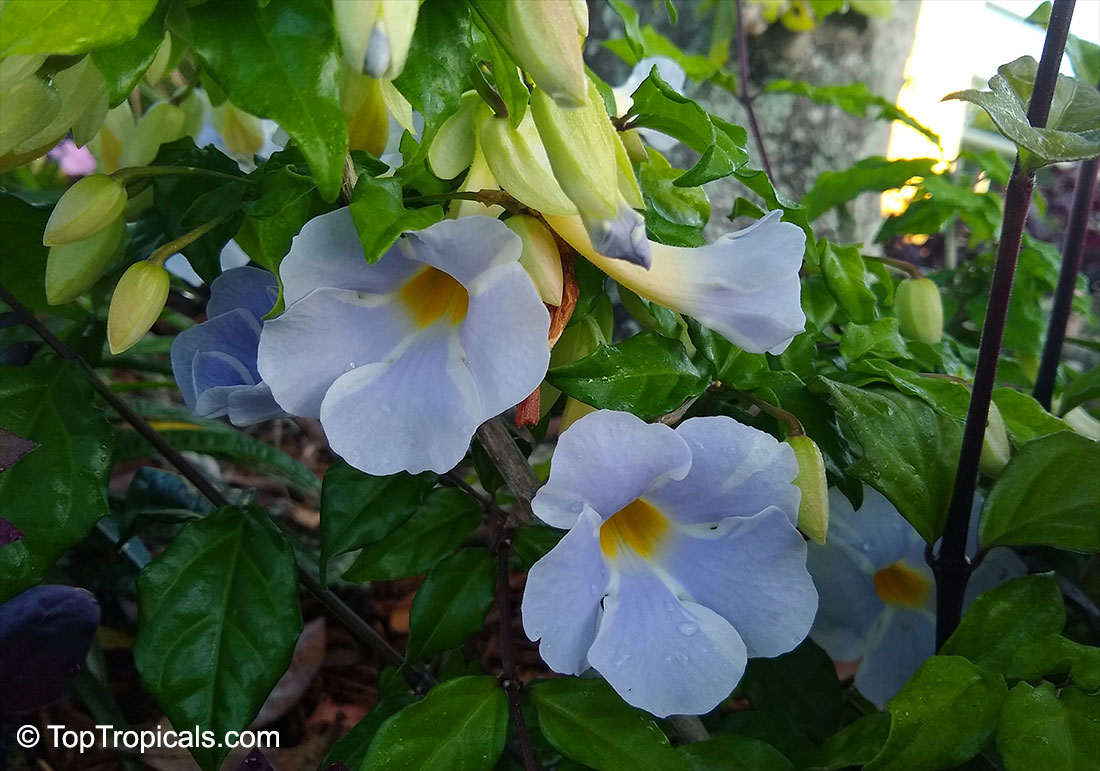
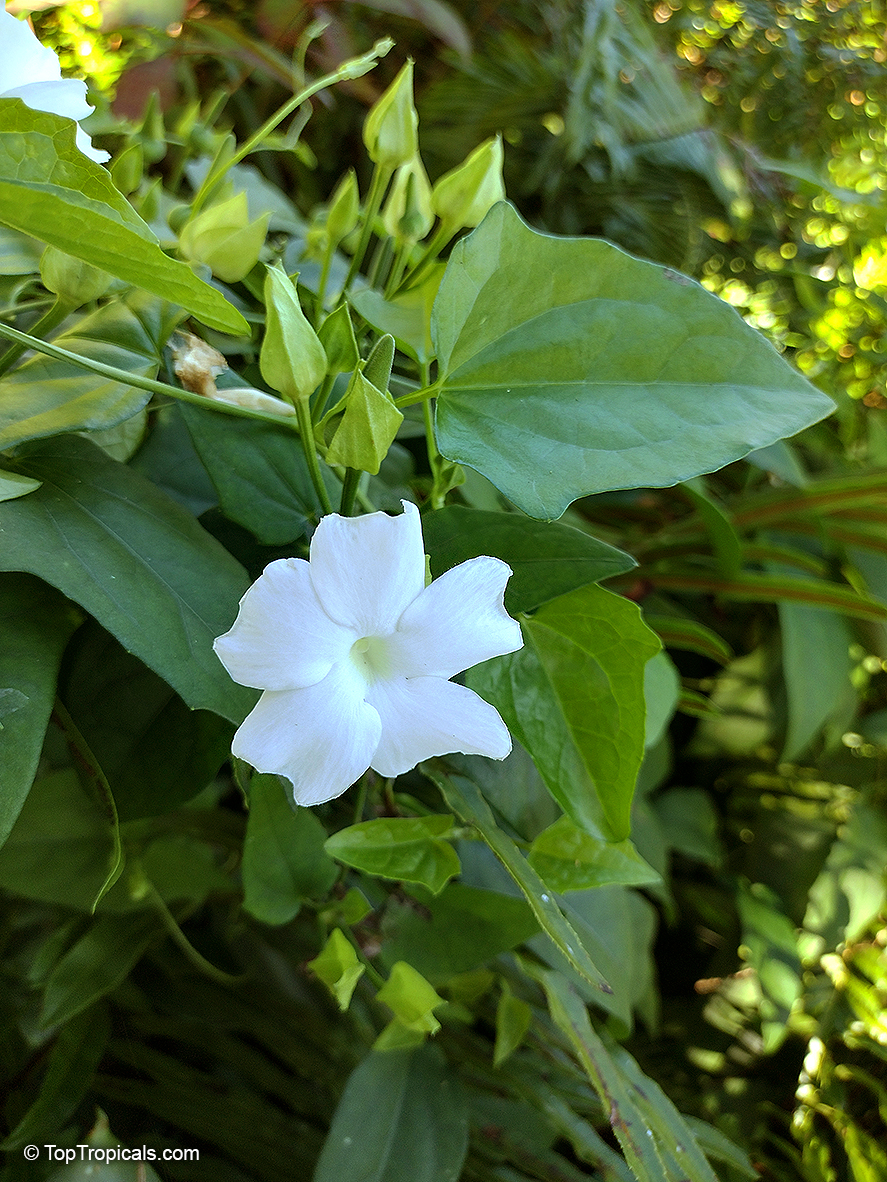
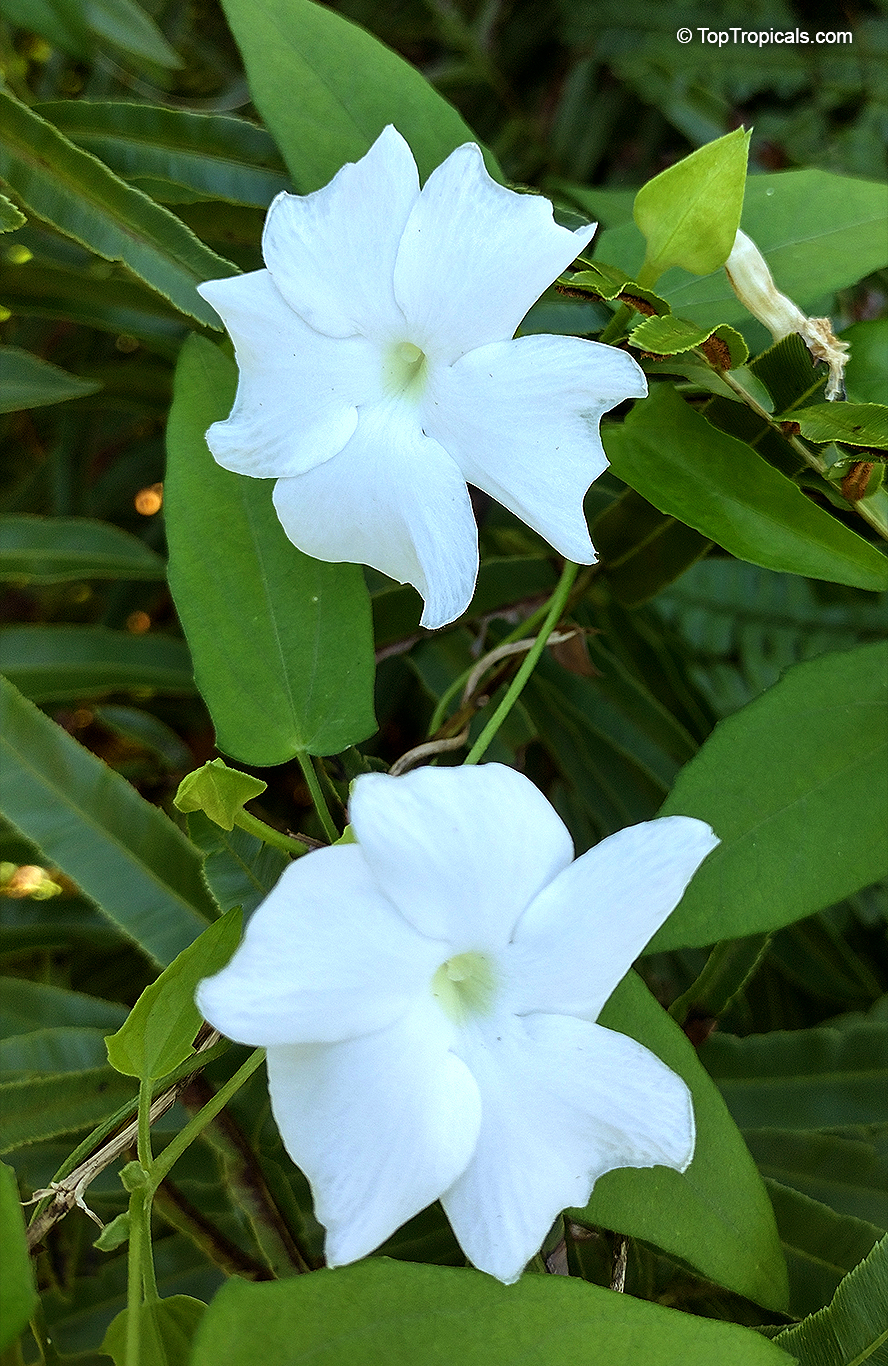
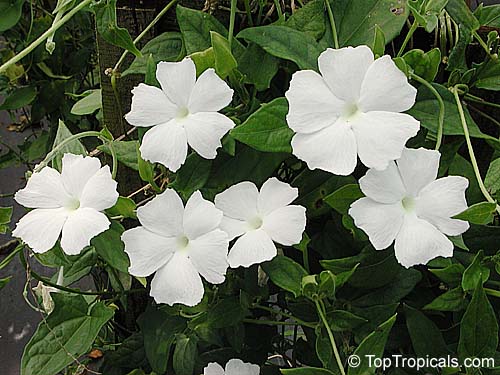
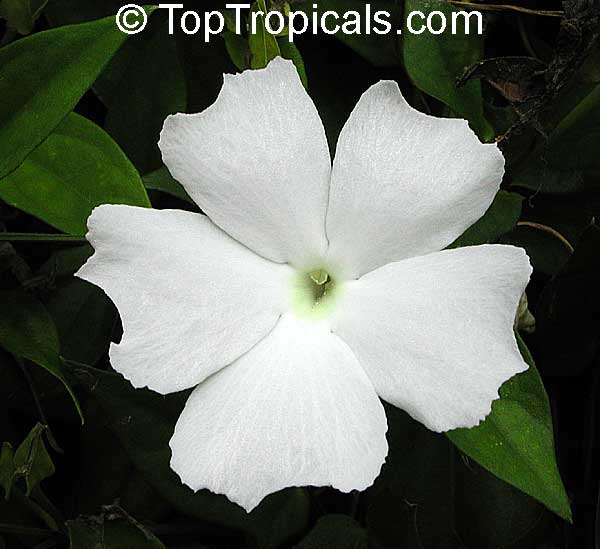
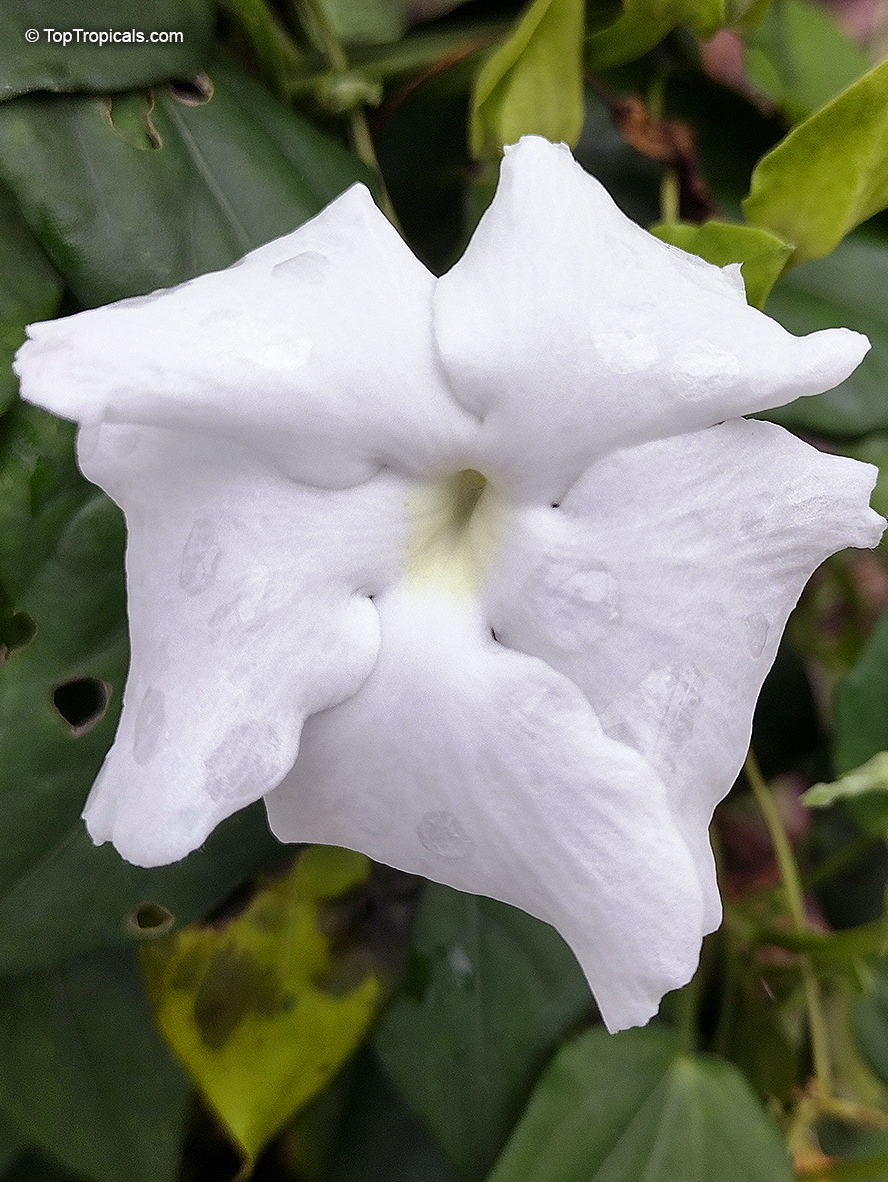
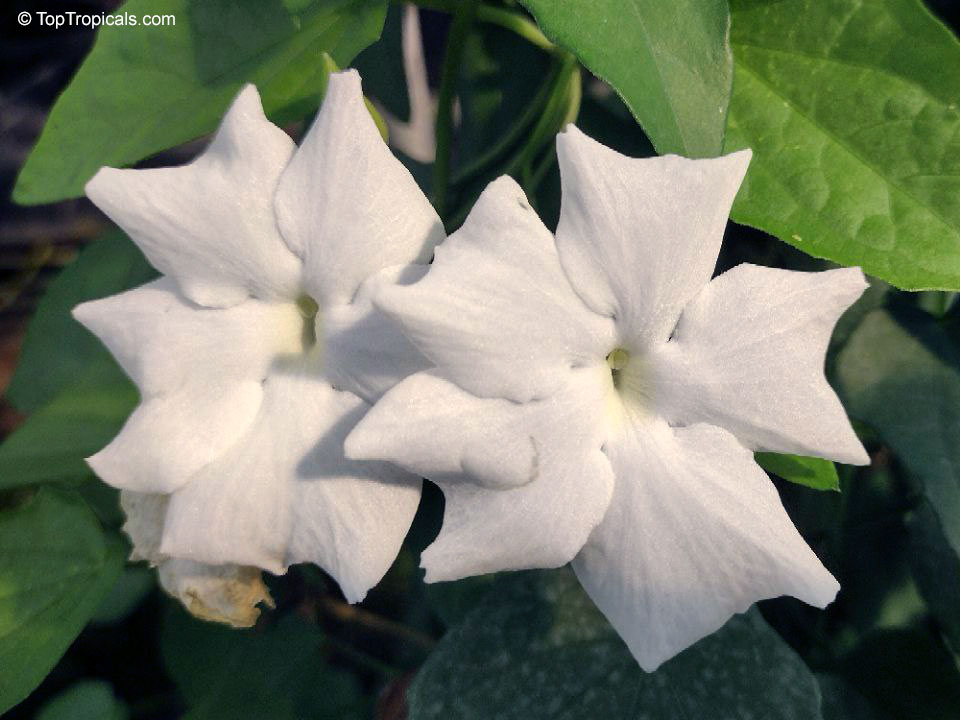
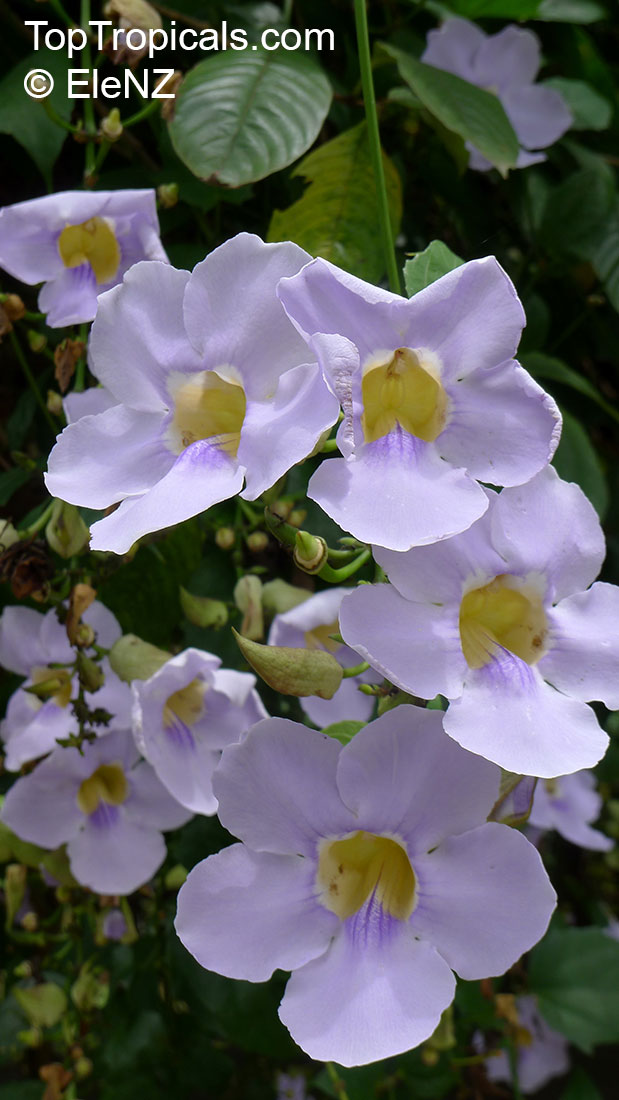
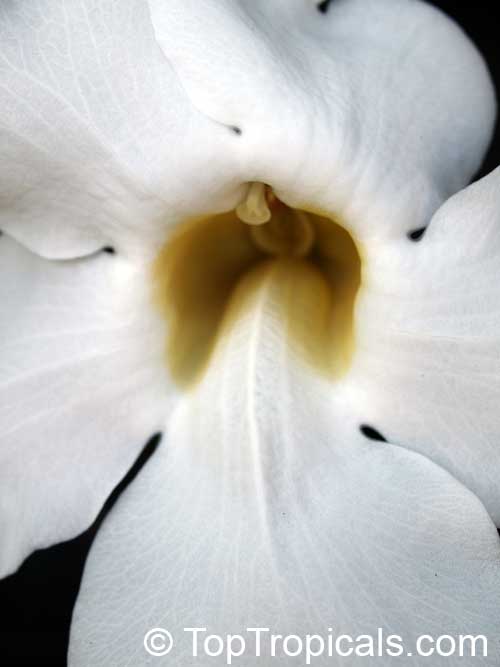
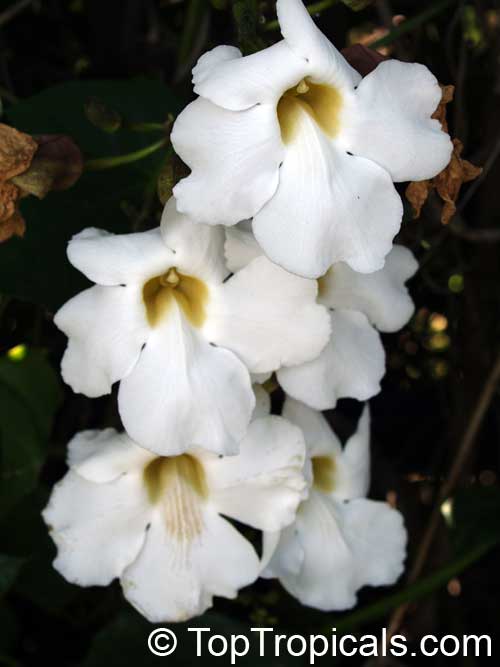
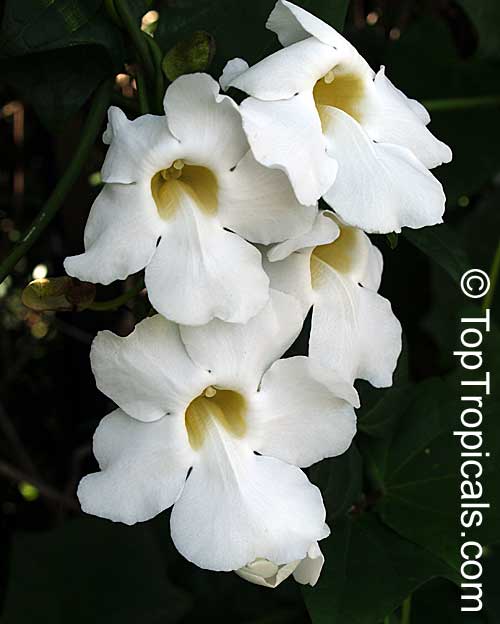
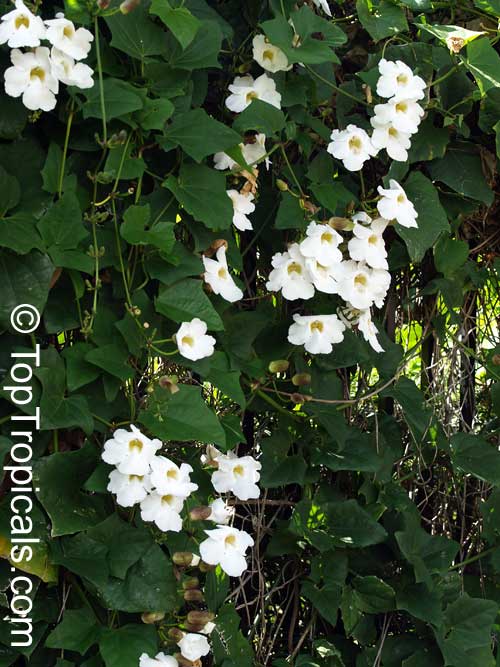
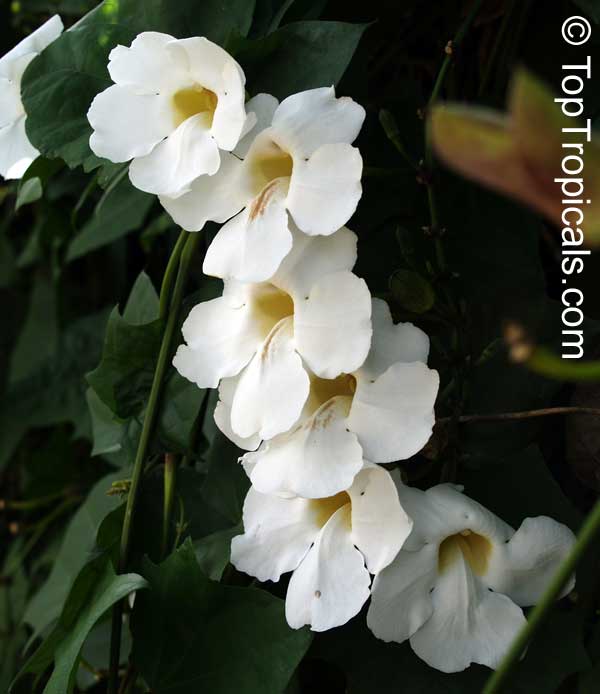
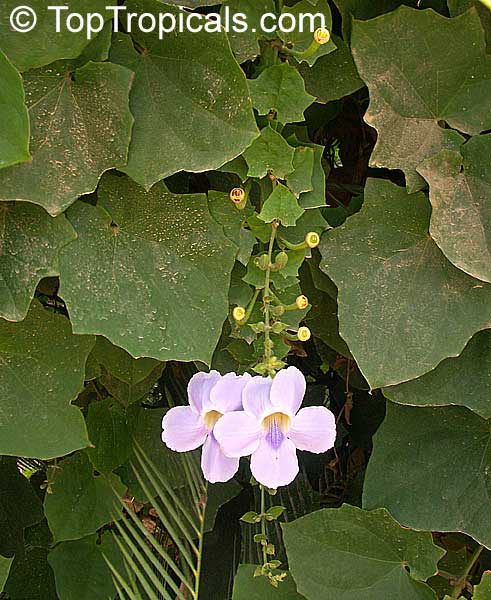
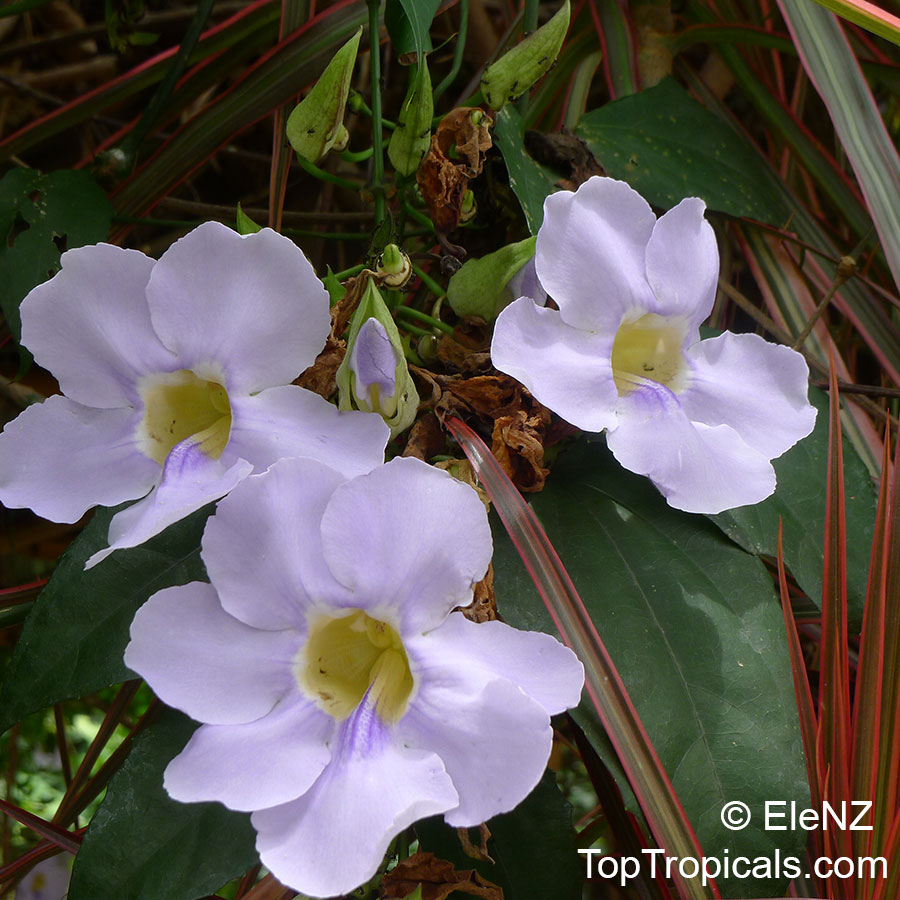

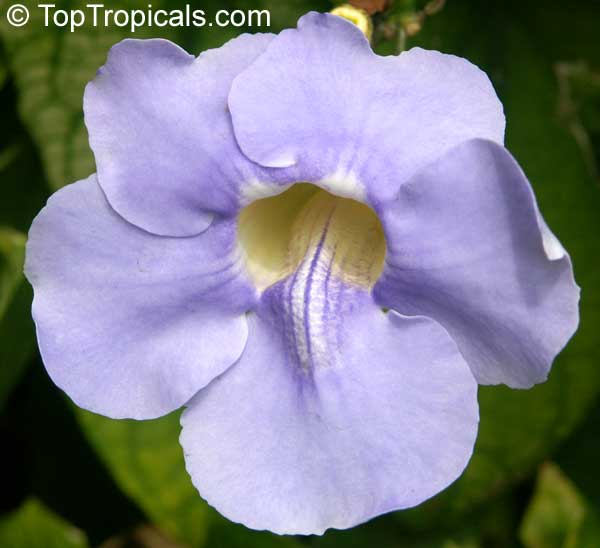
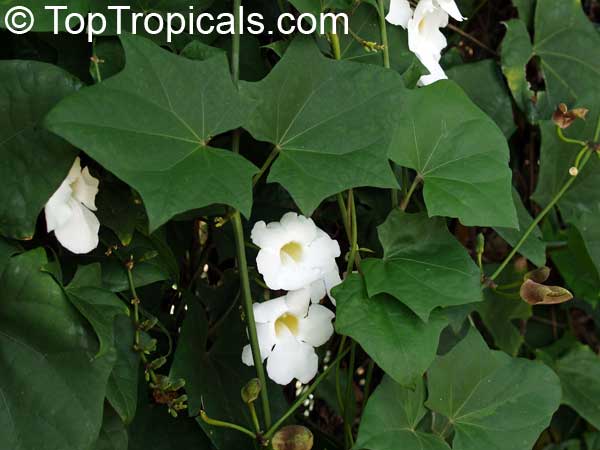
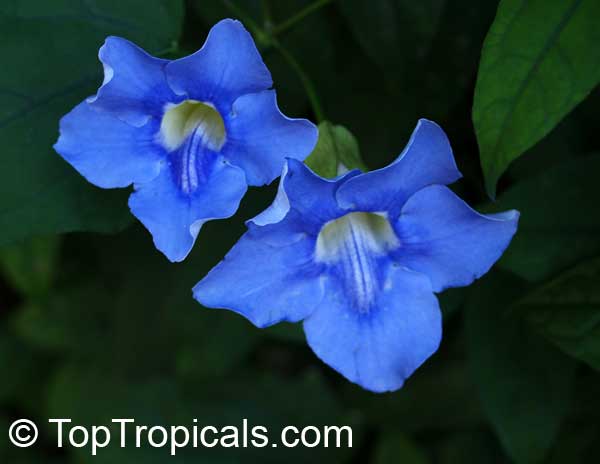
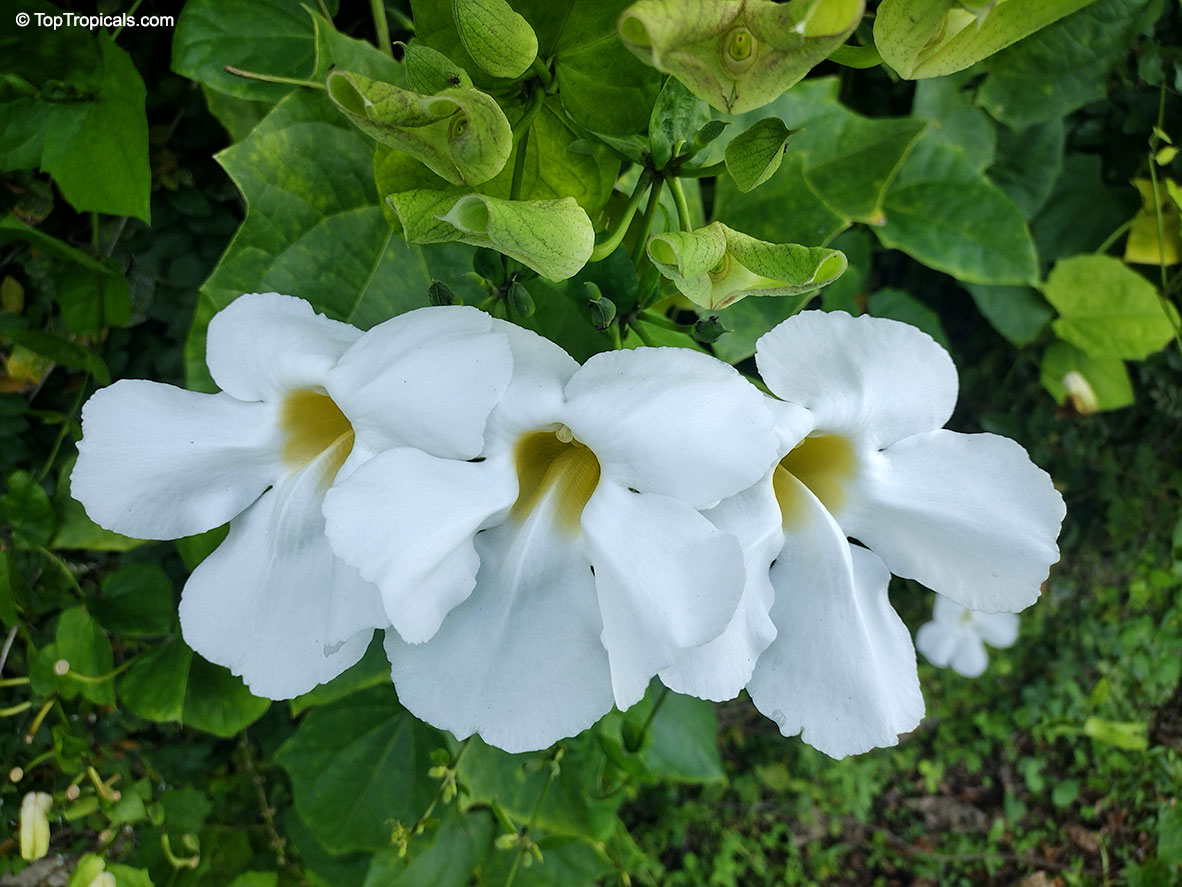
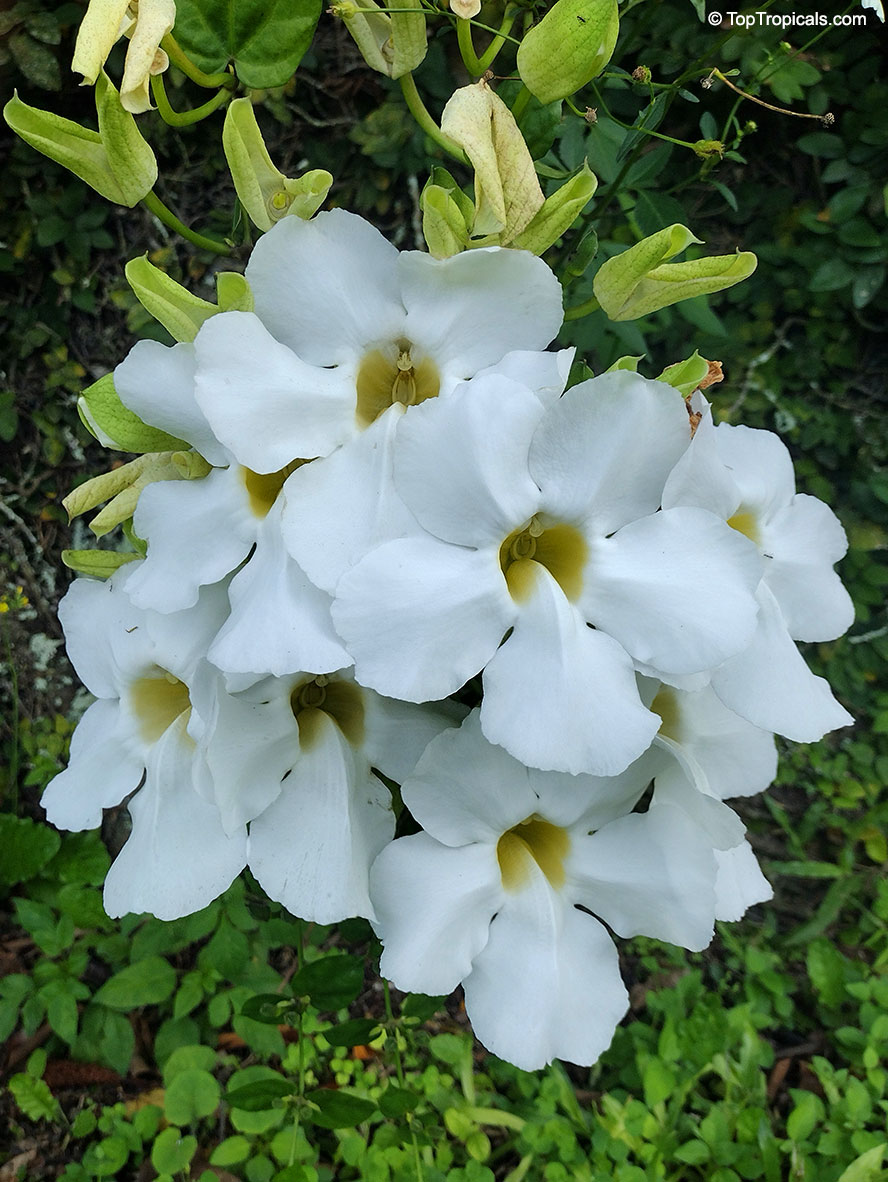
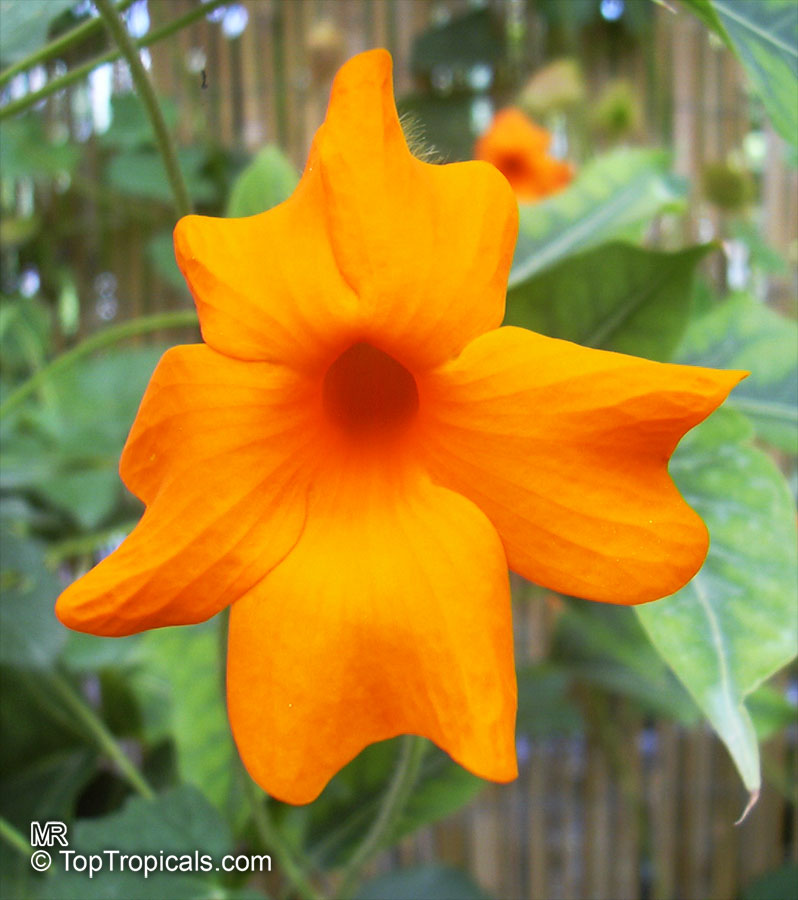
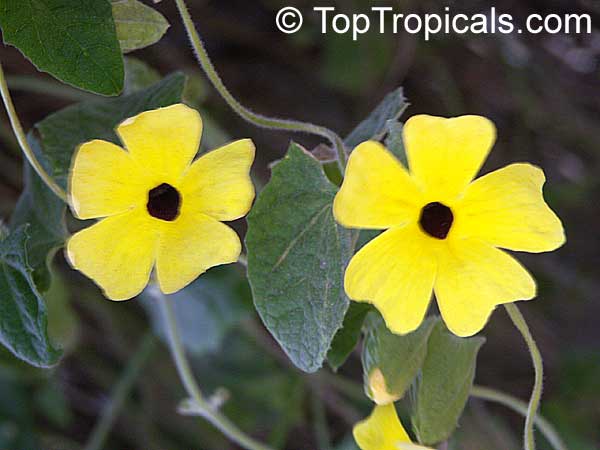
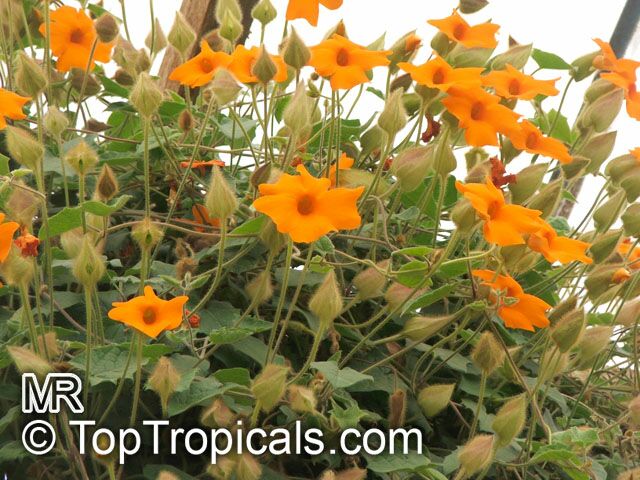
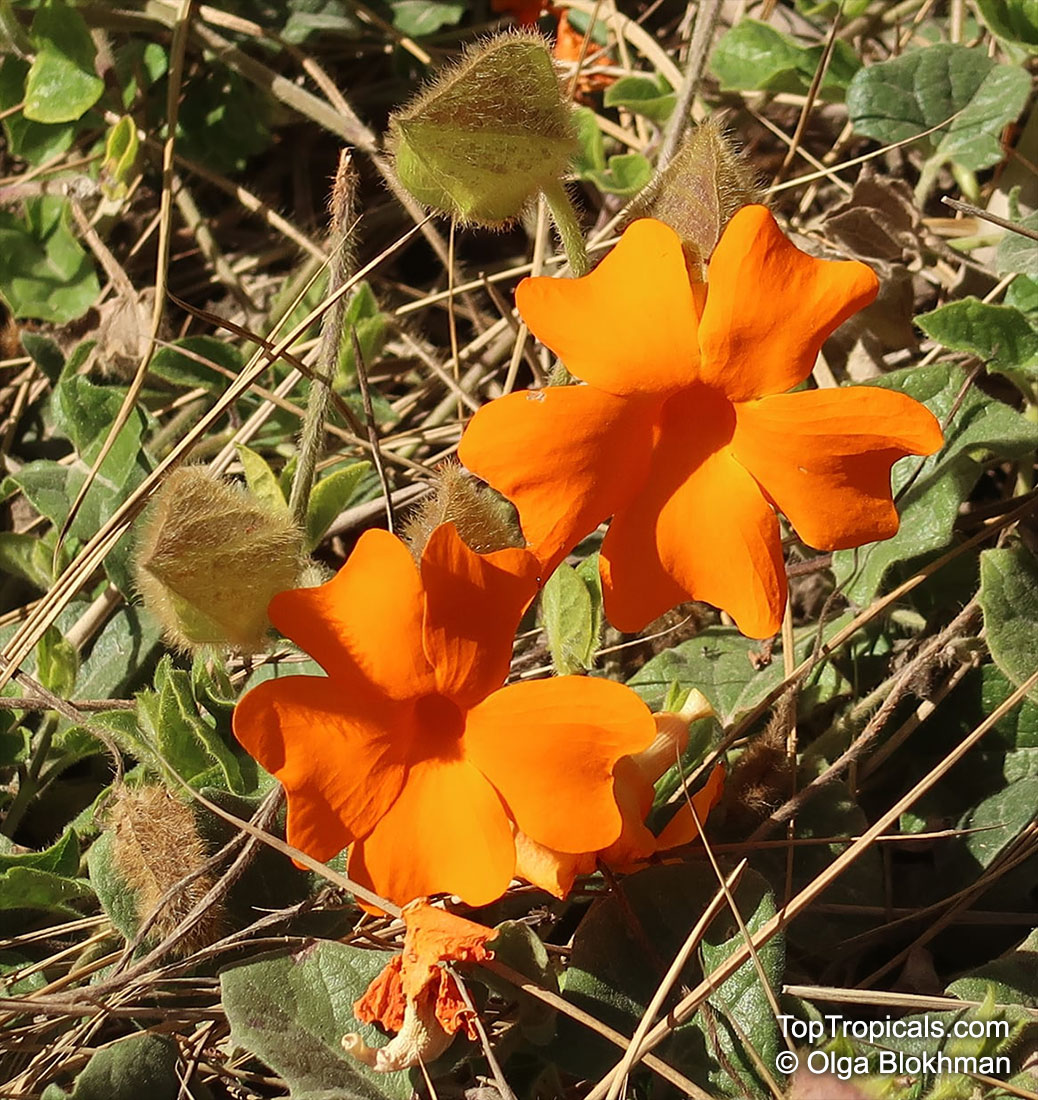
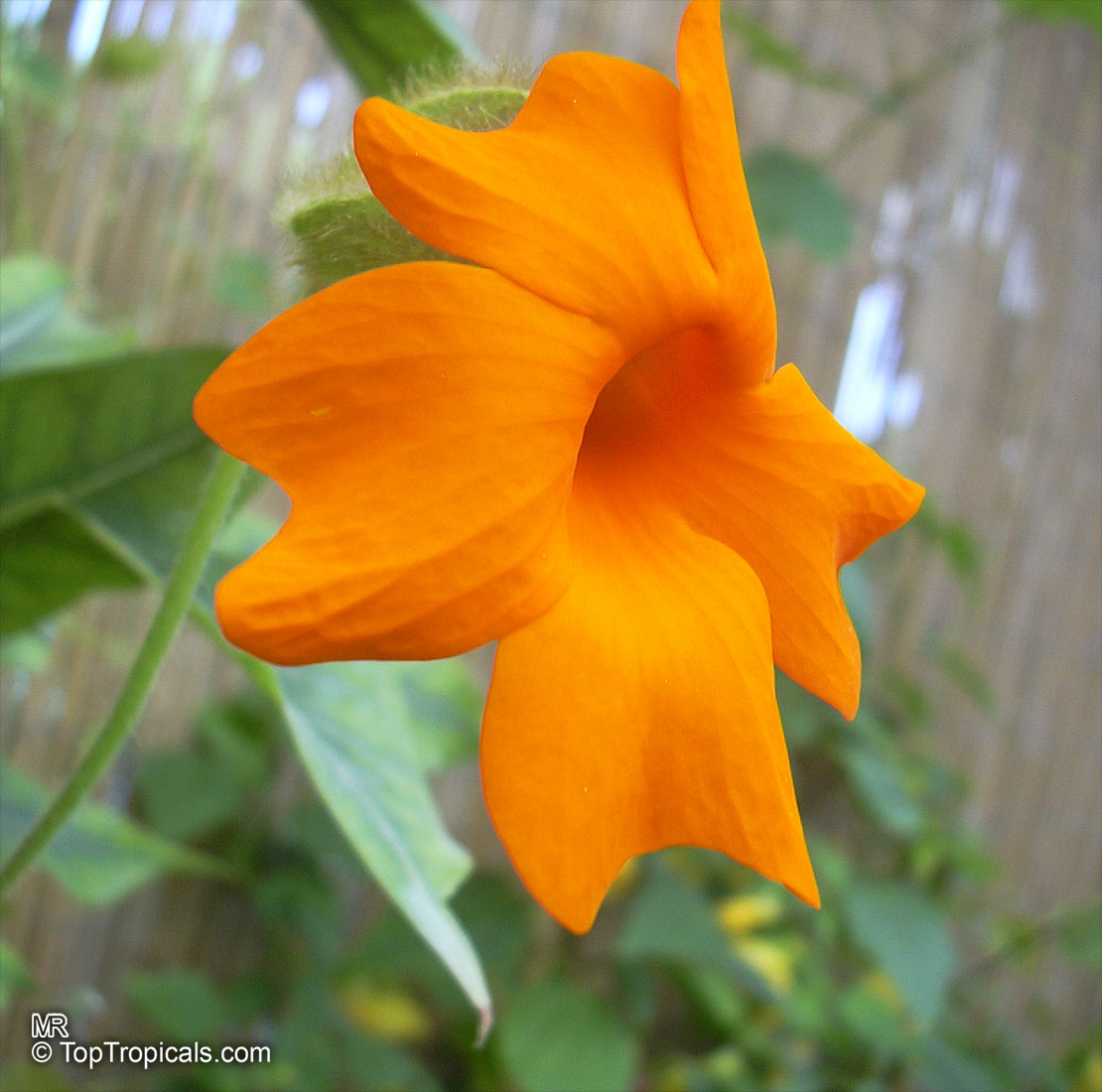
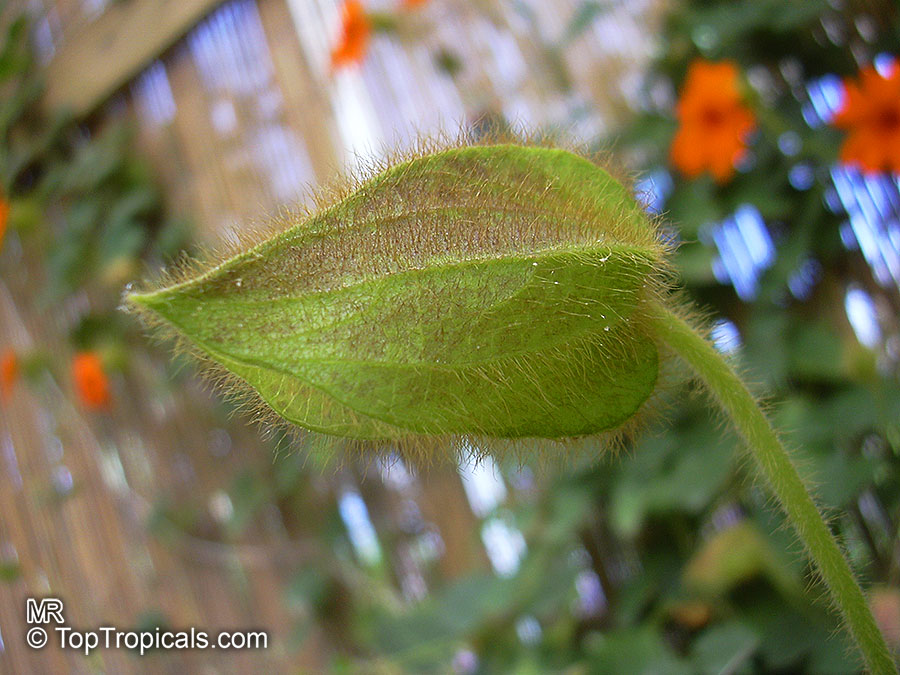
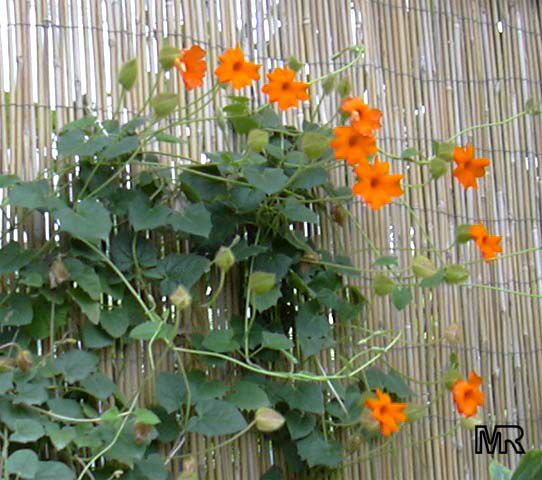
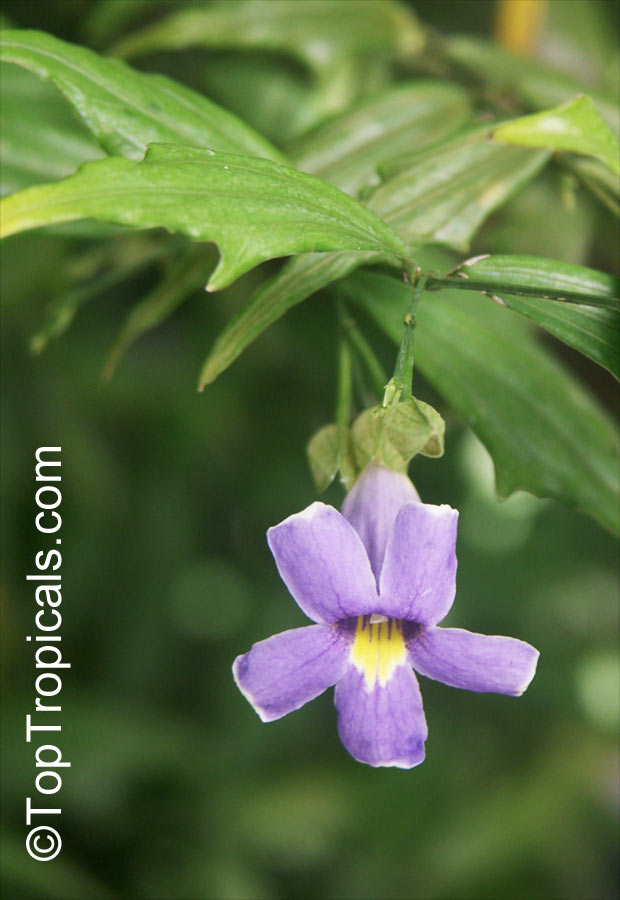

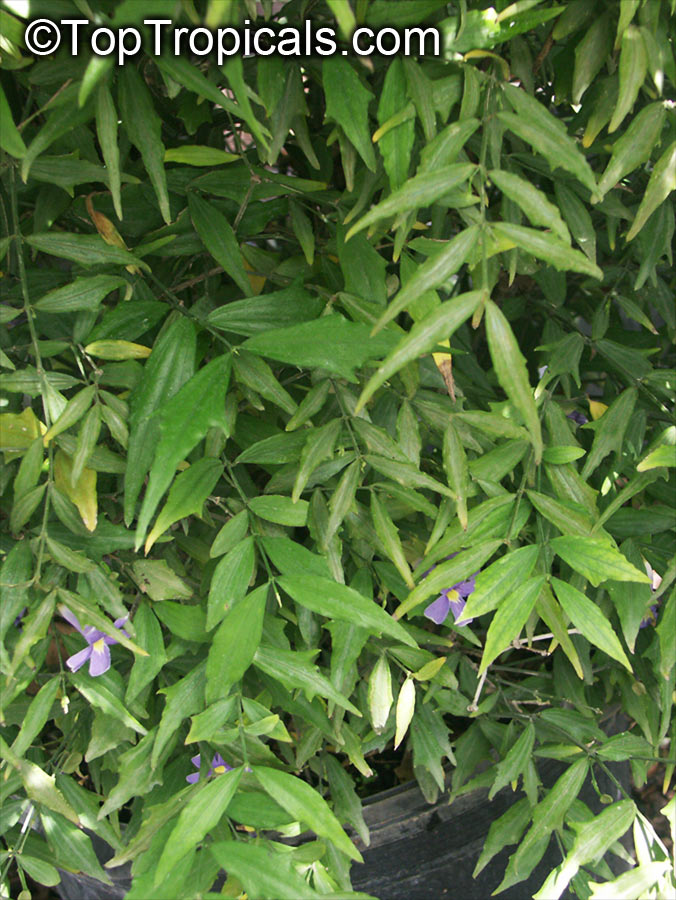
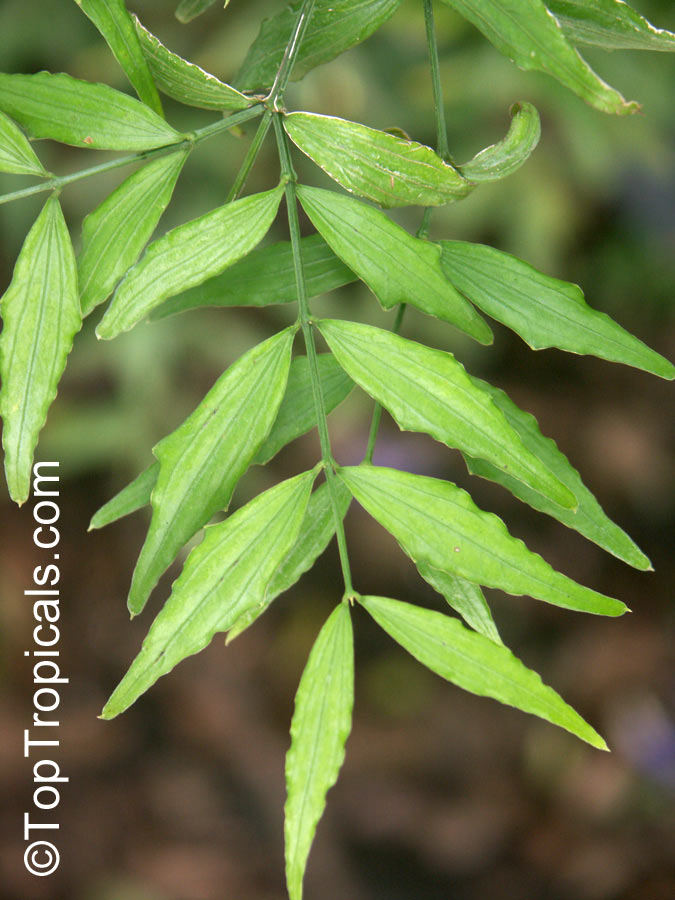
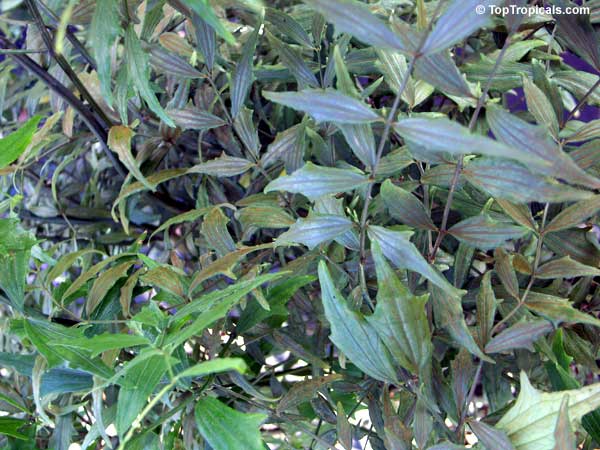
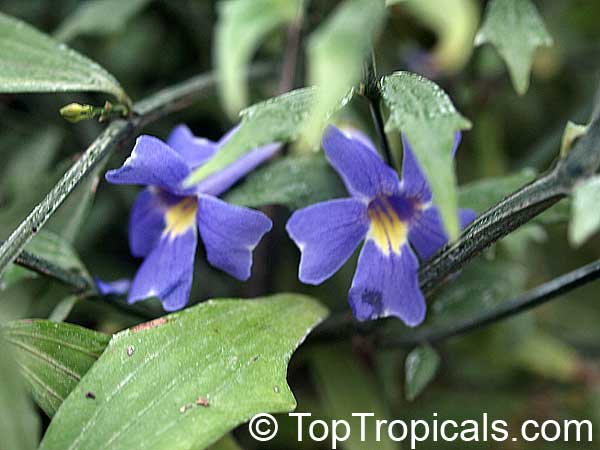
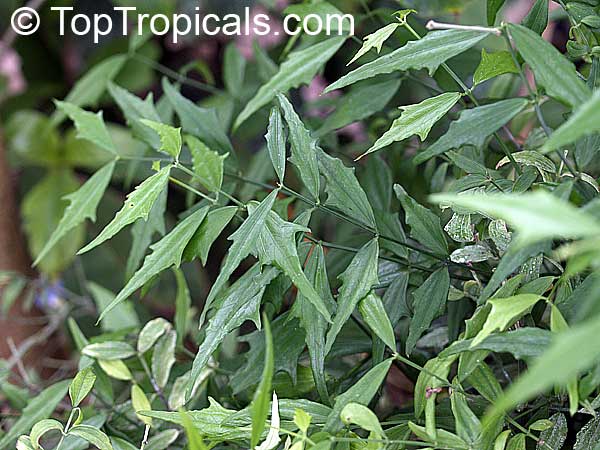
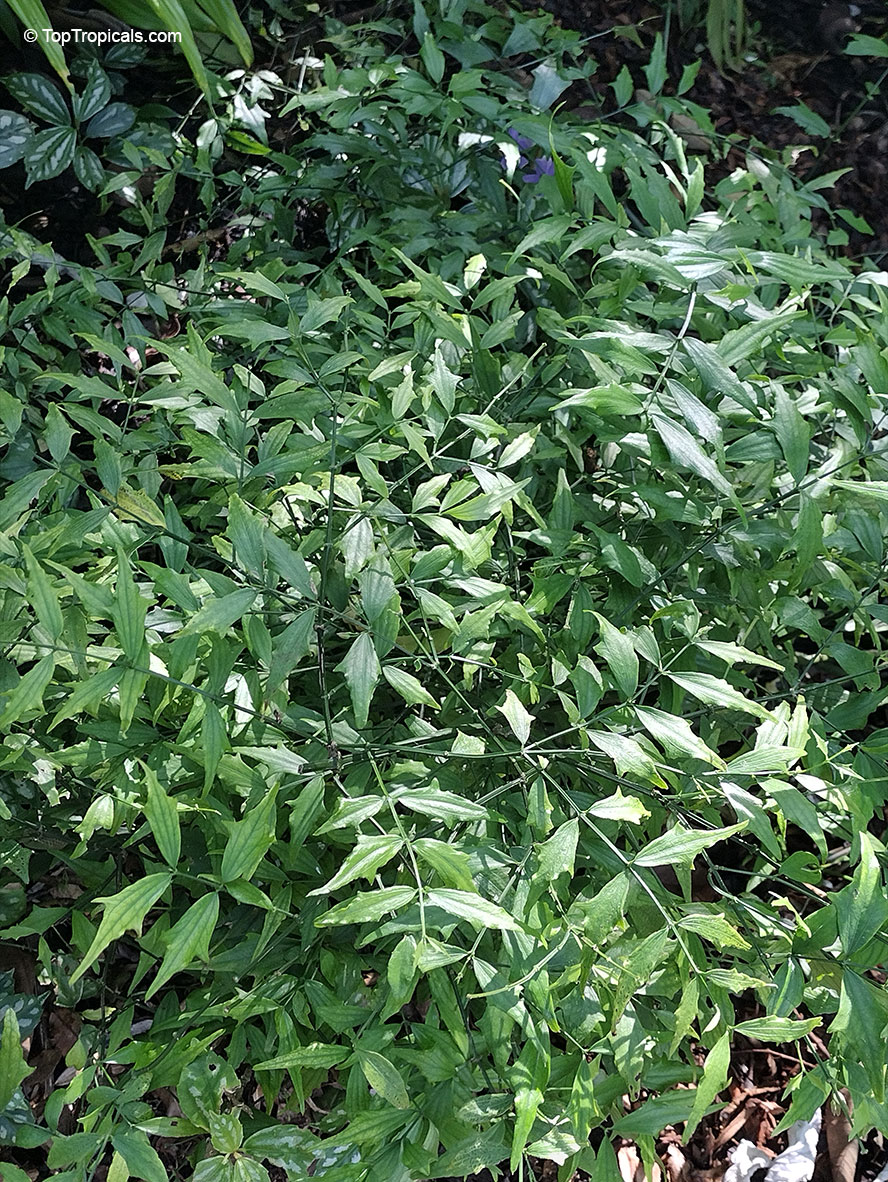
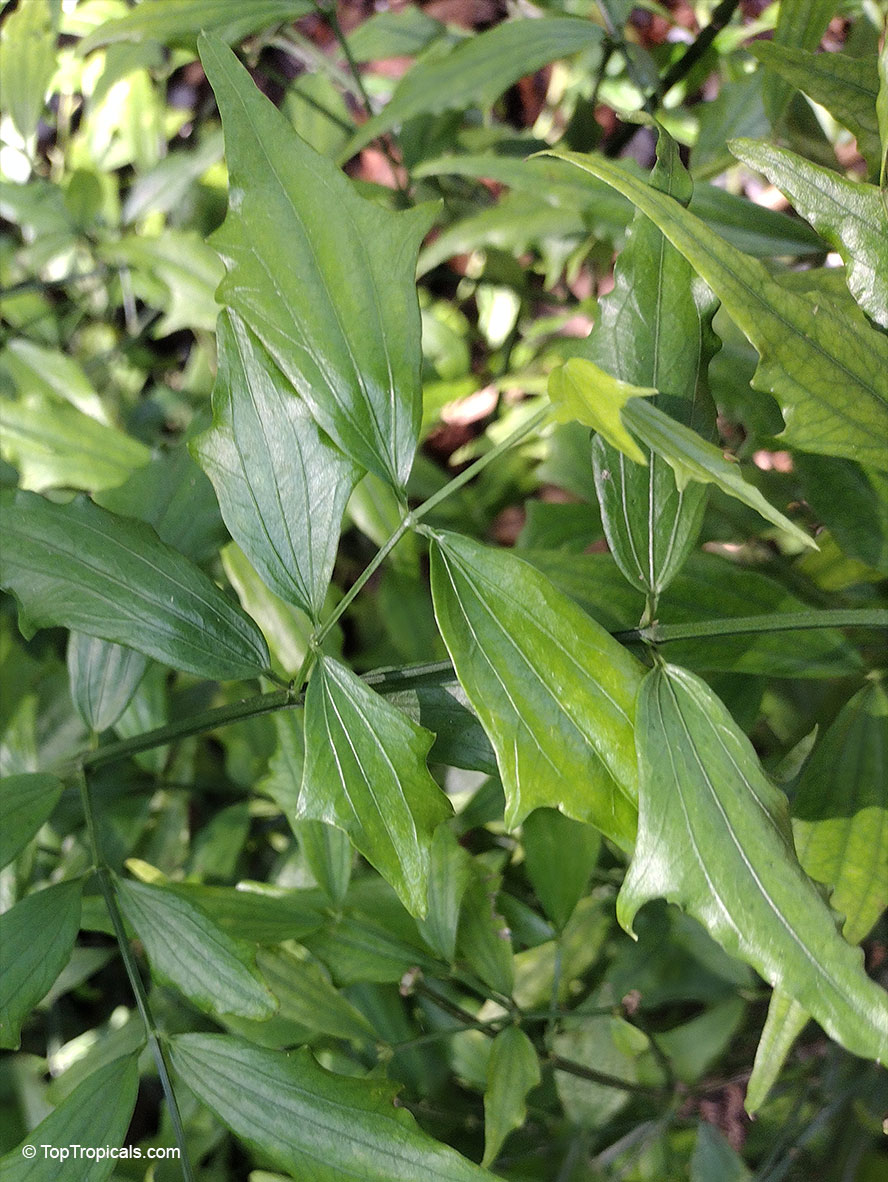
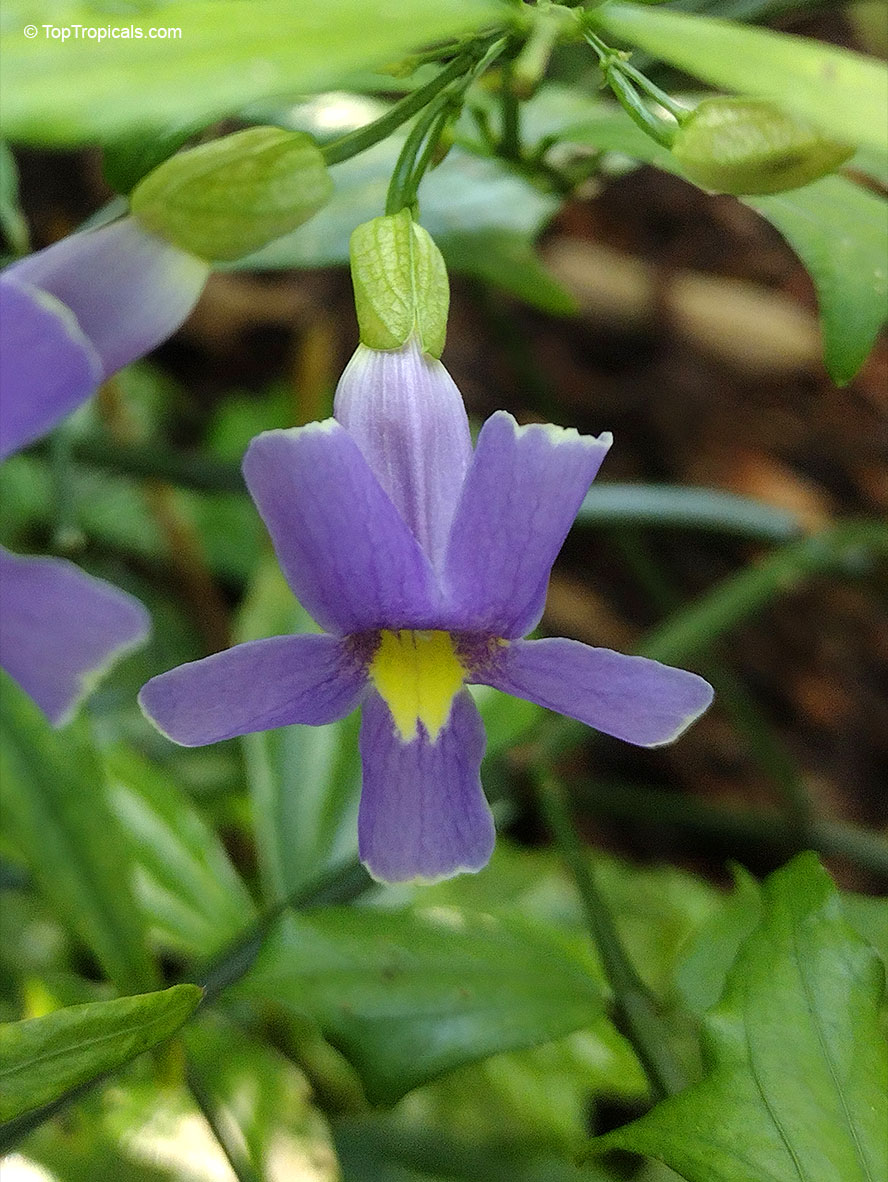
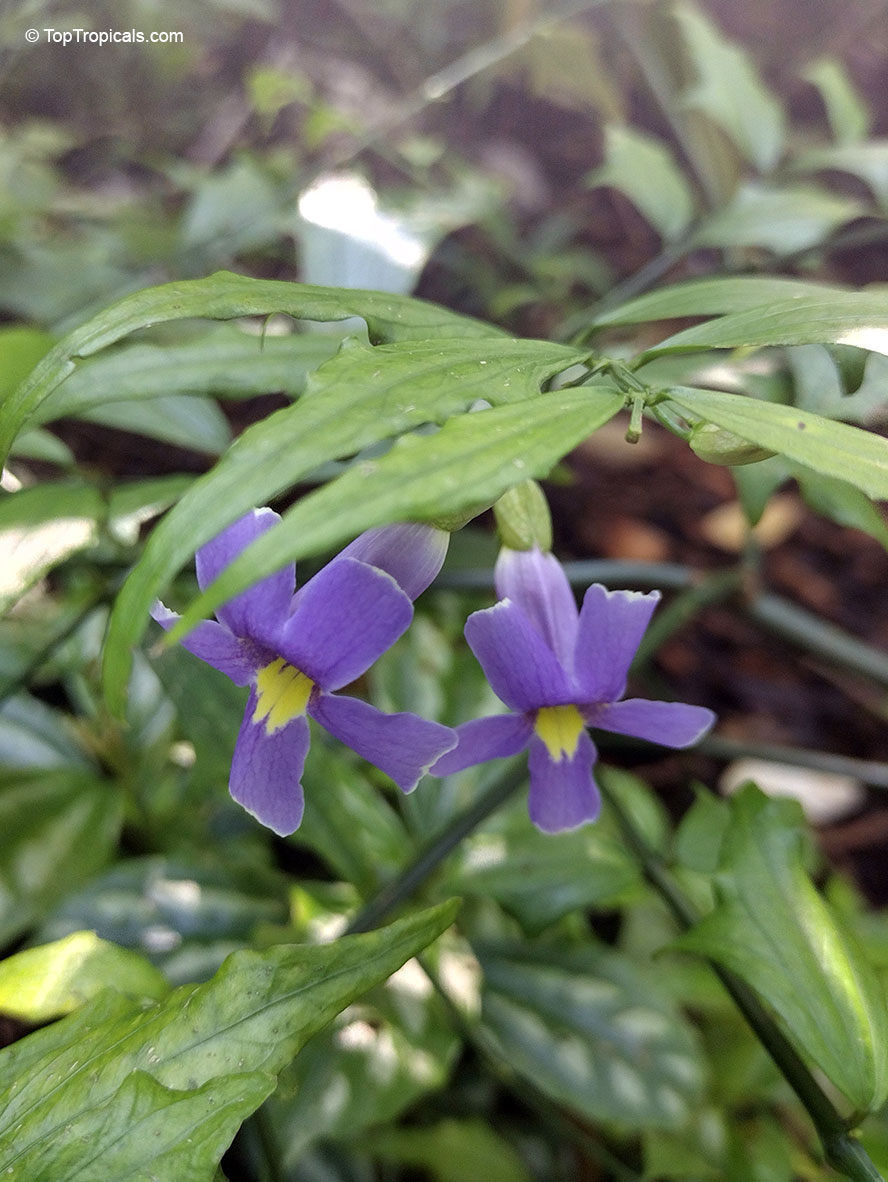
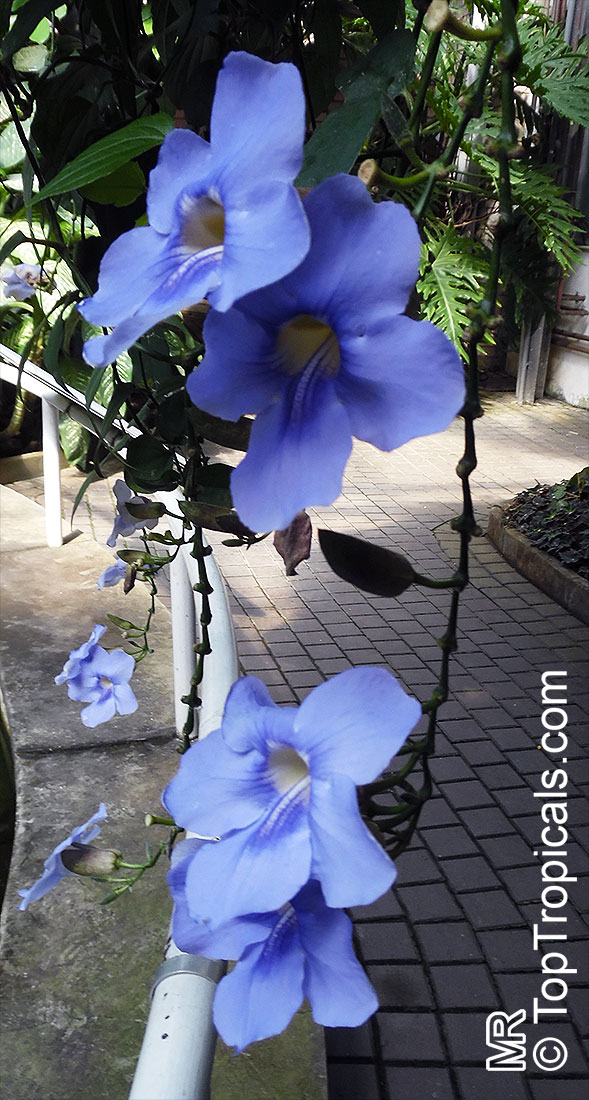
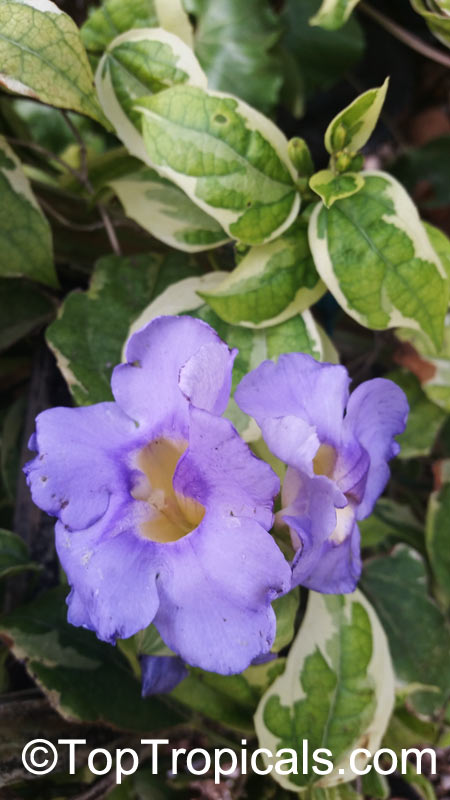
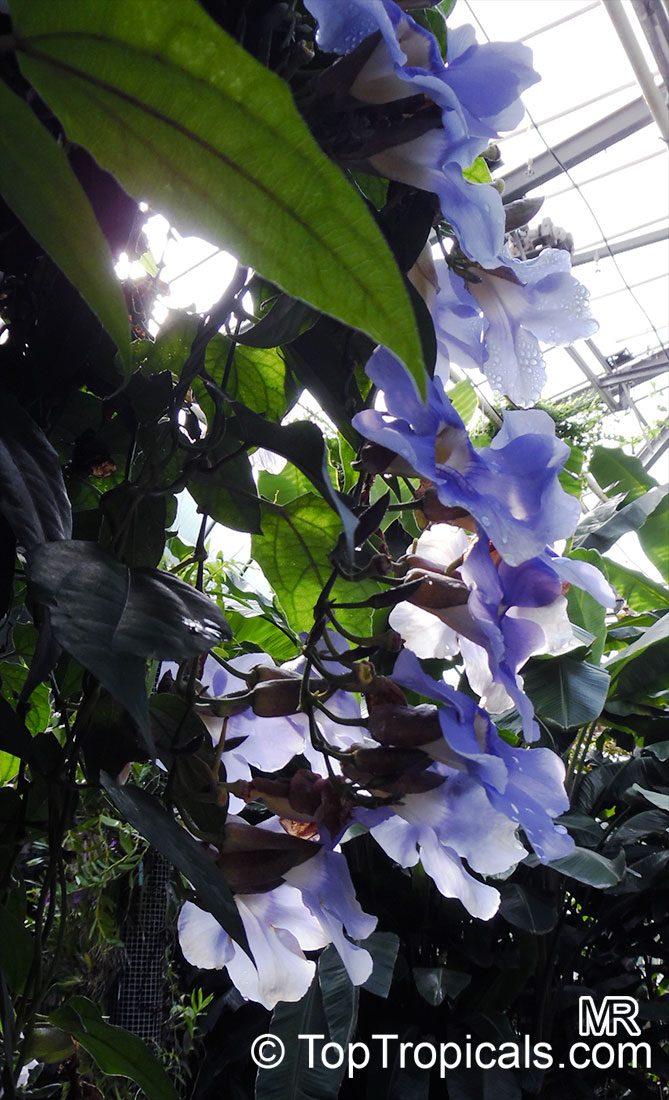
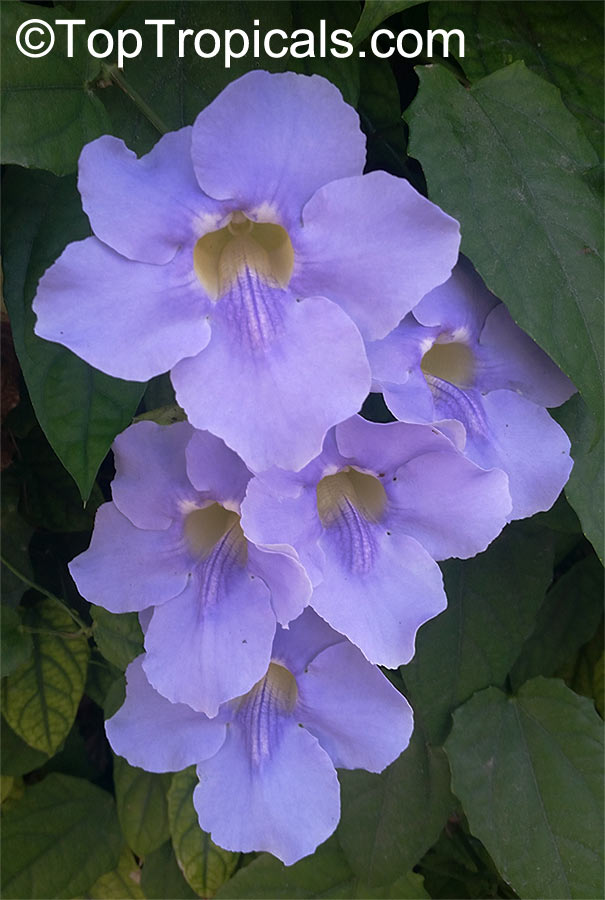

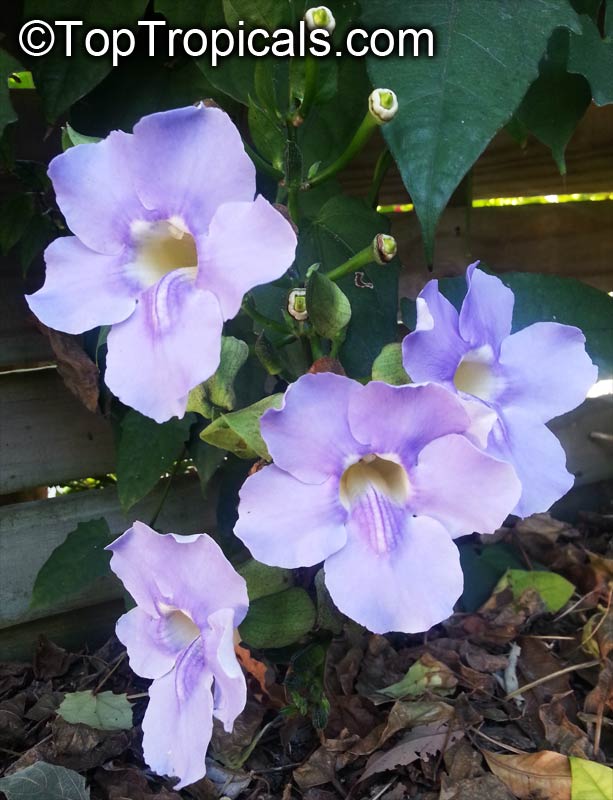

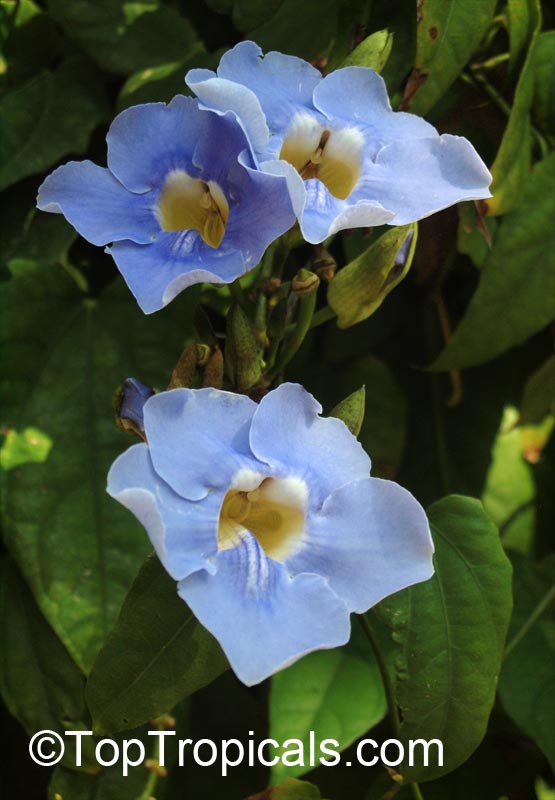
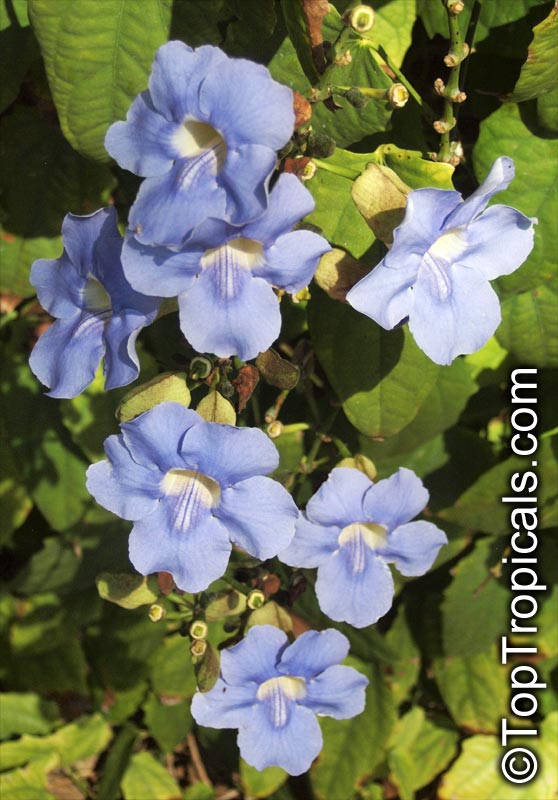

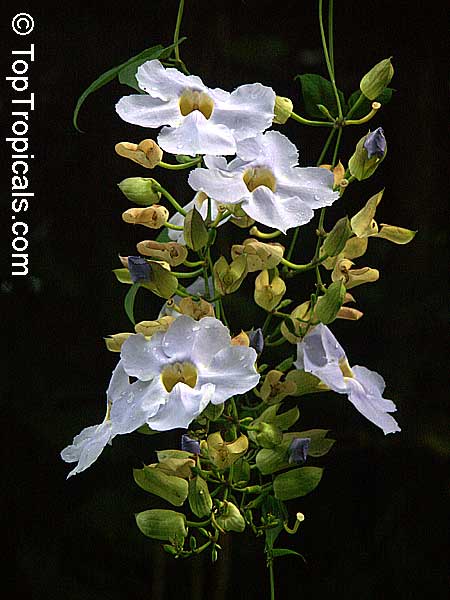
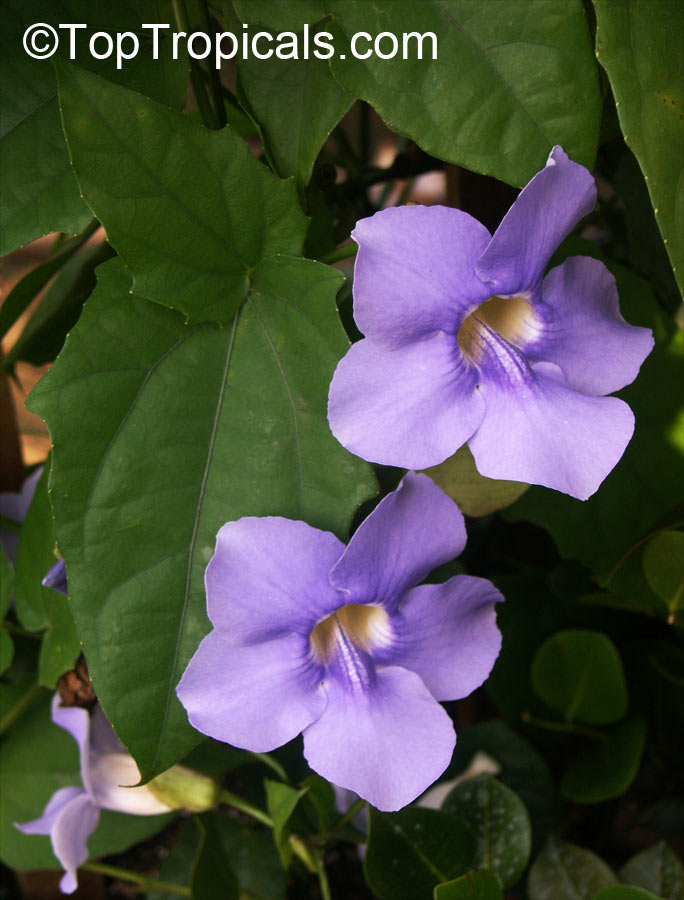
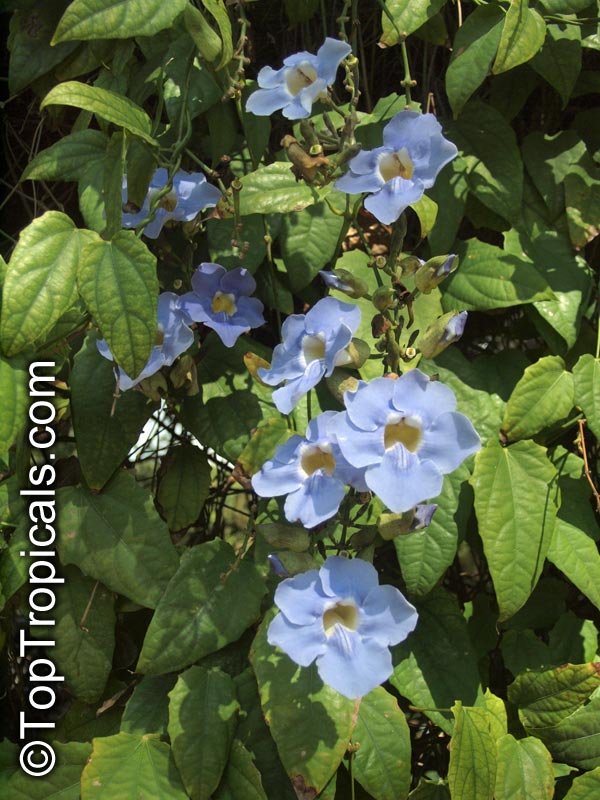
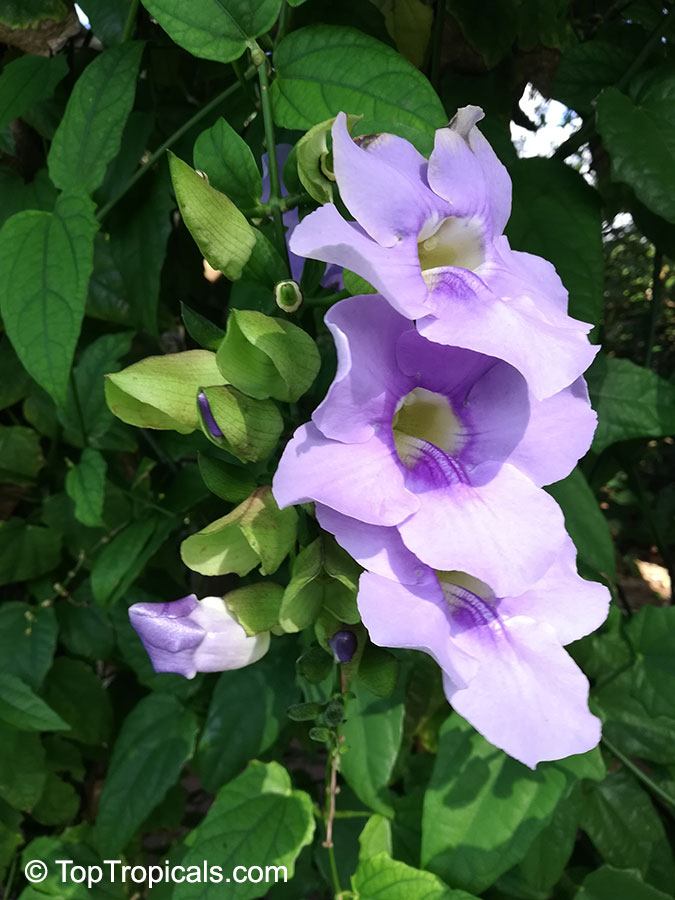
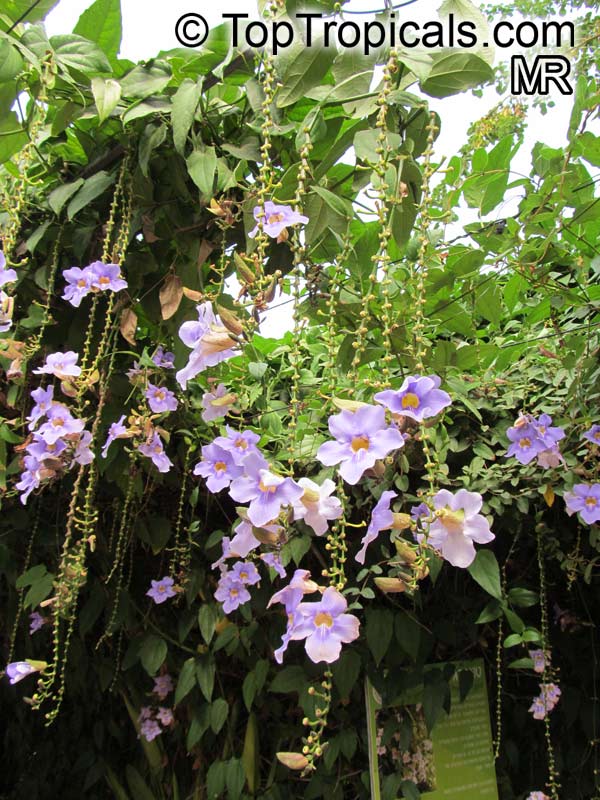
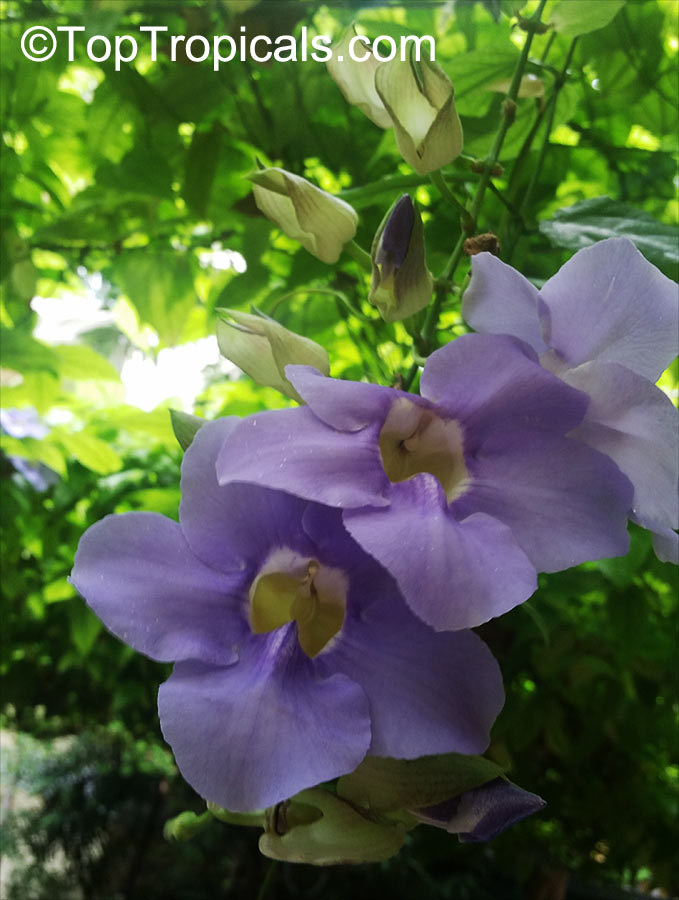
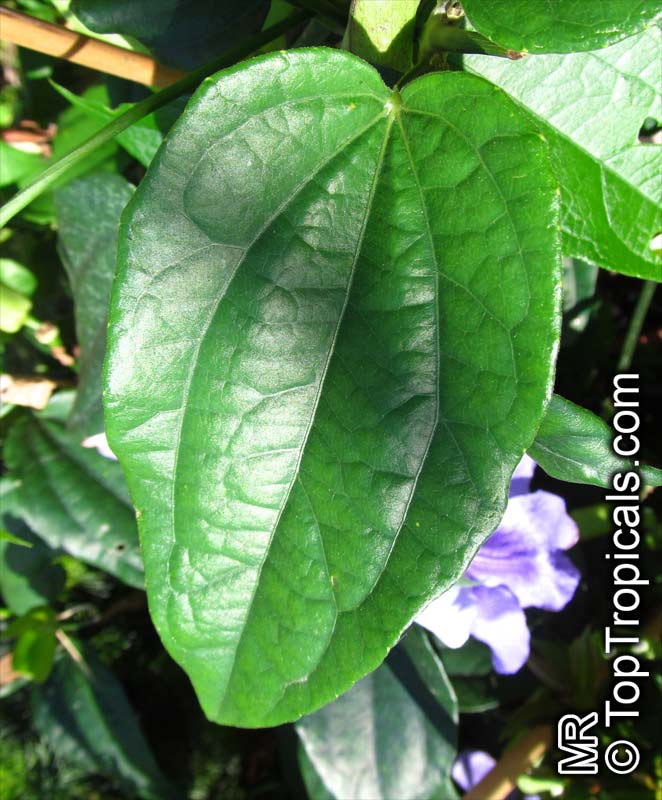
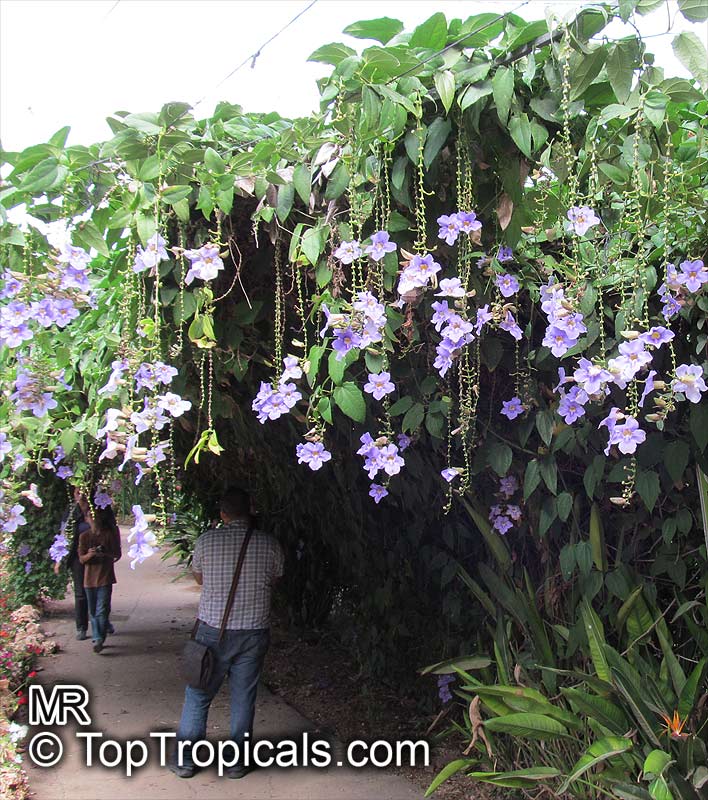
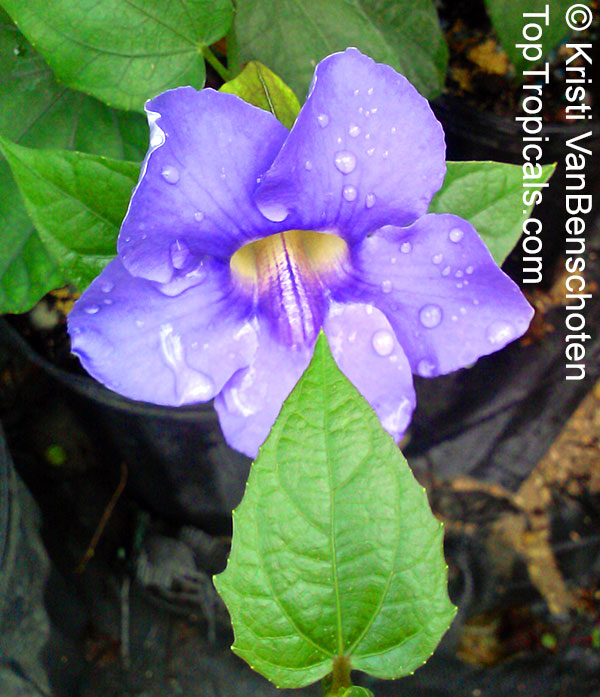
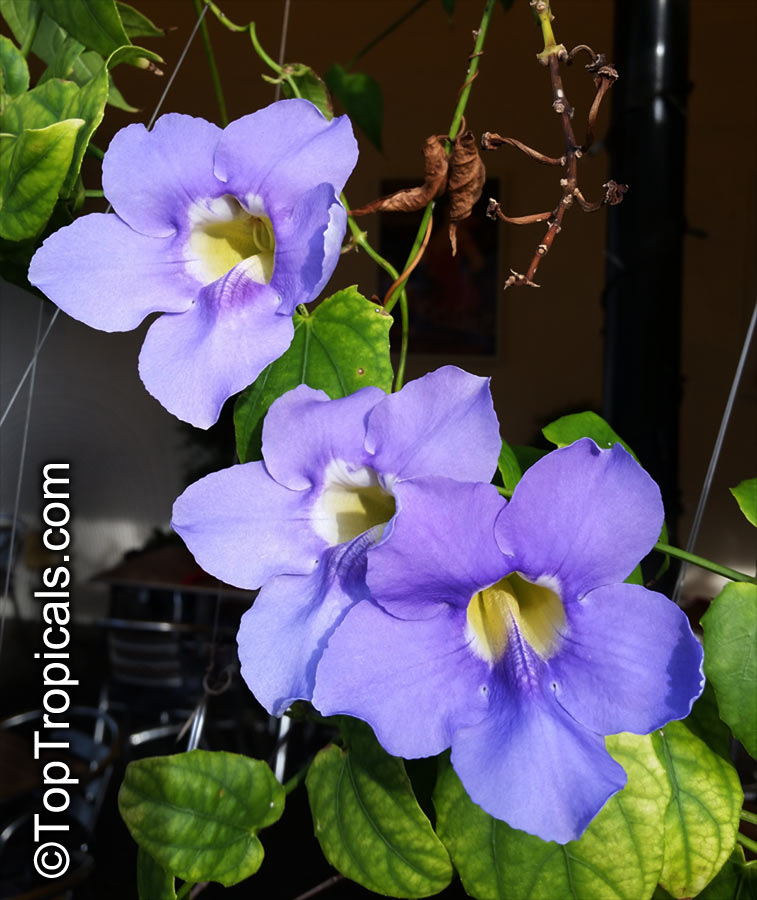
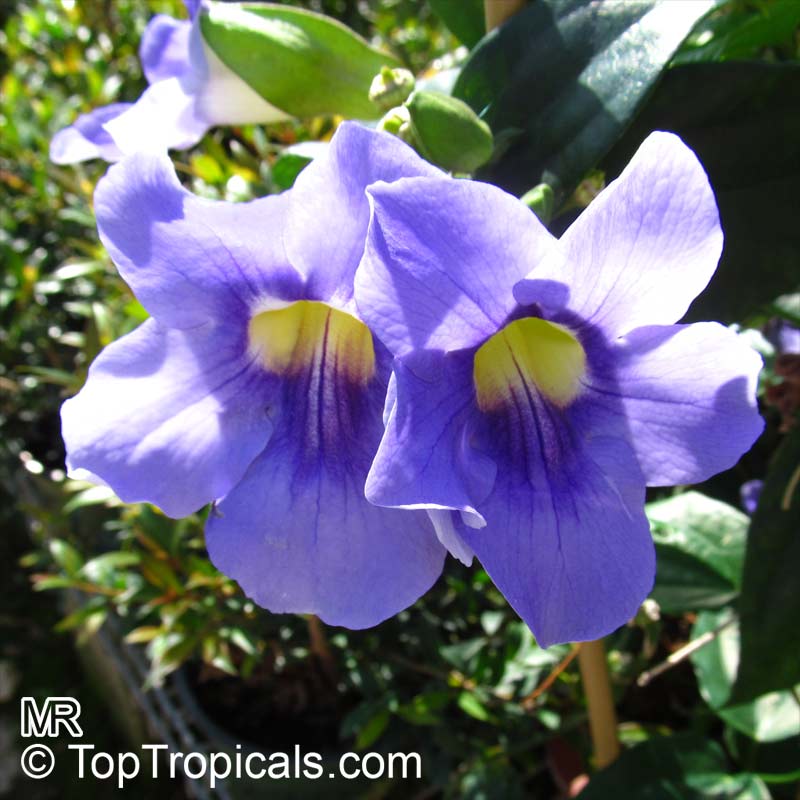
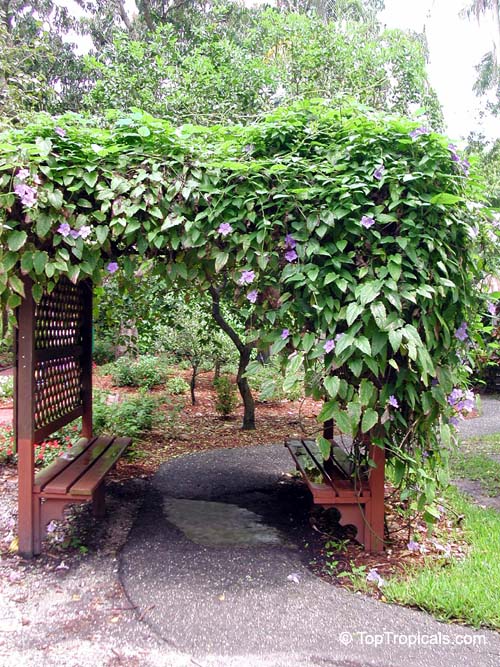
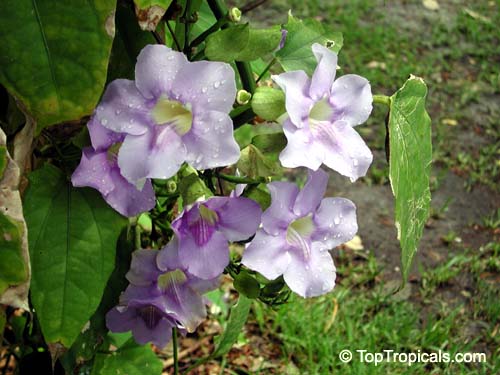
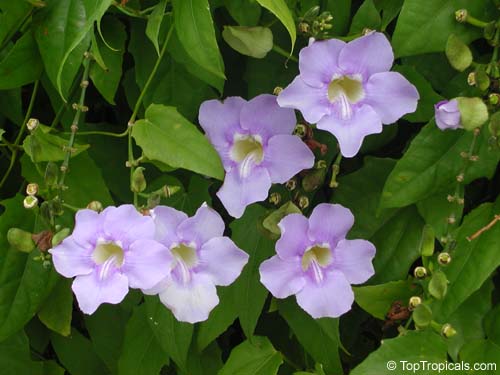
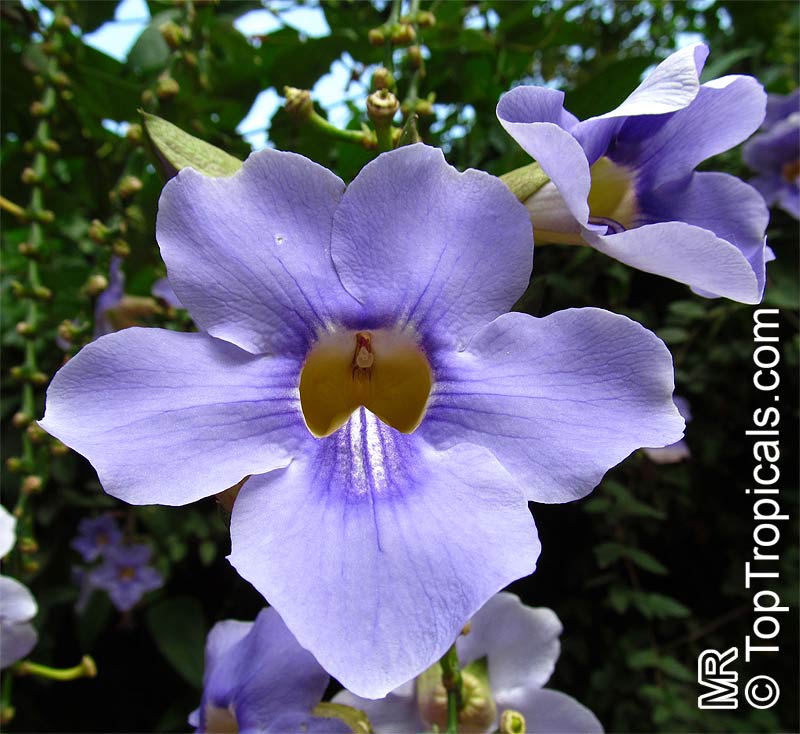

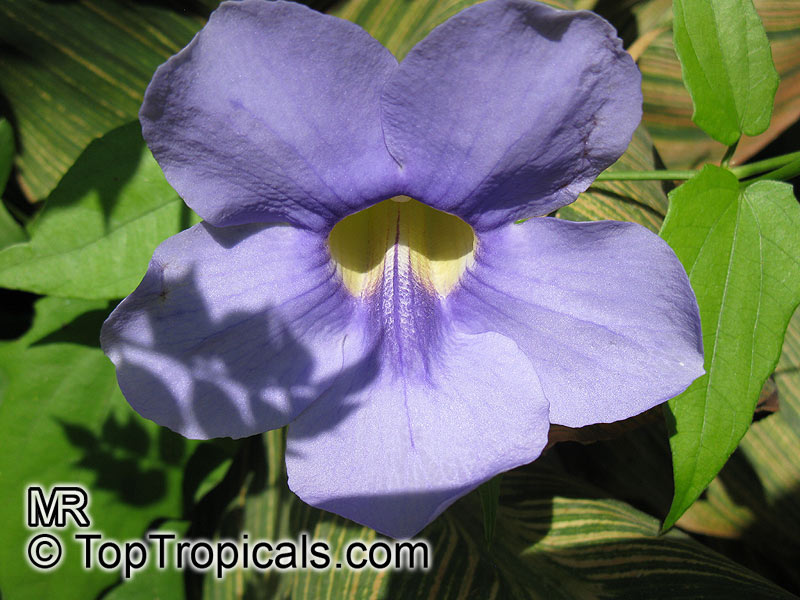
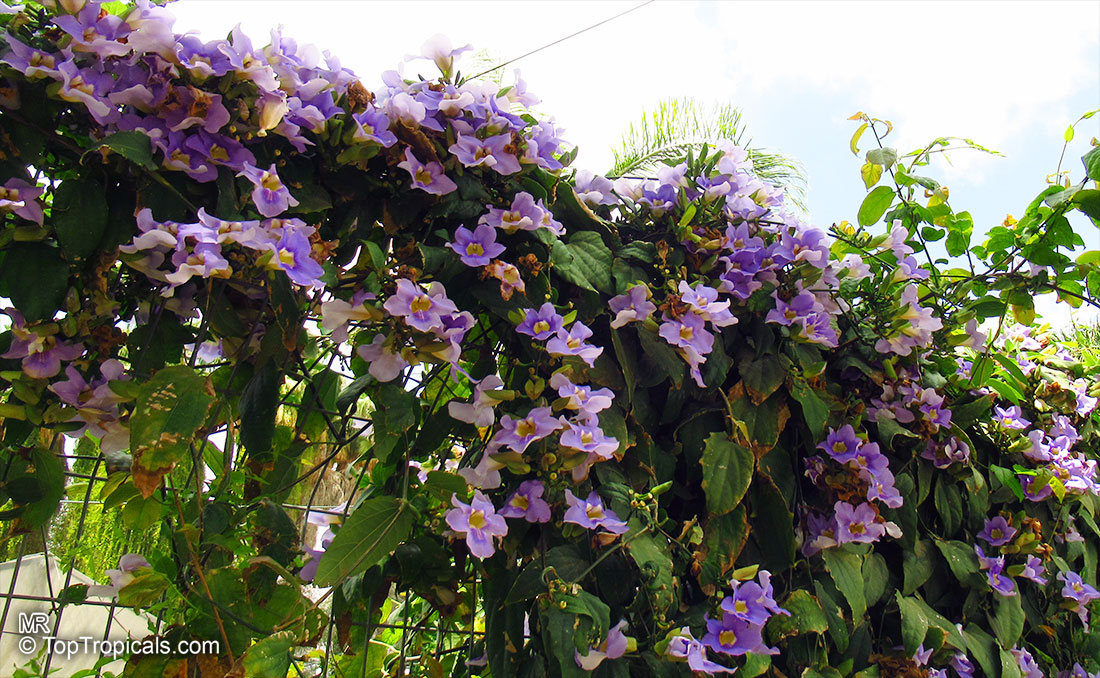
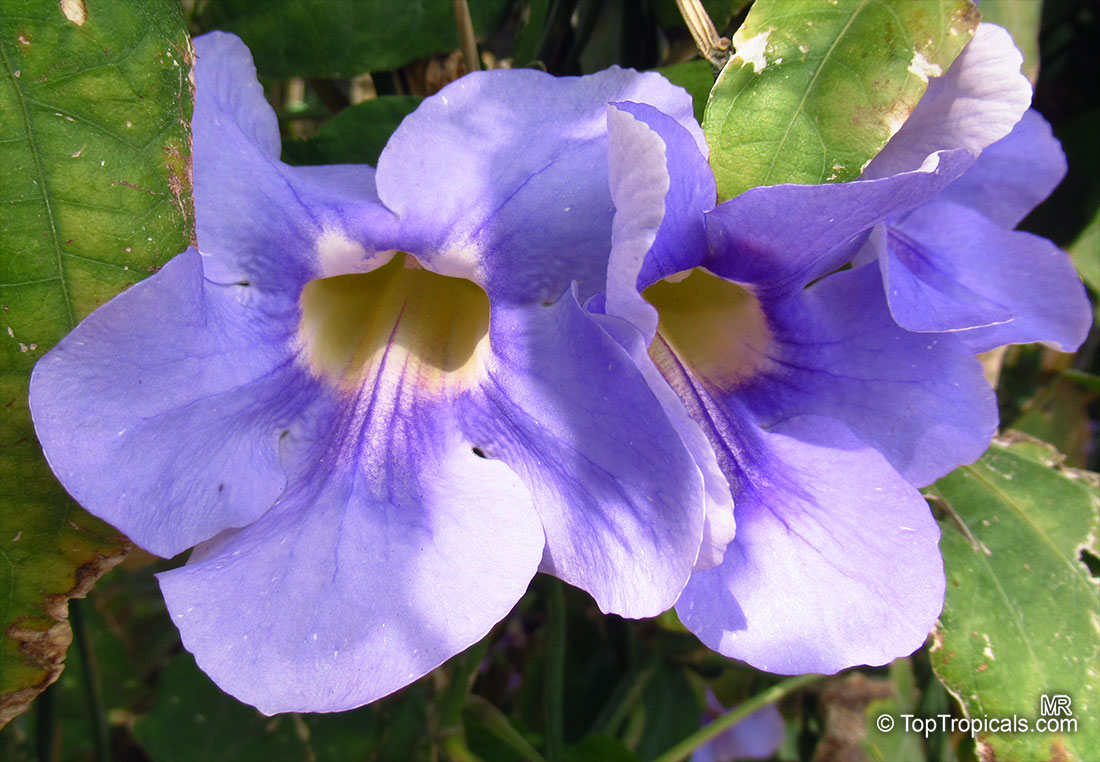
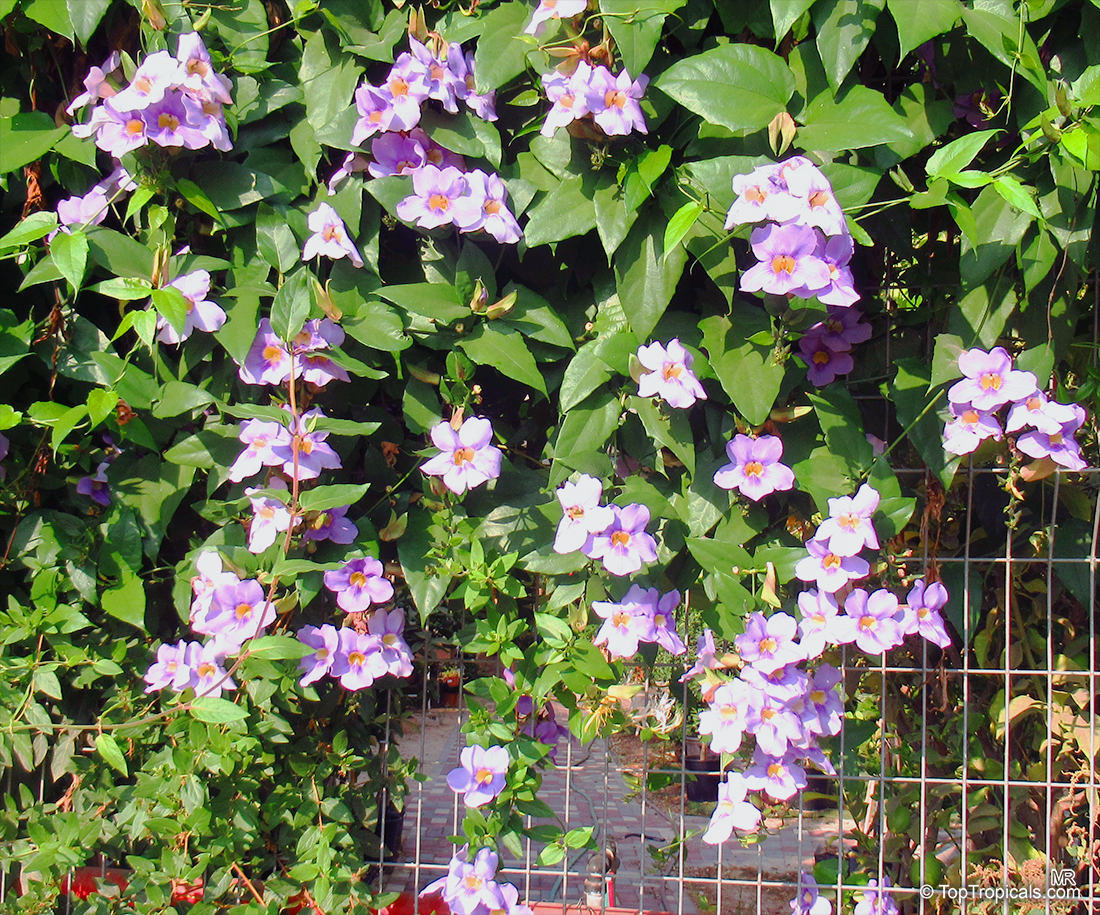
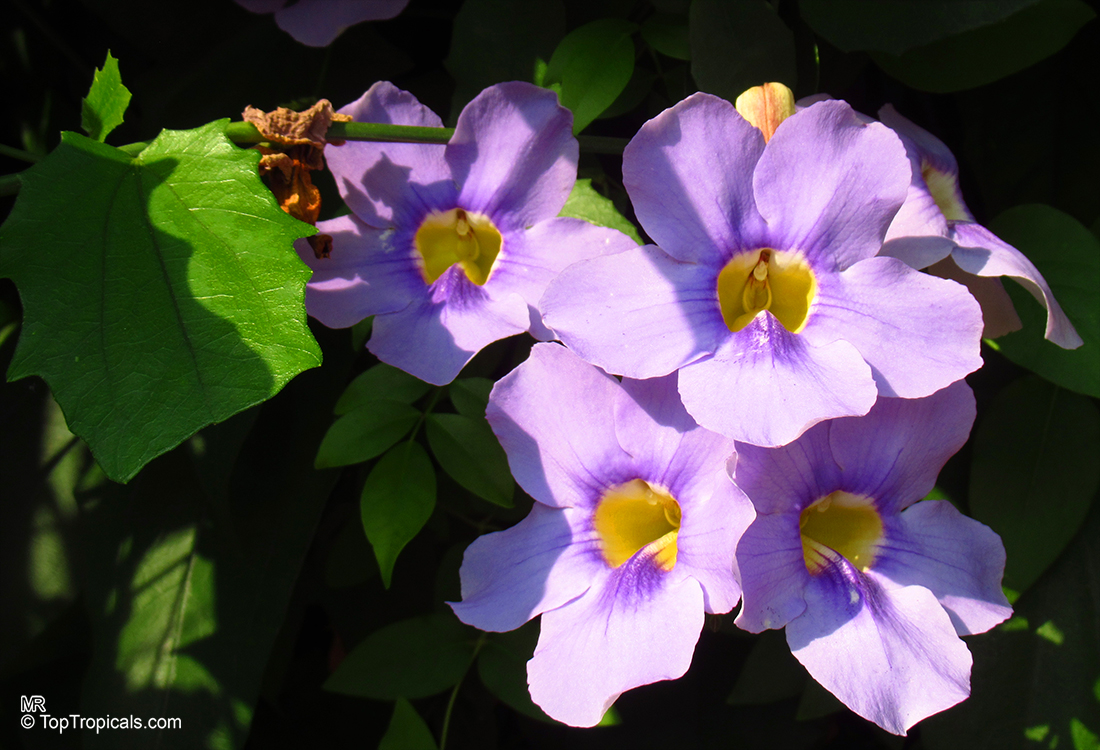
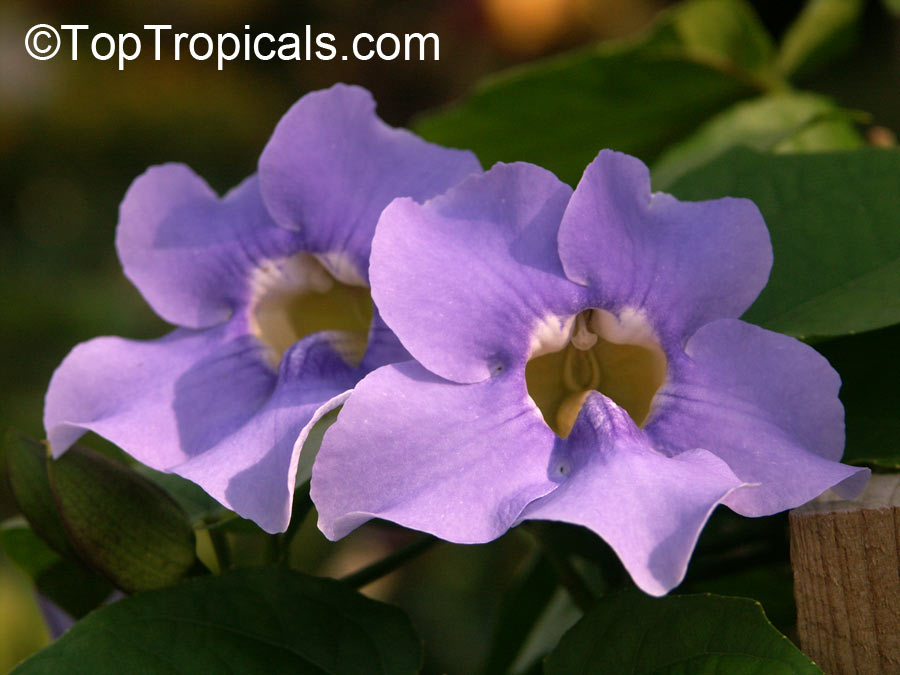
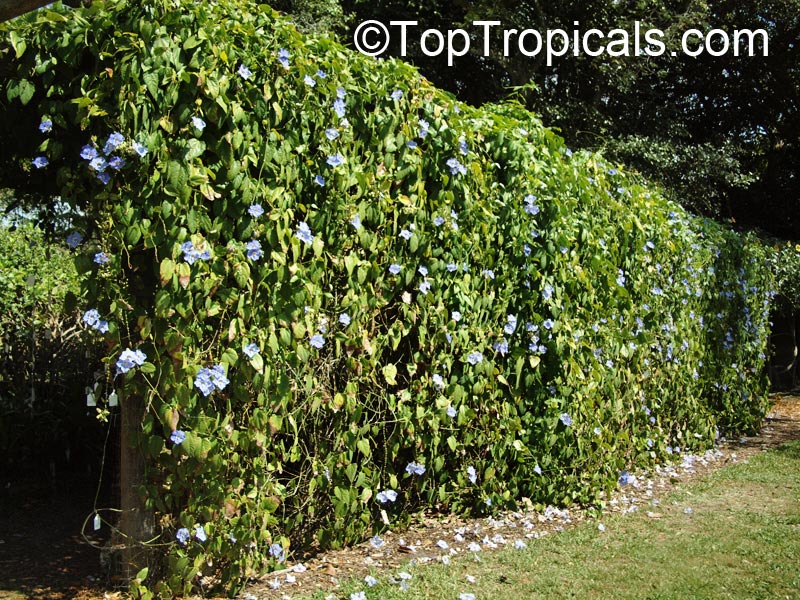
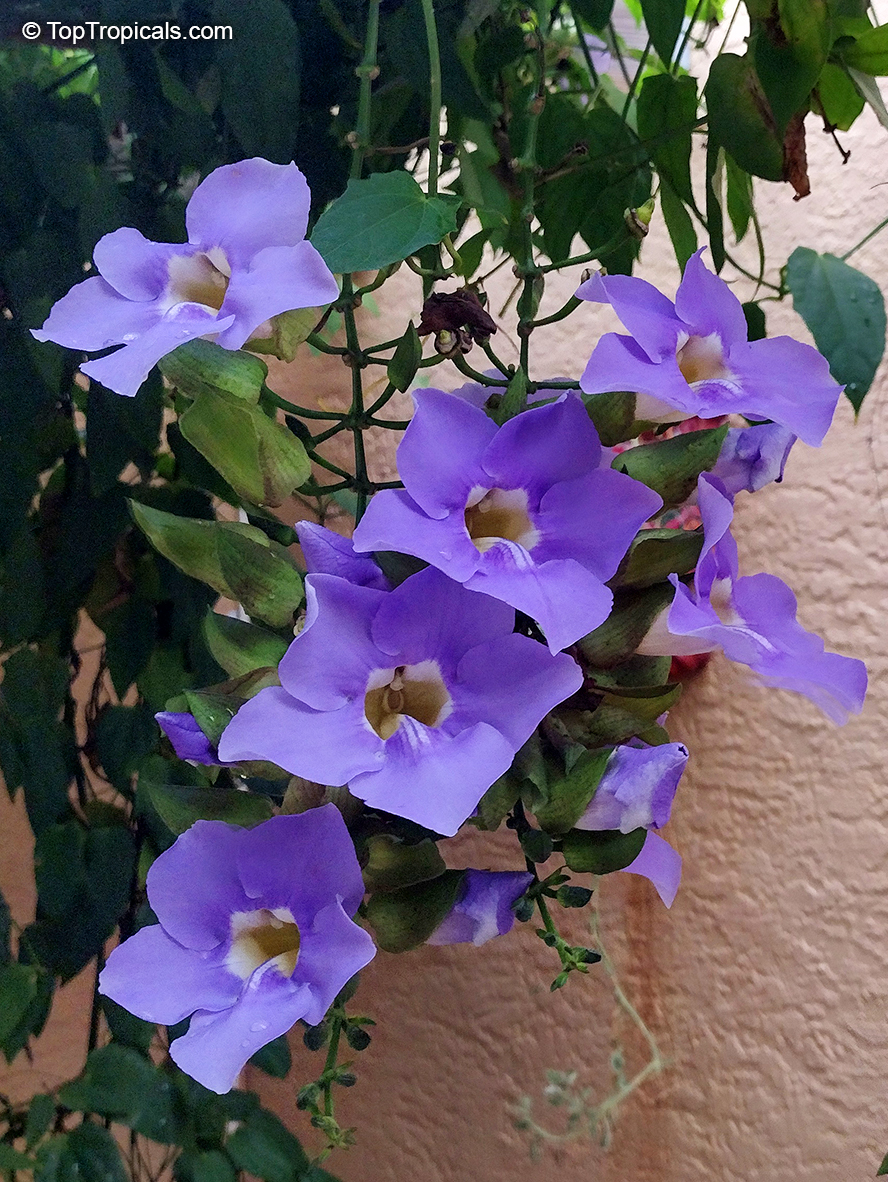
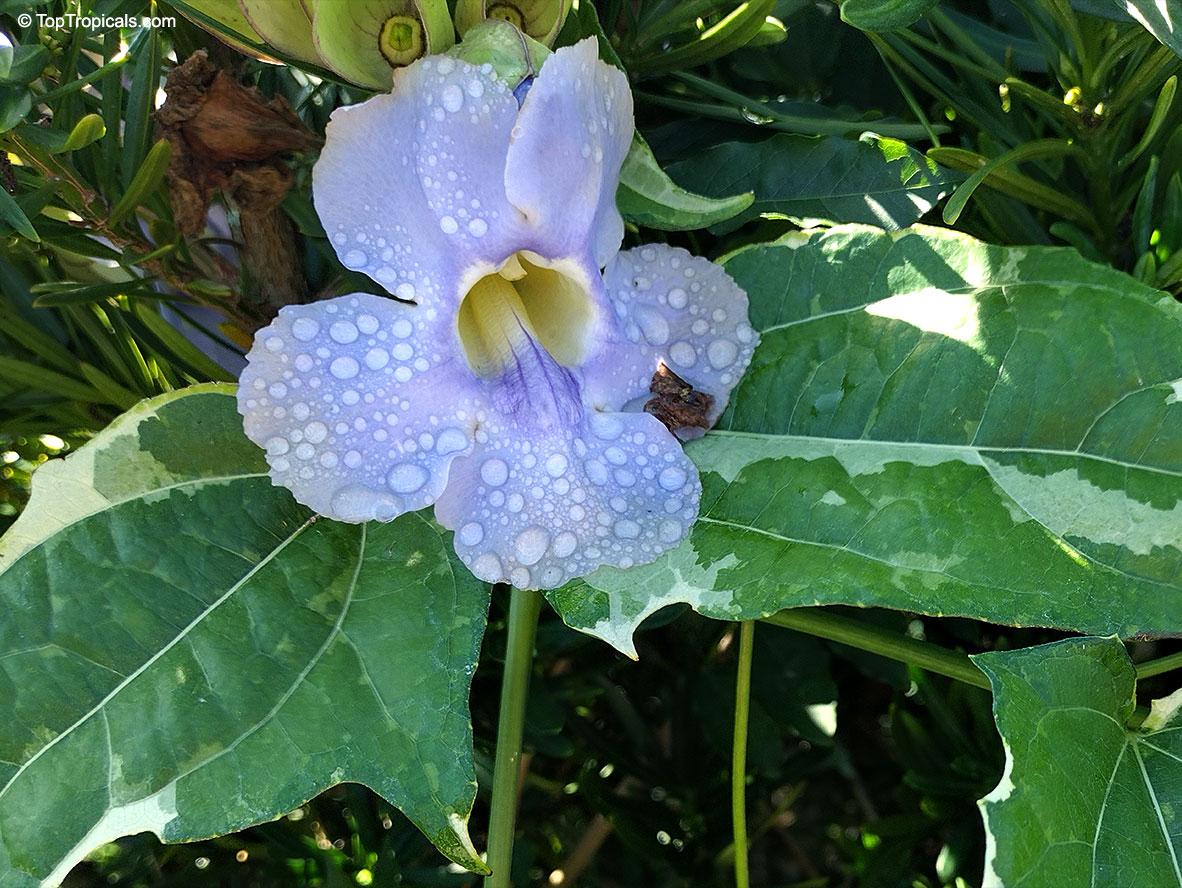
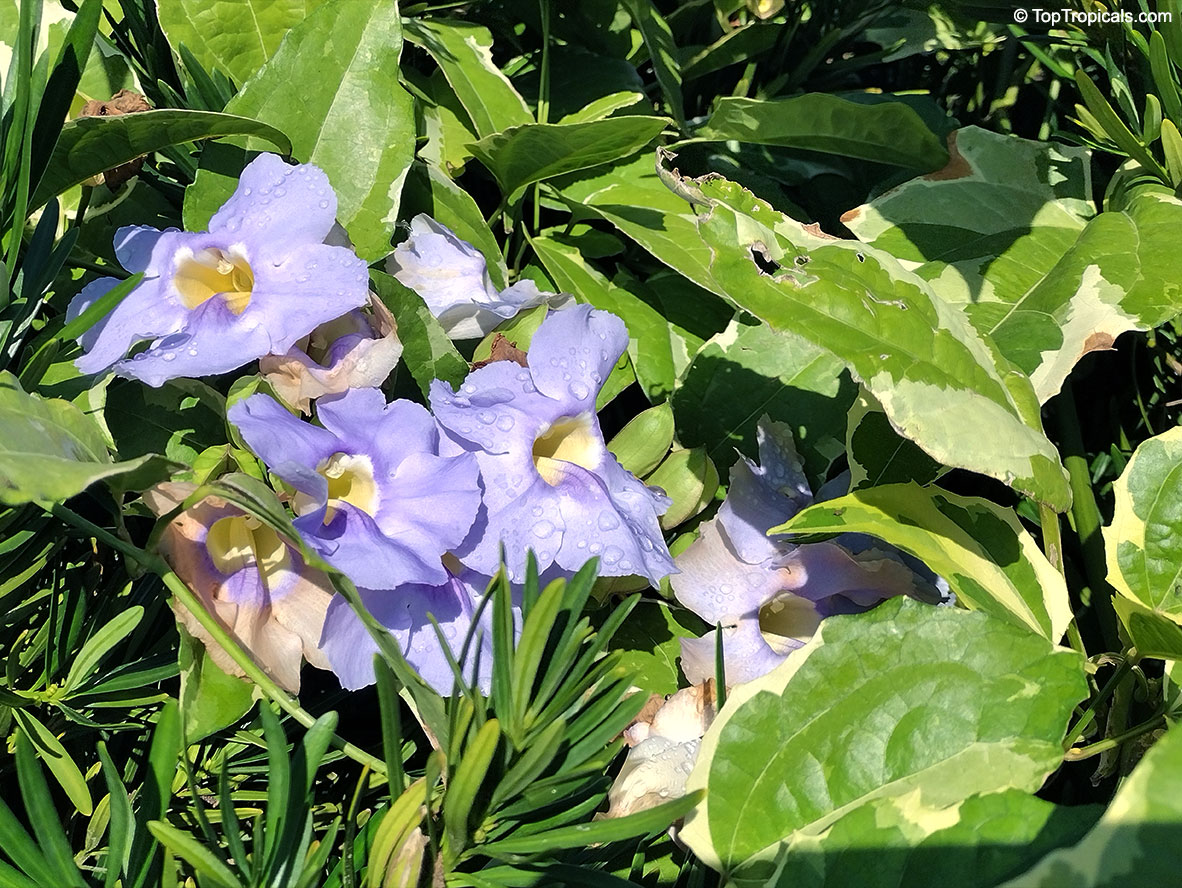
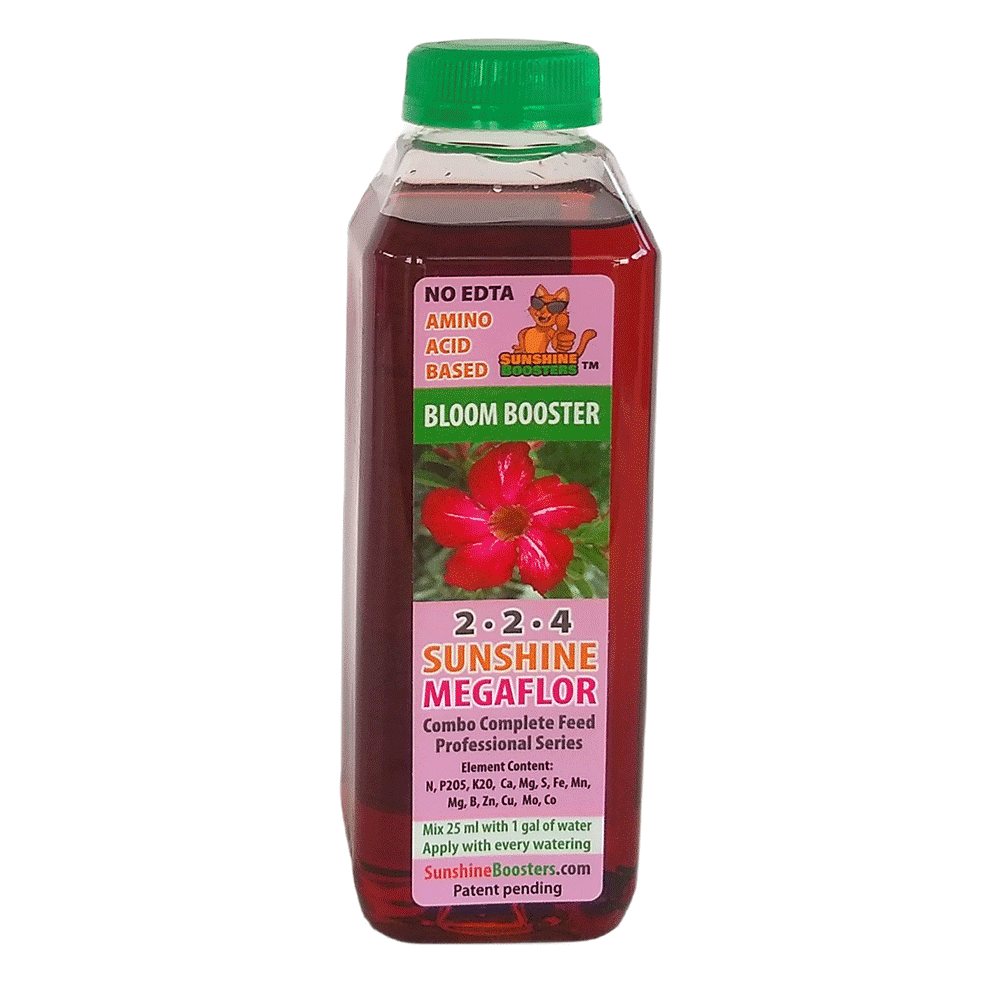 SUNSHINE Megaflor (NPK 2-2-4) - Bloom Booster for every watering. Formulated especially for blooms, to boost flowering, improve flower size and quality, and stimulate pollen development. This is an eco-friendly nutrition booster that can be used for organic gardens. Can be used for daily feeding with every watering. Scientifically-balanced stable formula is organic Amino-acid based and has NO EDTA chelators to eliminate nutrients lockup; it does not affect crop taste. Organic Amino acids greatly enhance stability of all Sunshine boosters and provide excellent absorption of trace elements. Pollinating insects friendly.
SUNSHINE Megaflor (NPK 2-2-4) - Bloom Booster for every watering. Formulated especially for blooms, to boost flowering, improve flower size and quality, and stimulate pollen development. This is an eco-friendly nutrition booster that can be used for organic gardens. Can be used for daily feeding with every watering. Scientifically-balanced stable formula is organic Amino-acid based and has NO EDTA chelators to eliminate nutrients lockup; it does not affect crop taste. Organic Amino acids greatly enhance stability of all Sunshine boosters and provide excellent absorption of trace elements. Pollinating insects friendly.